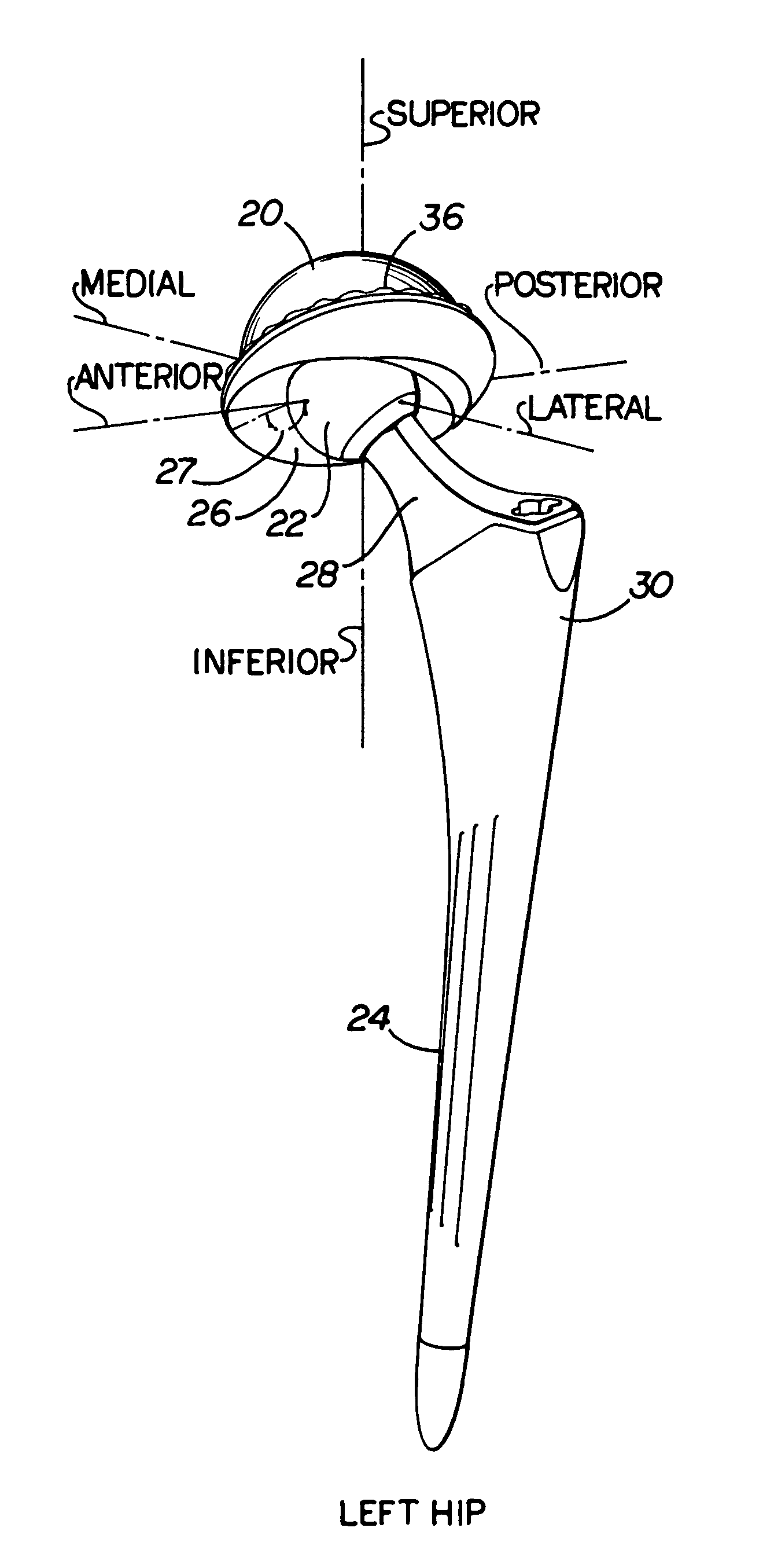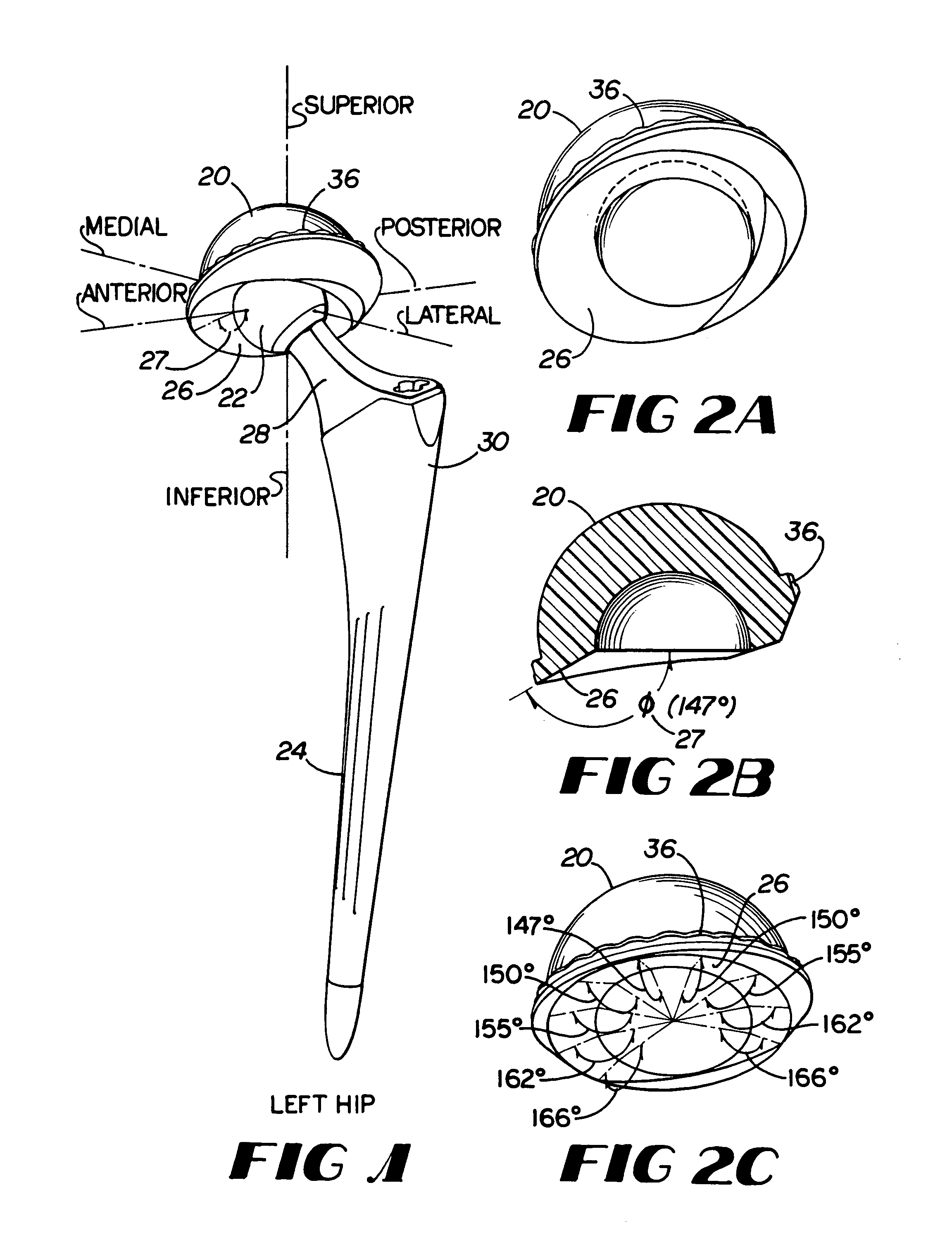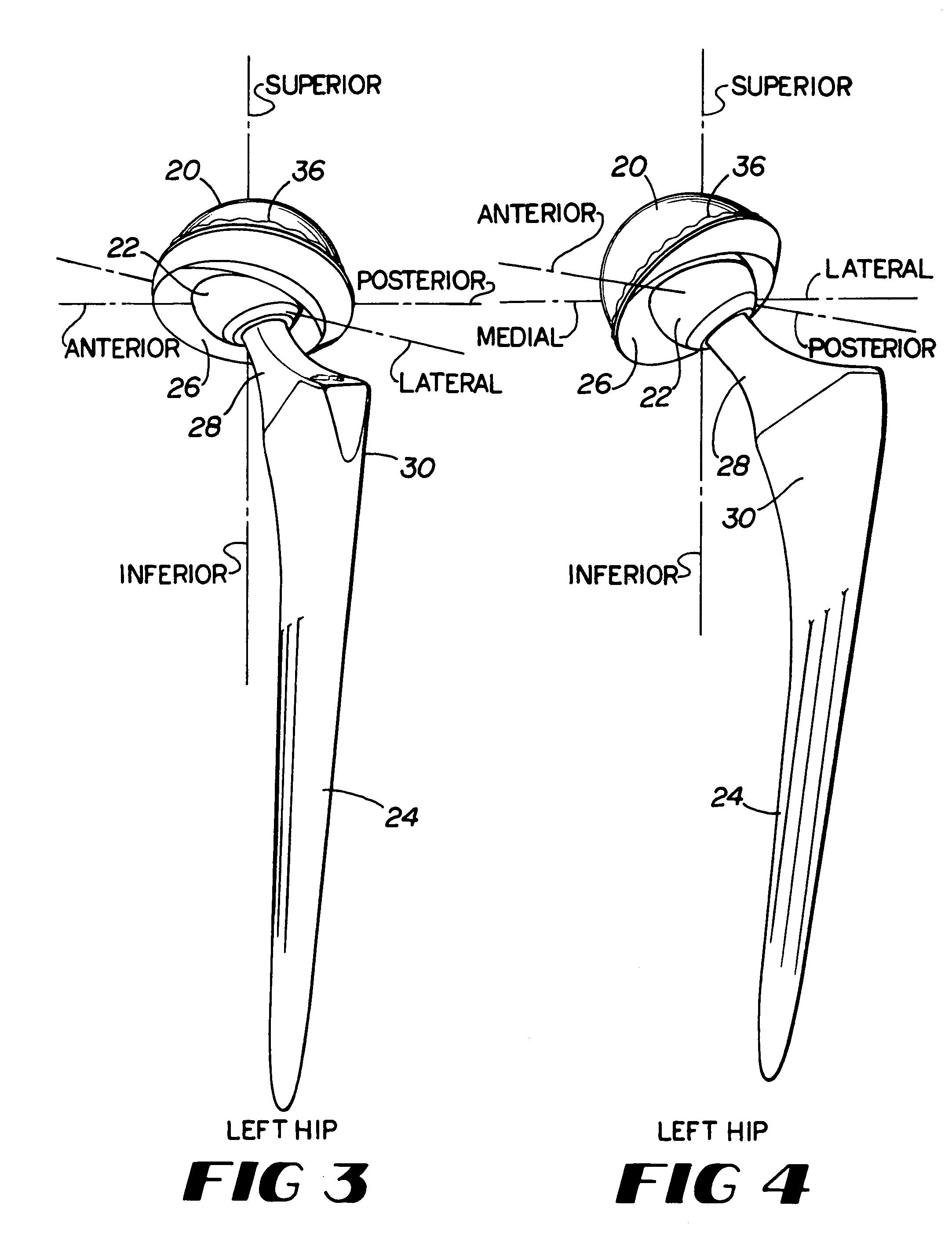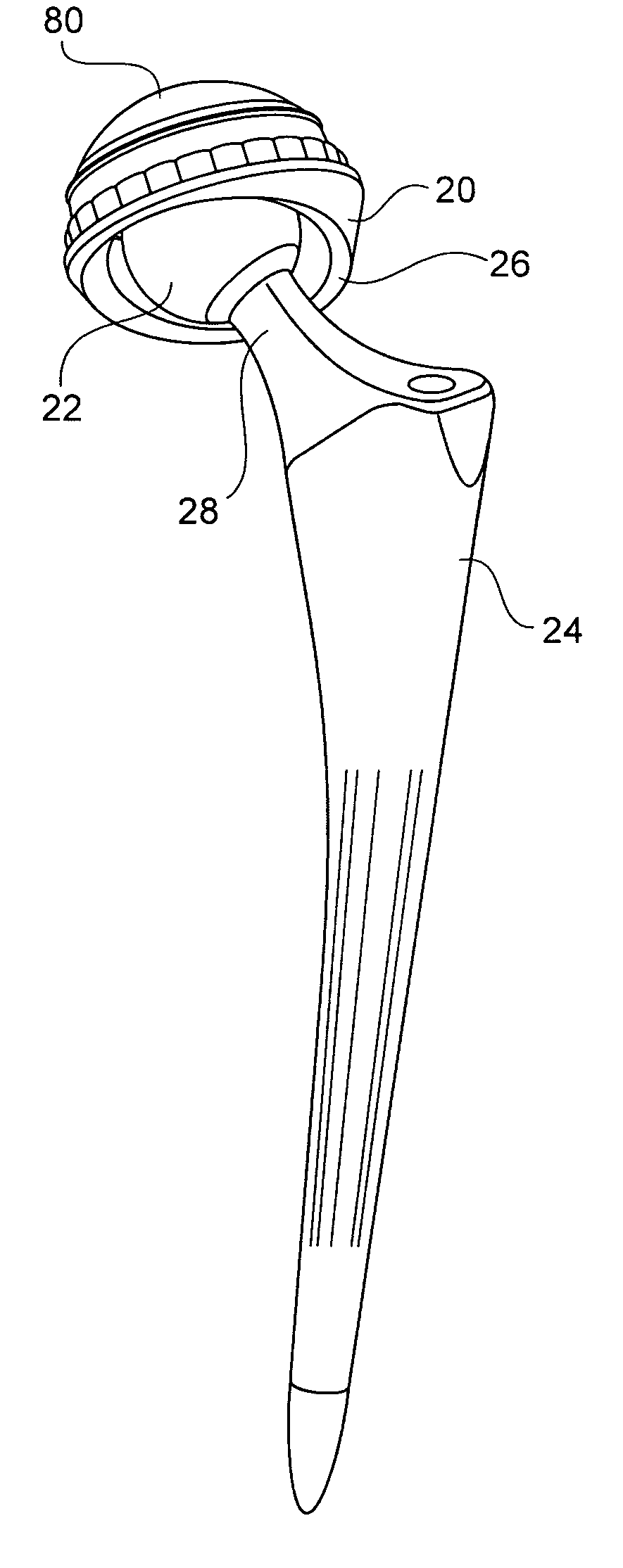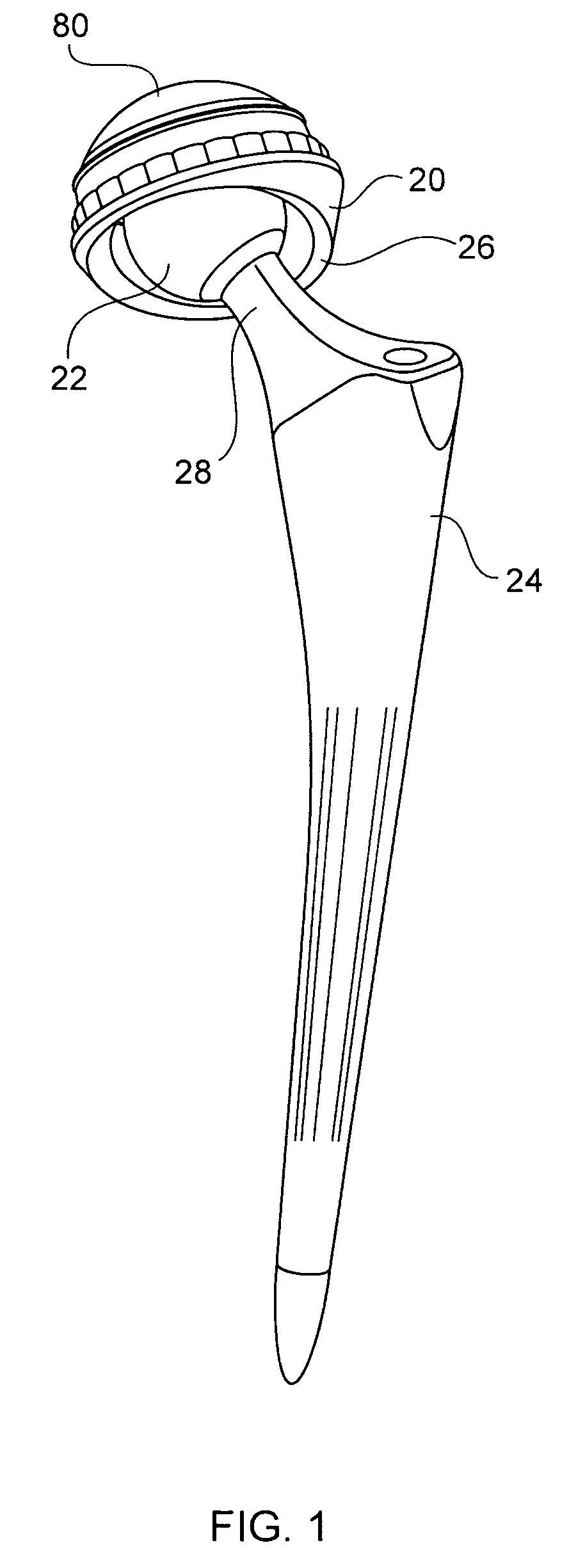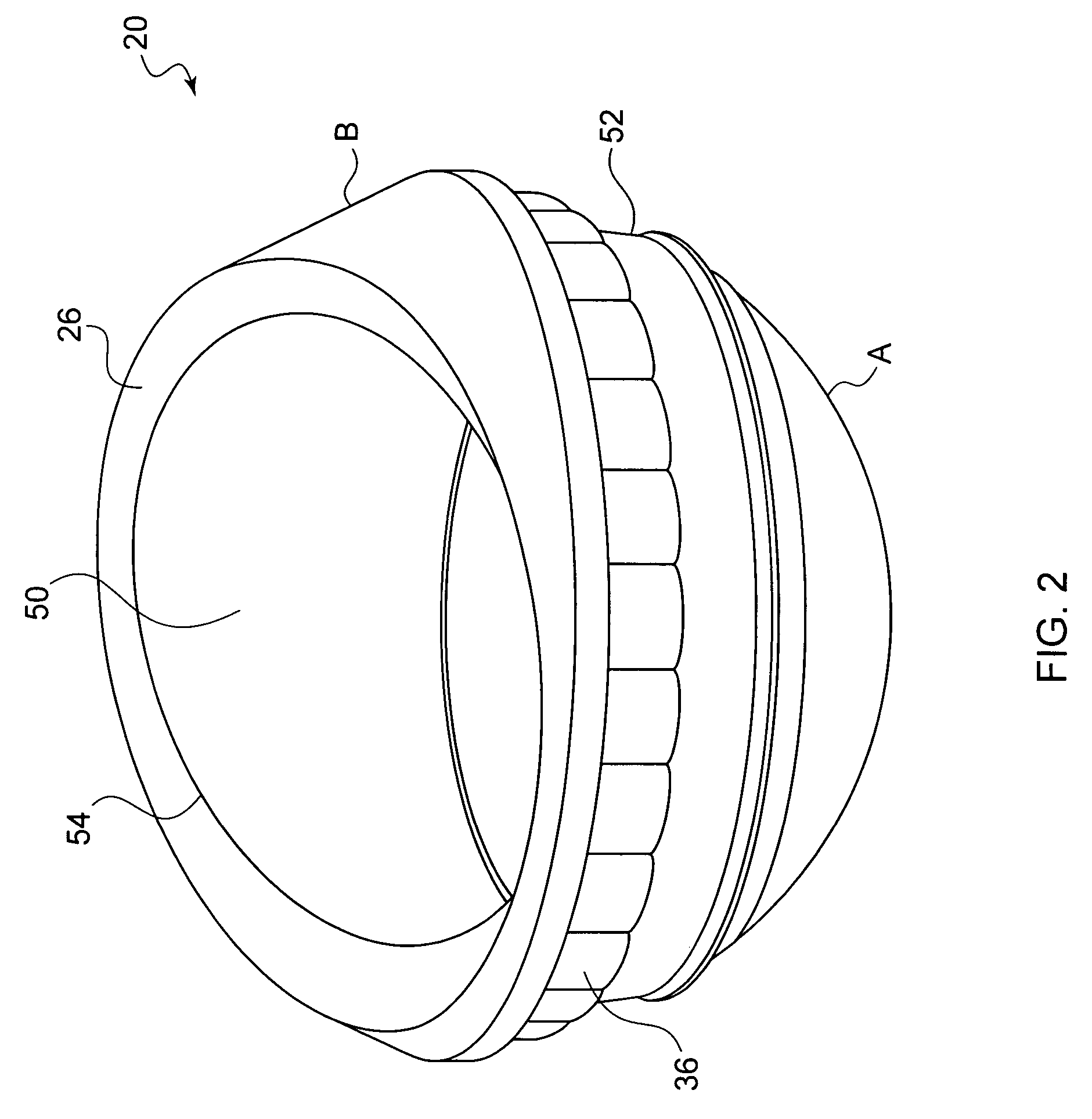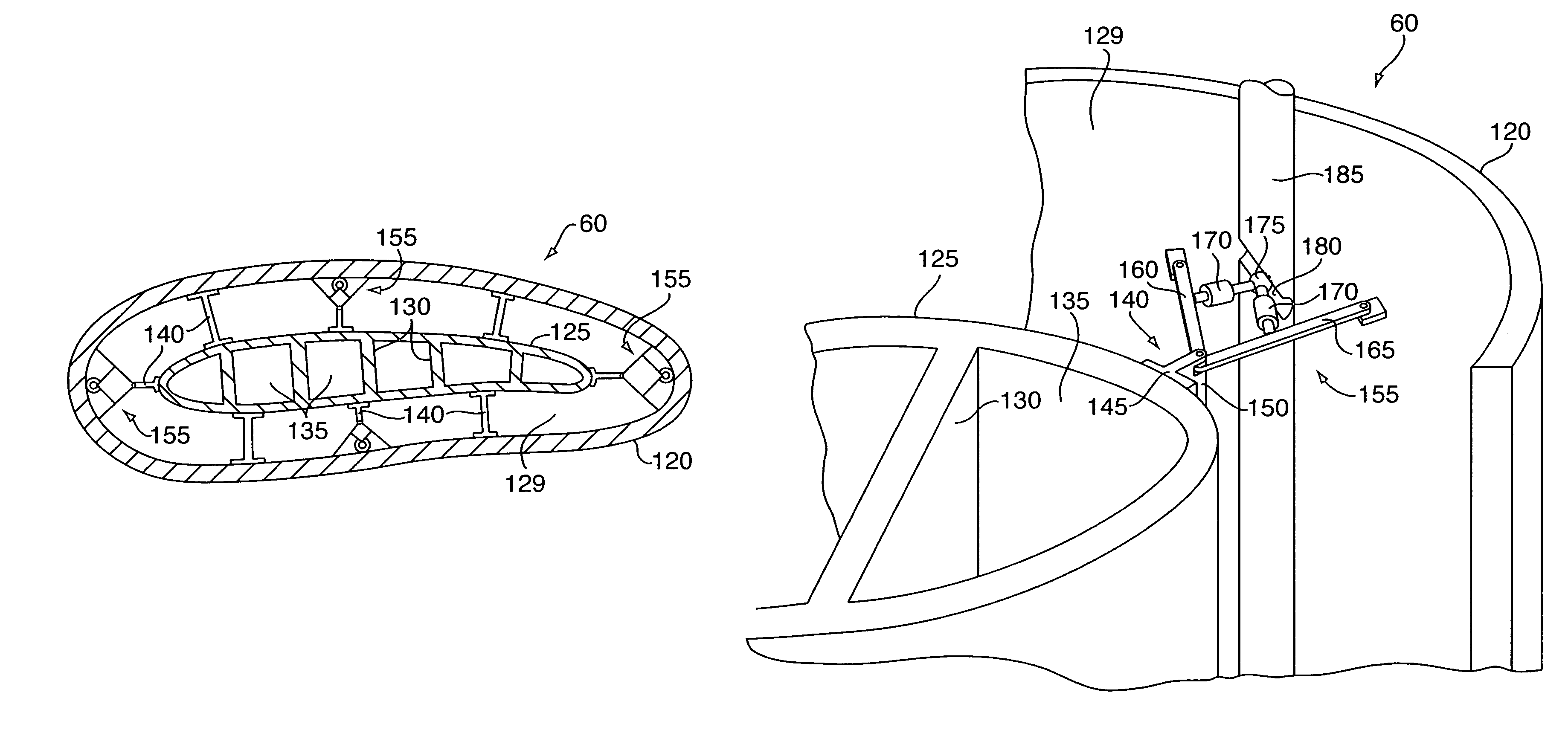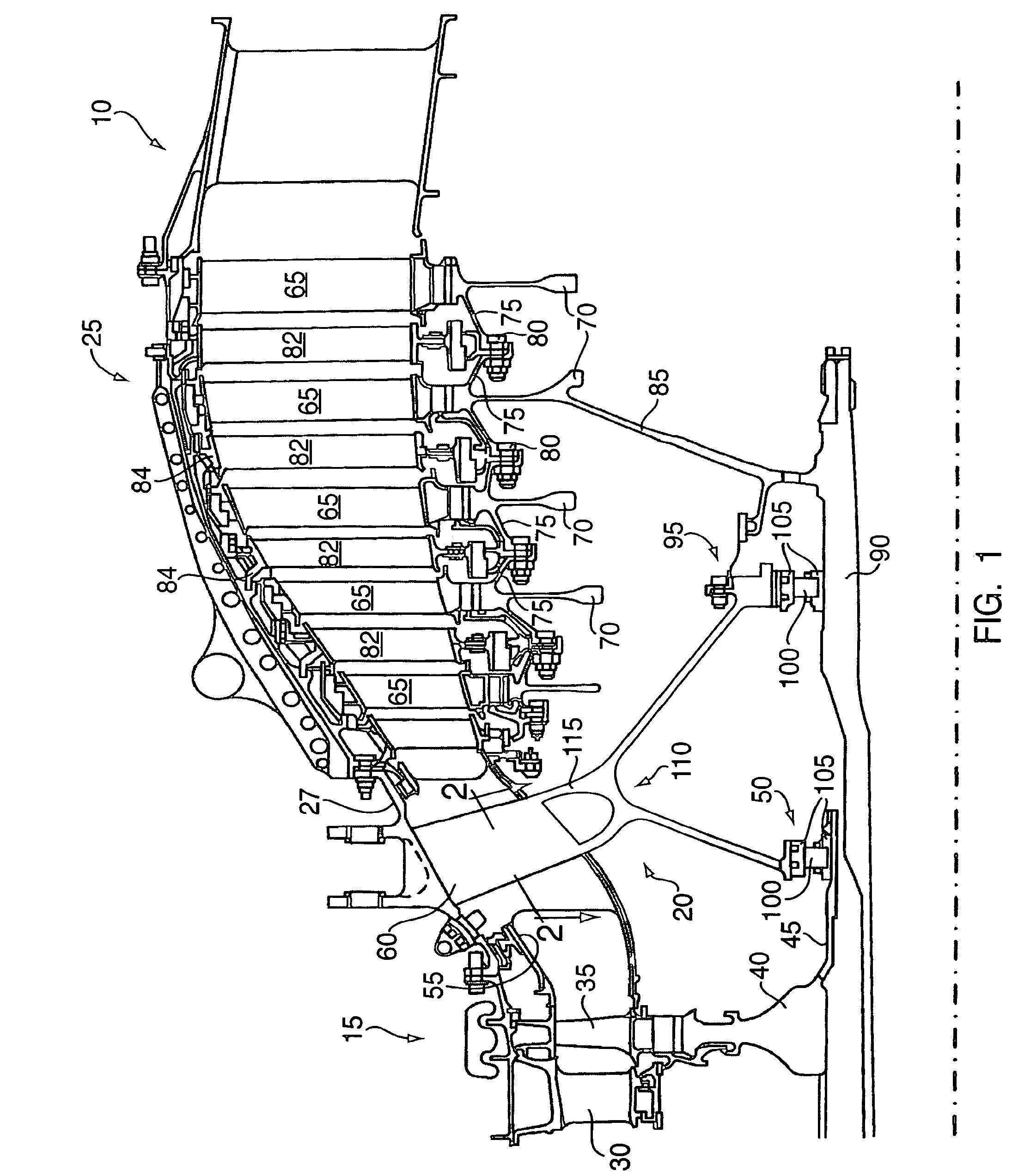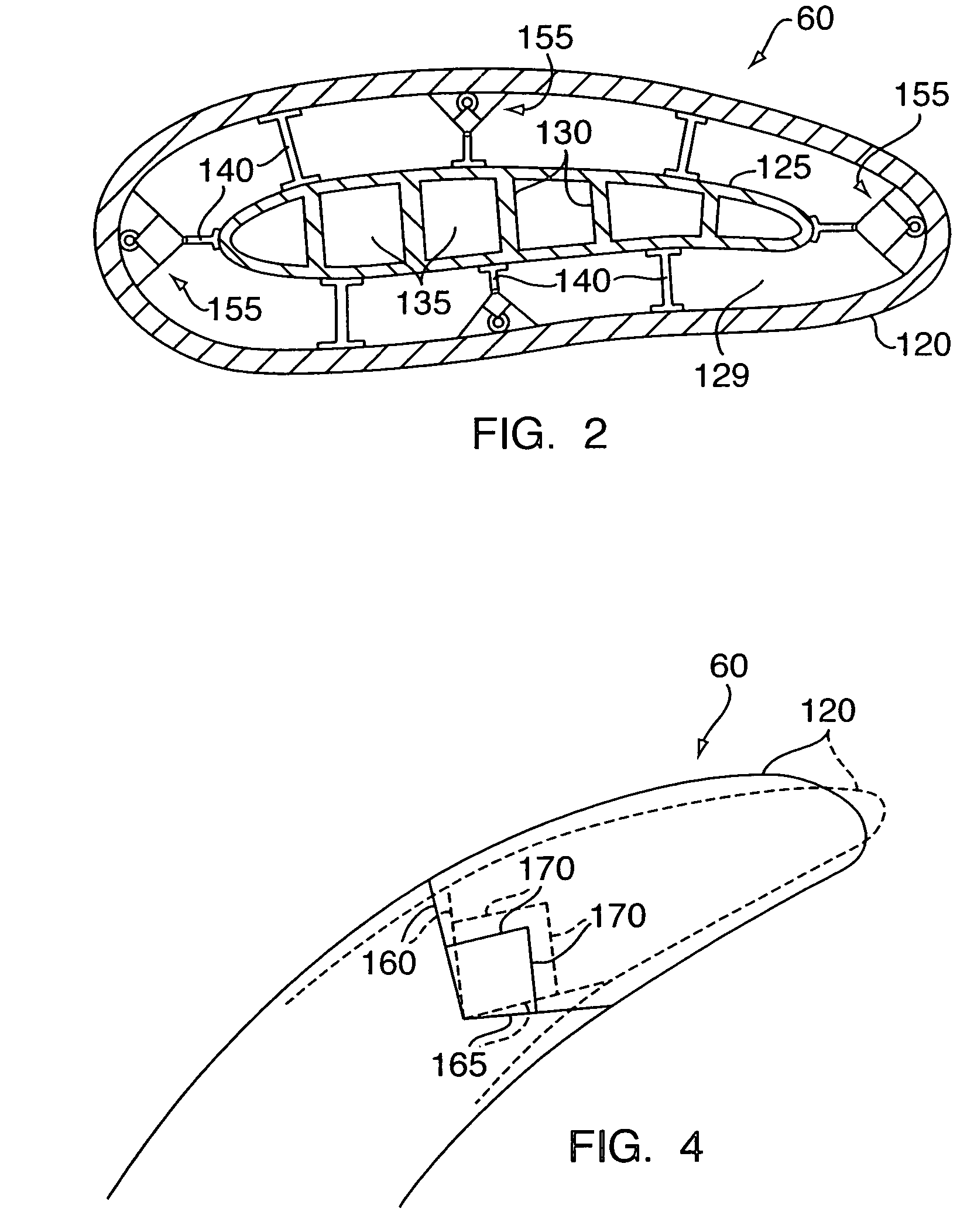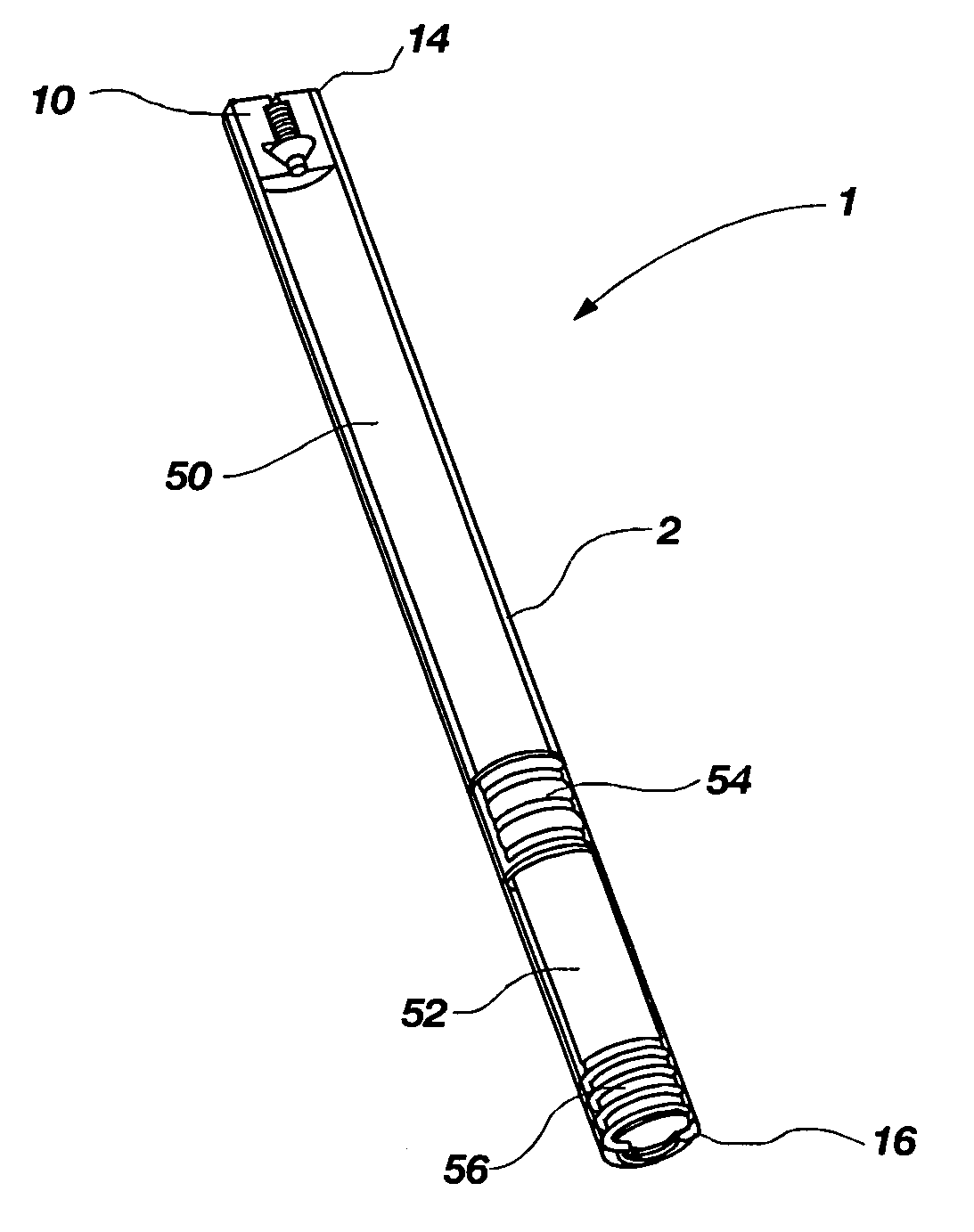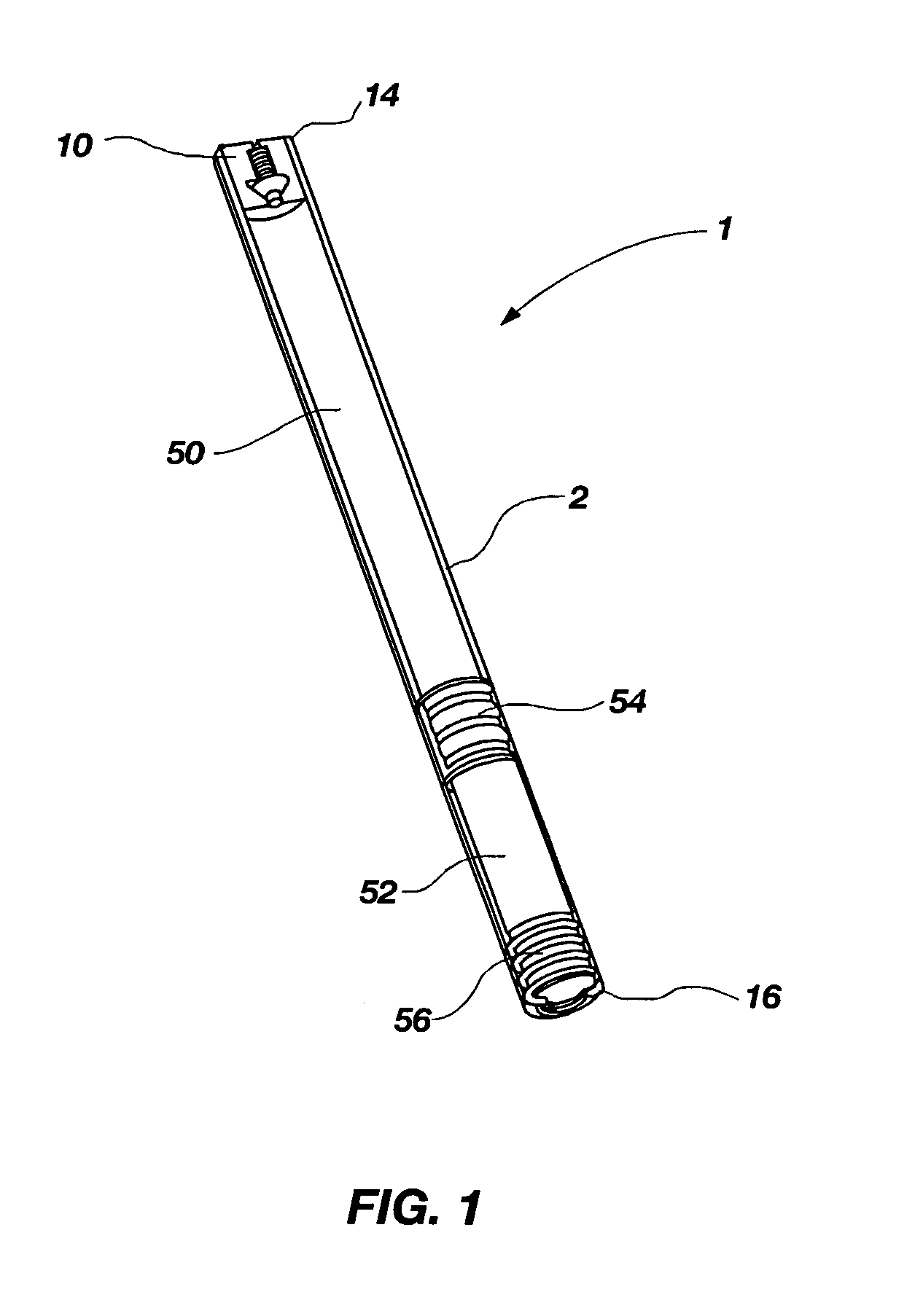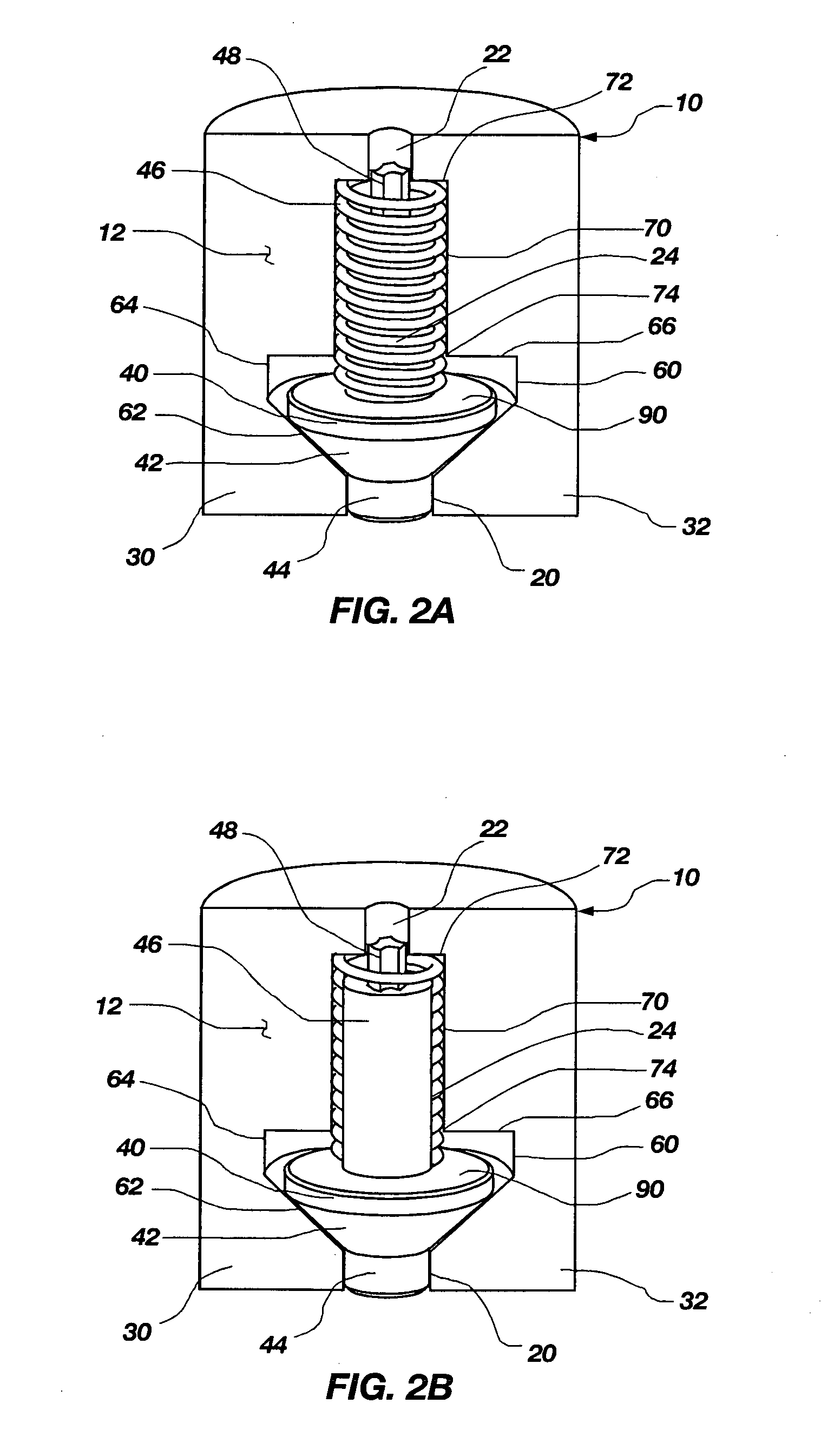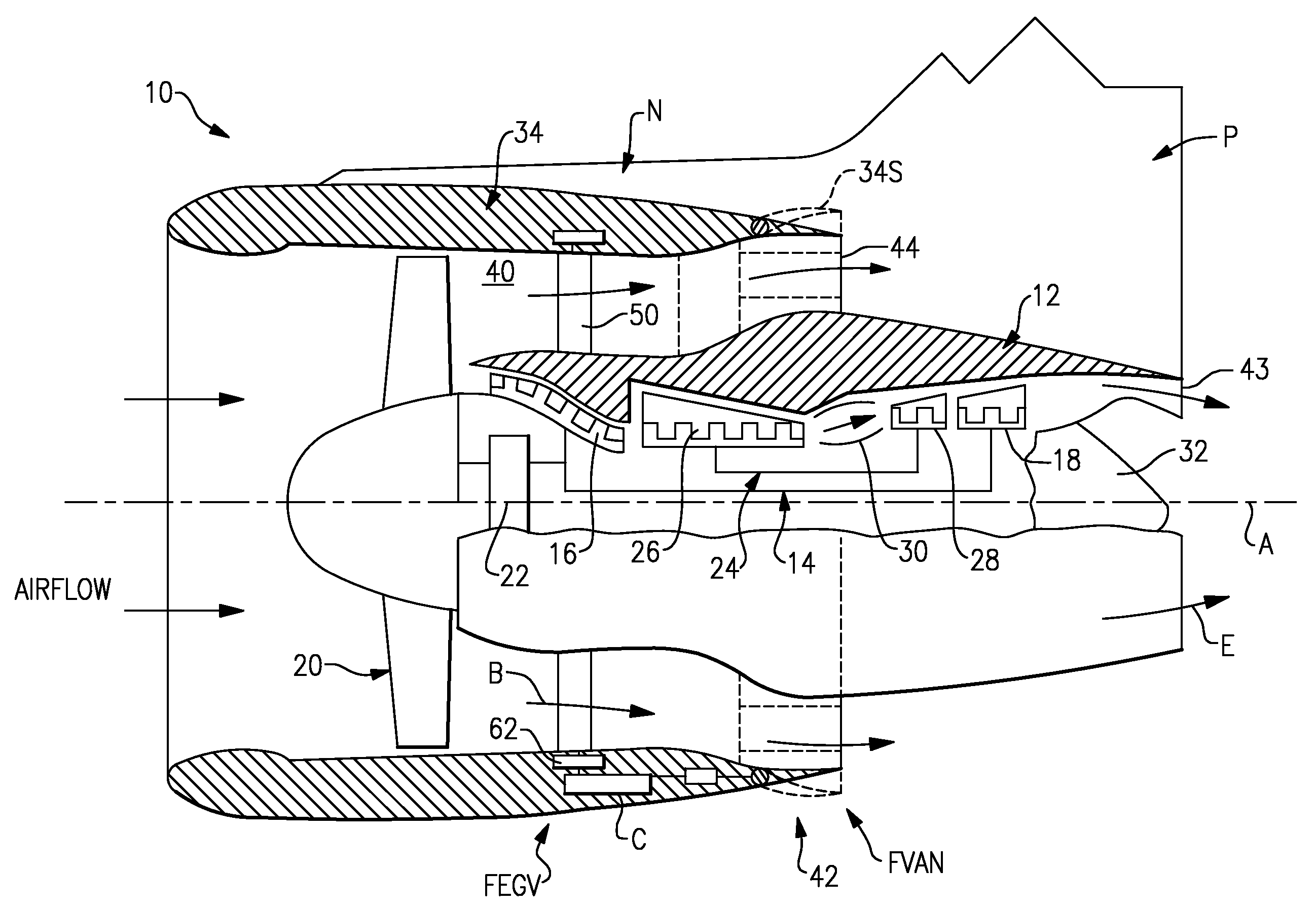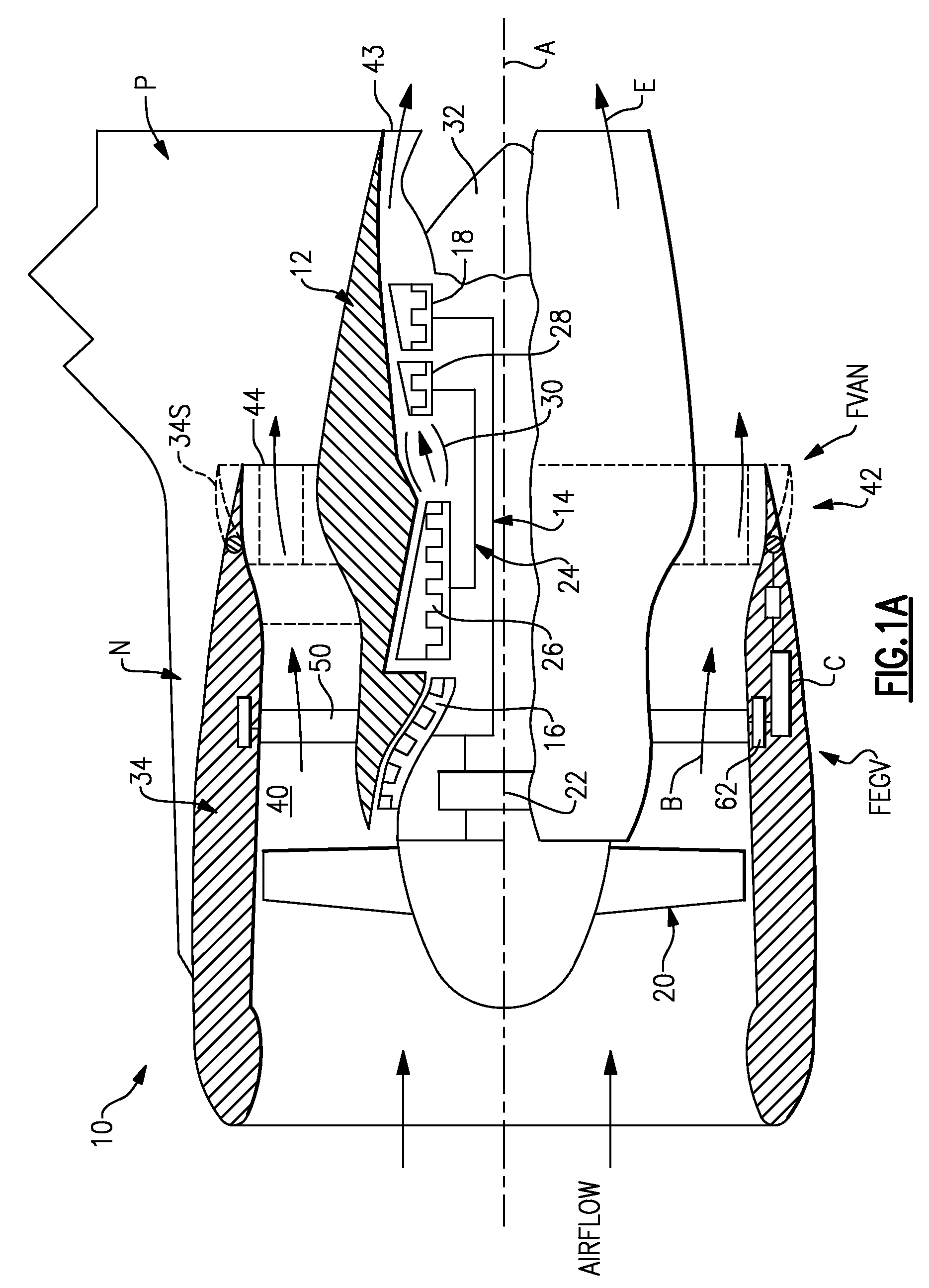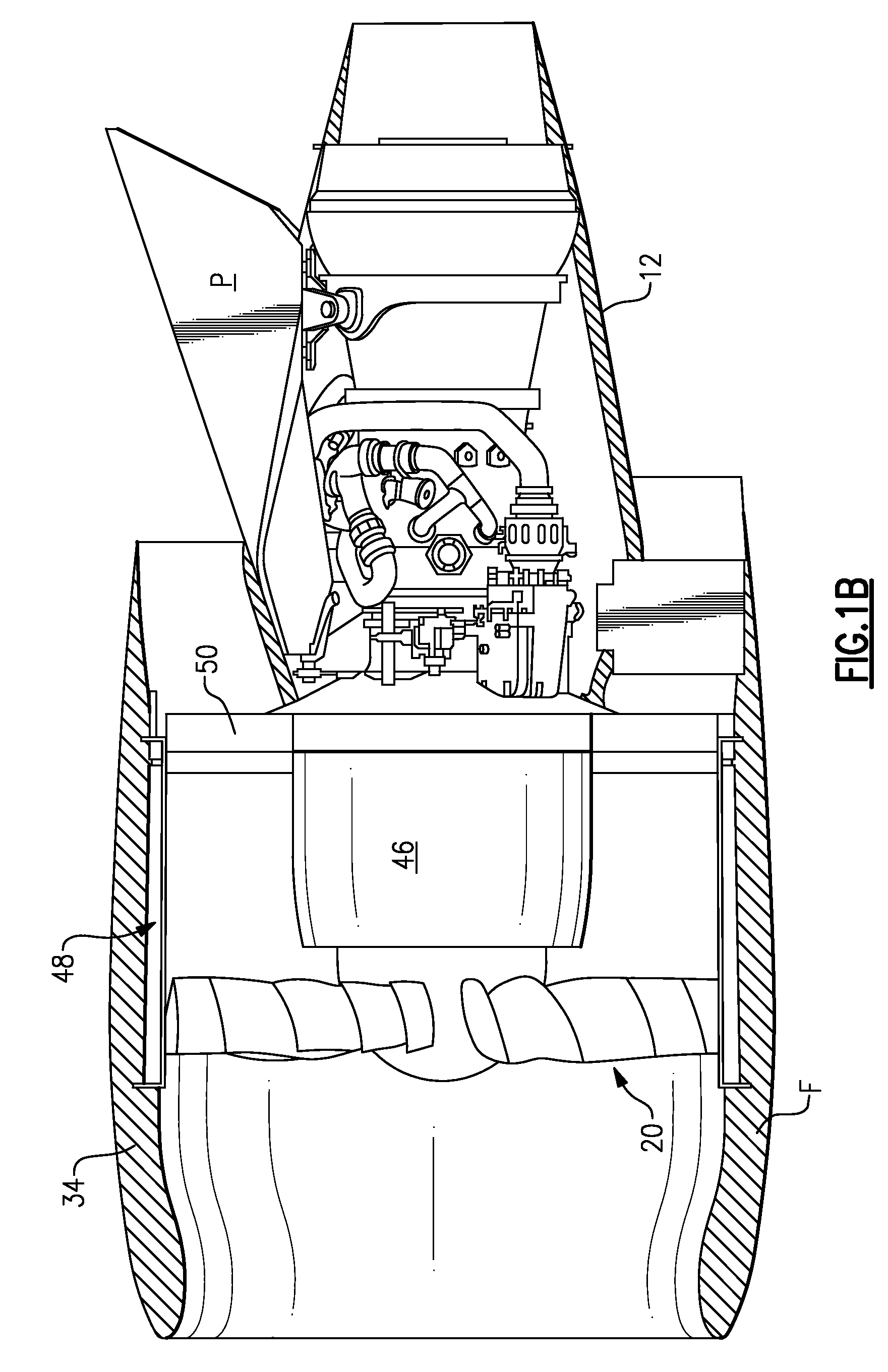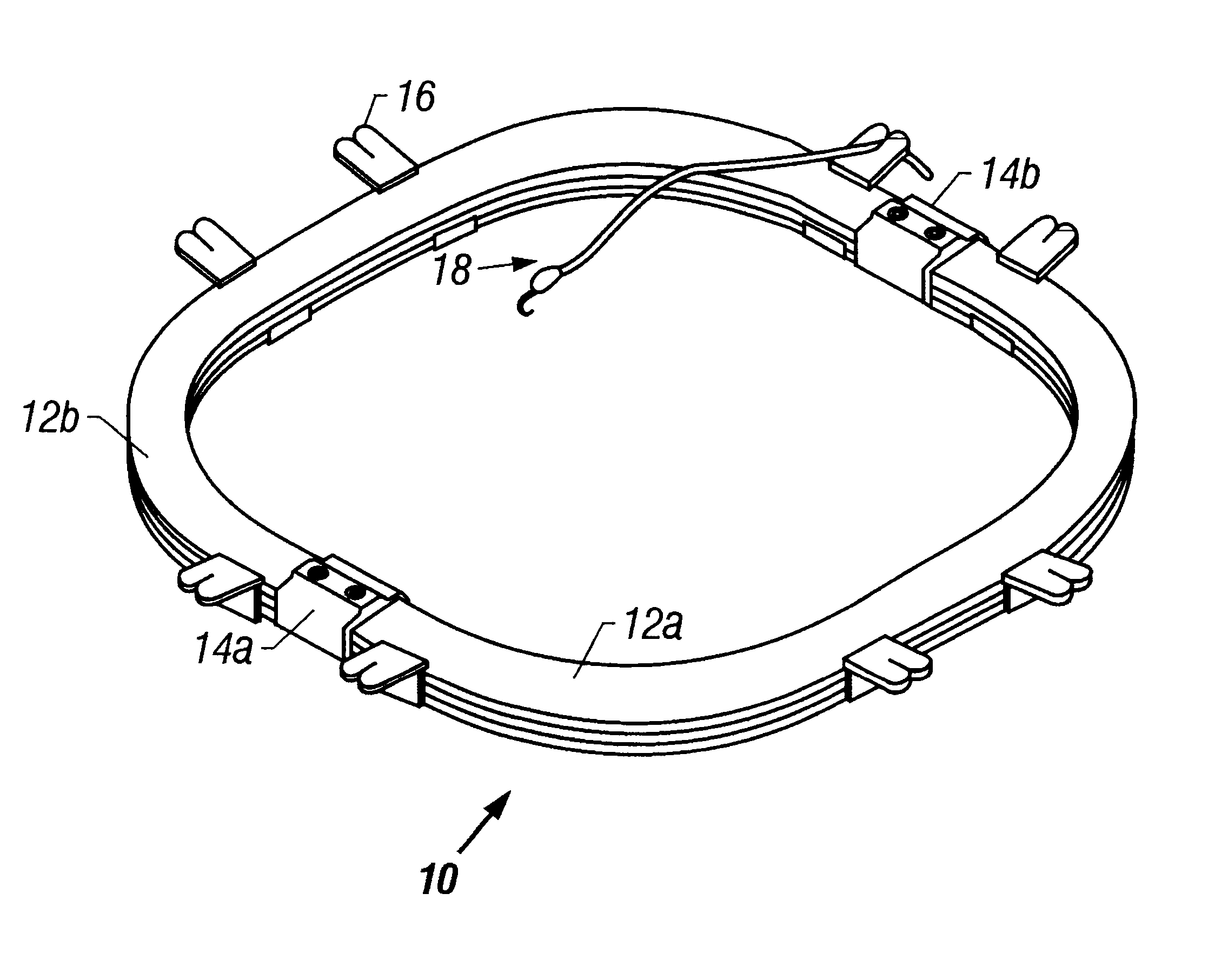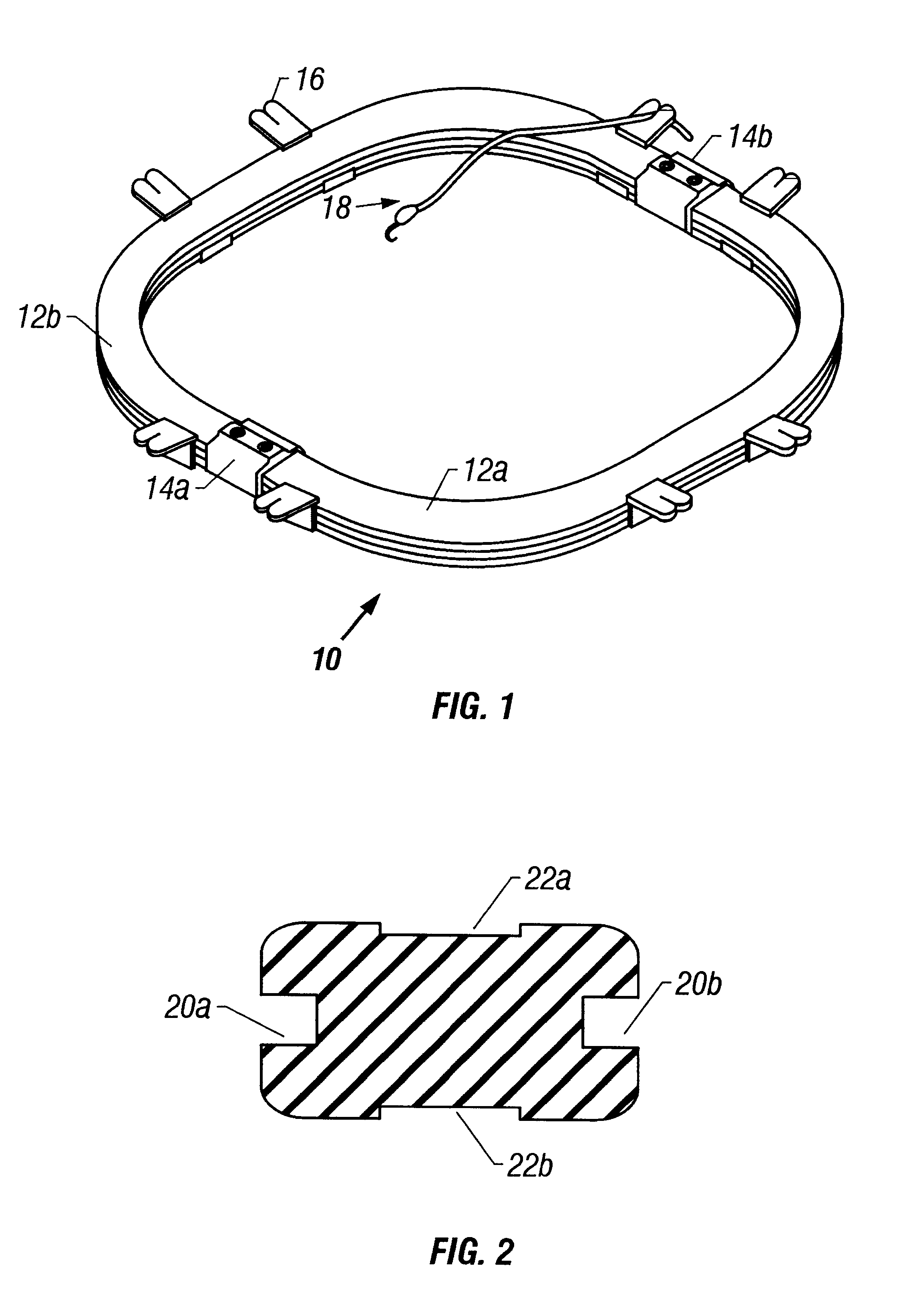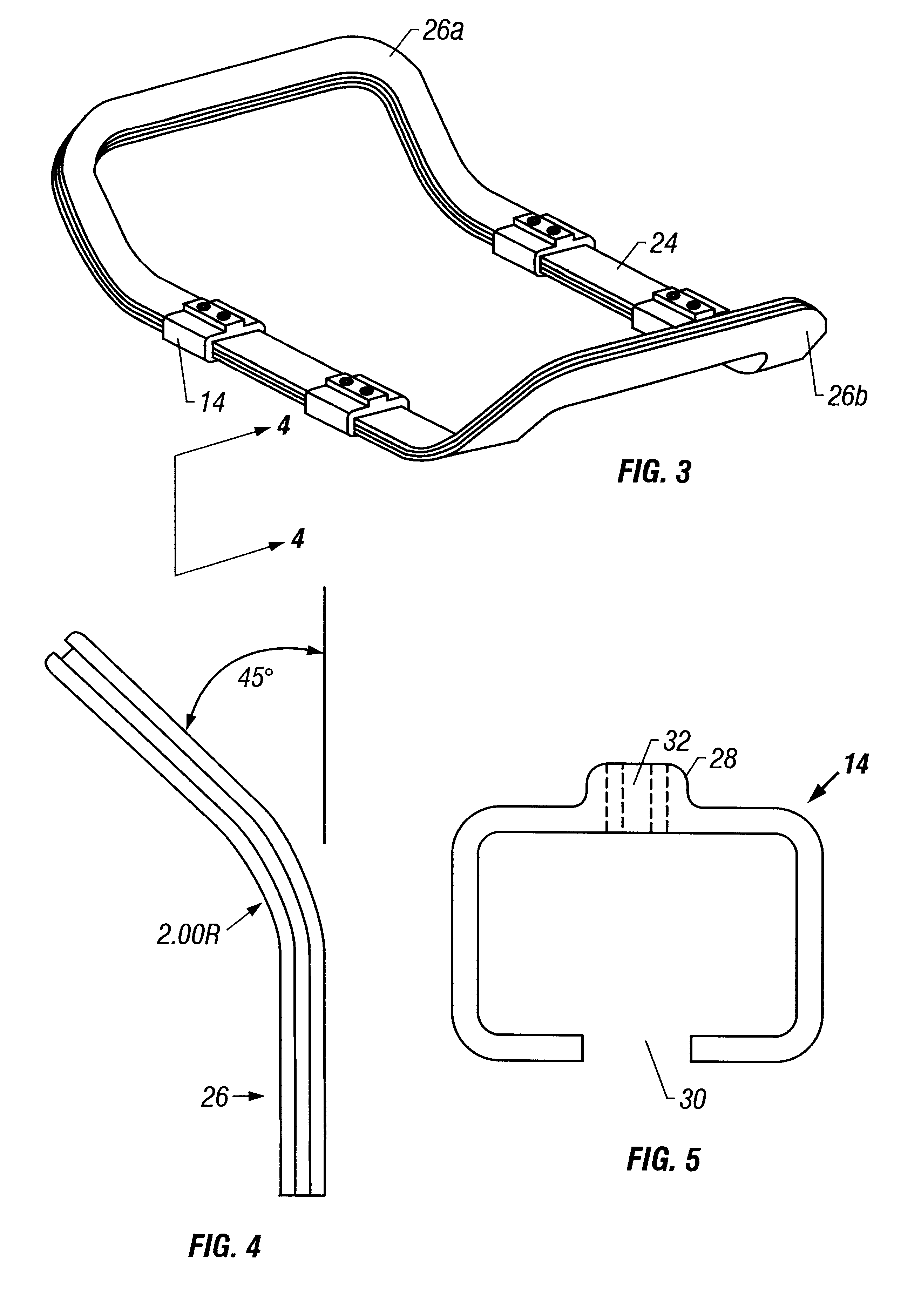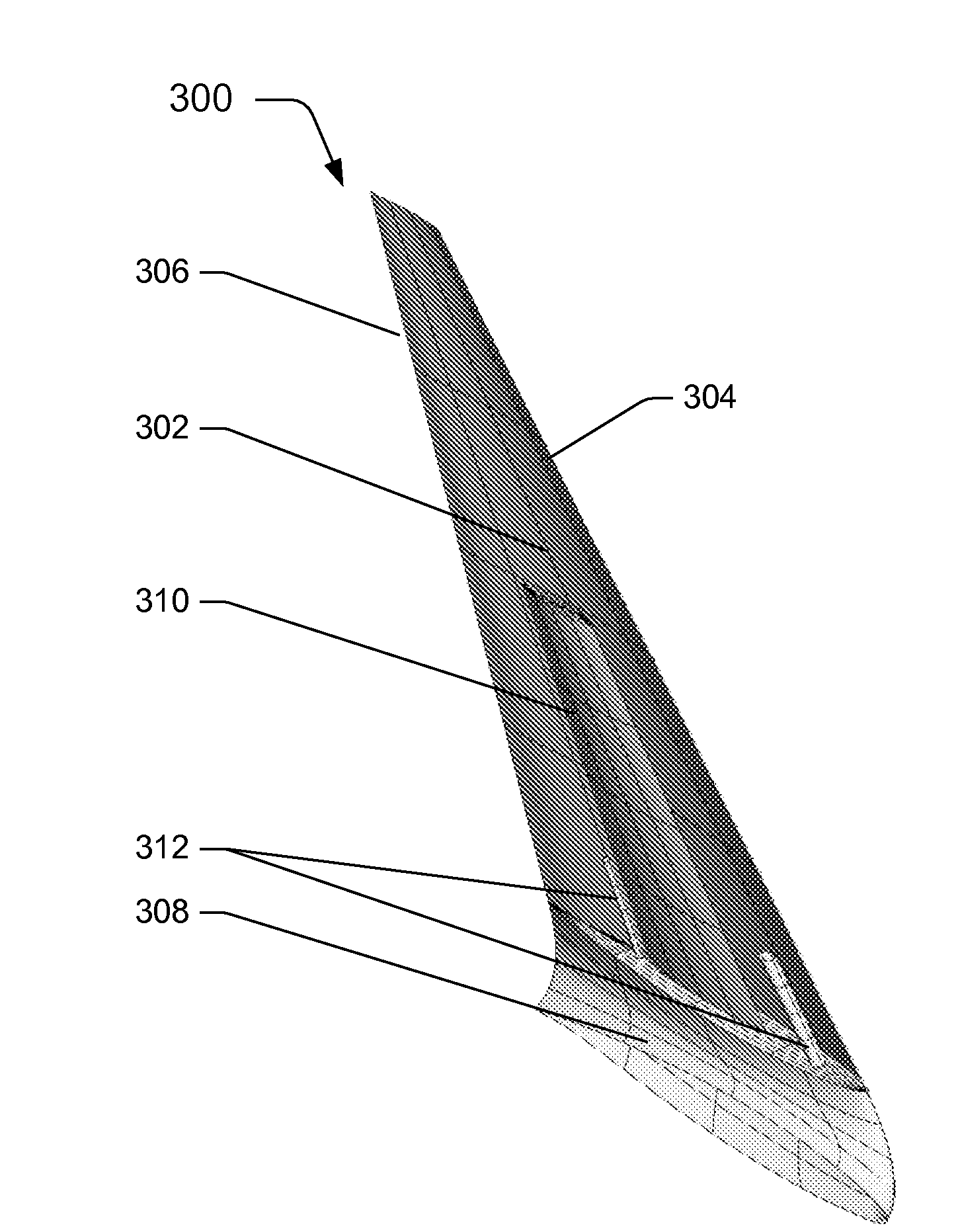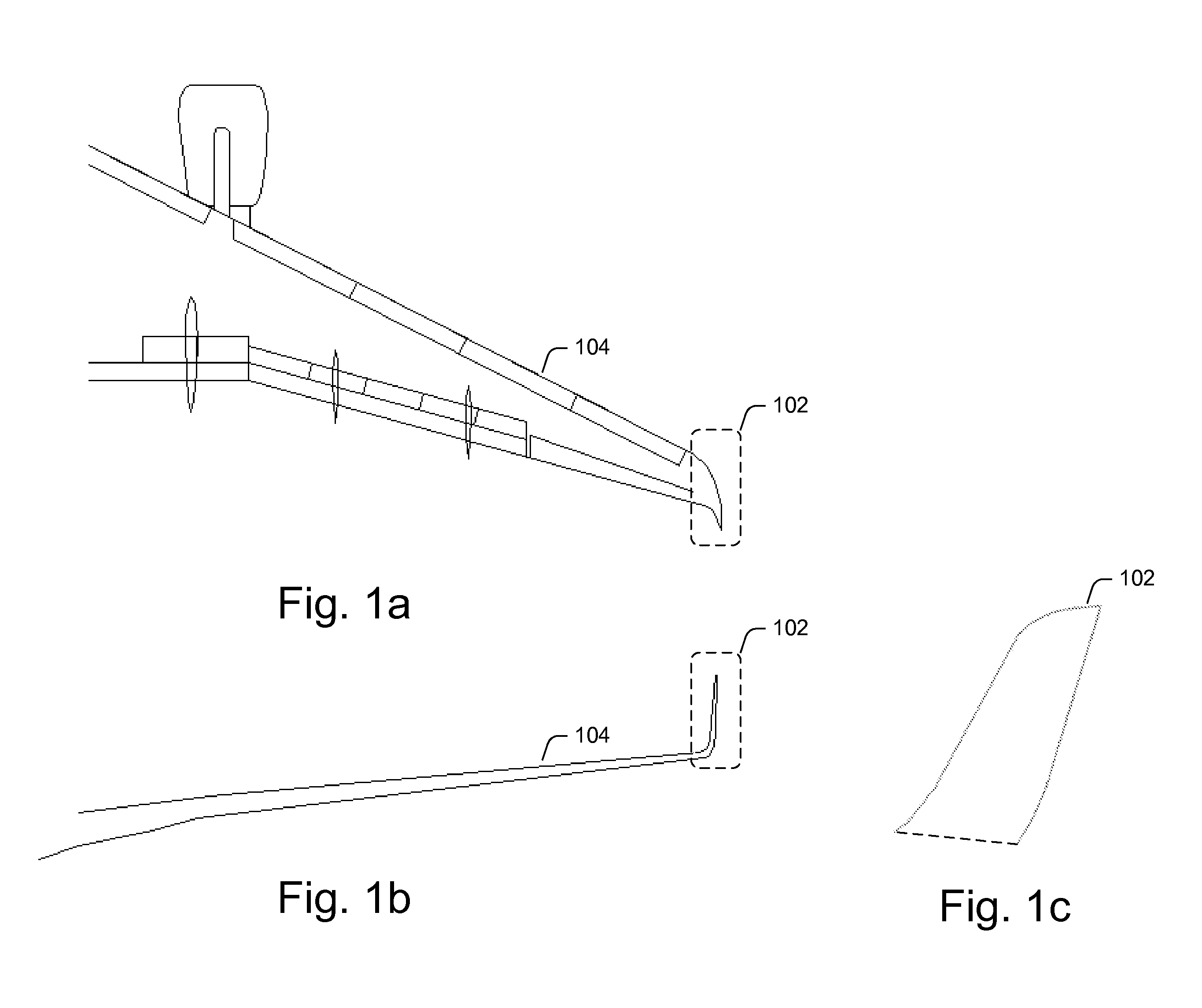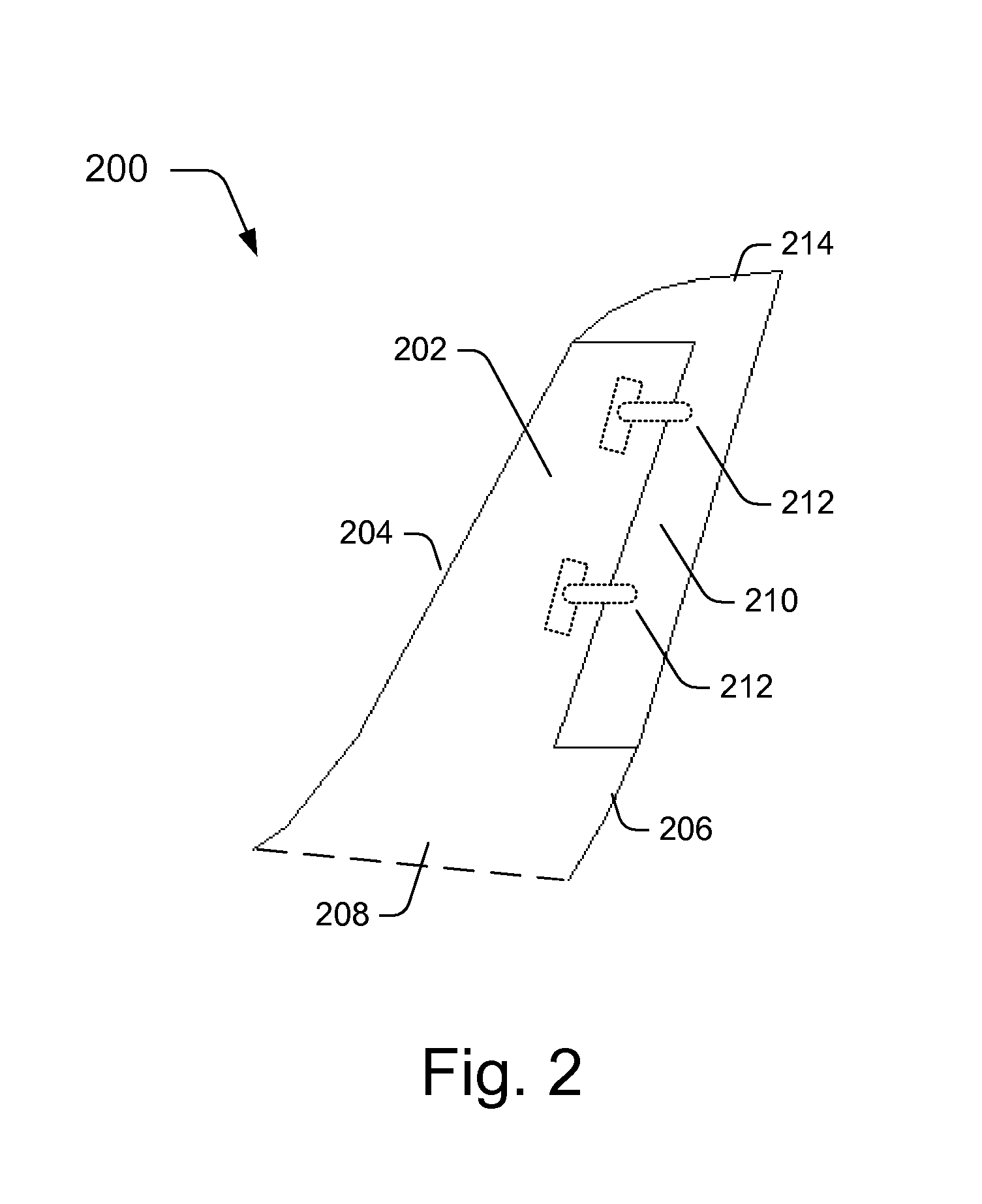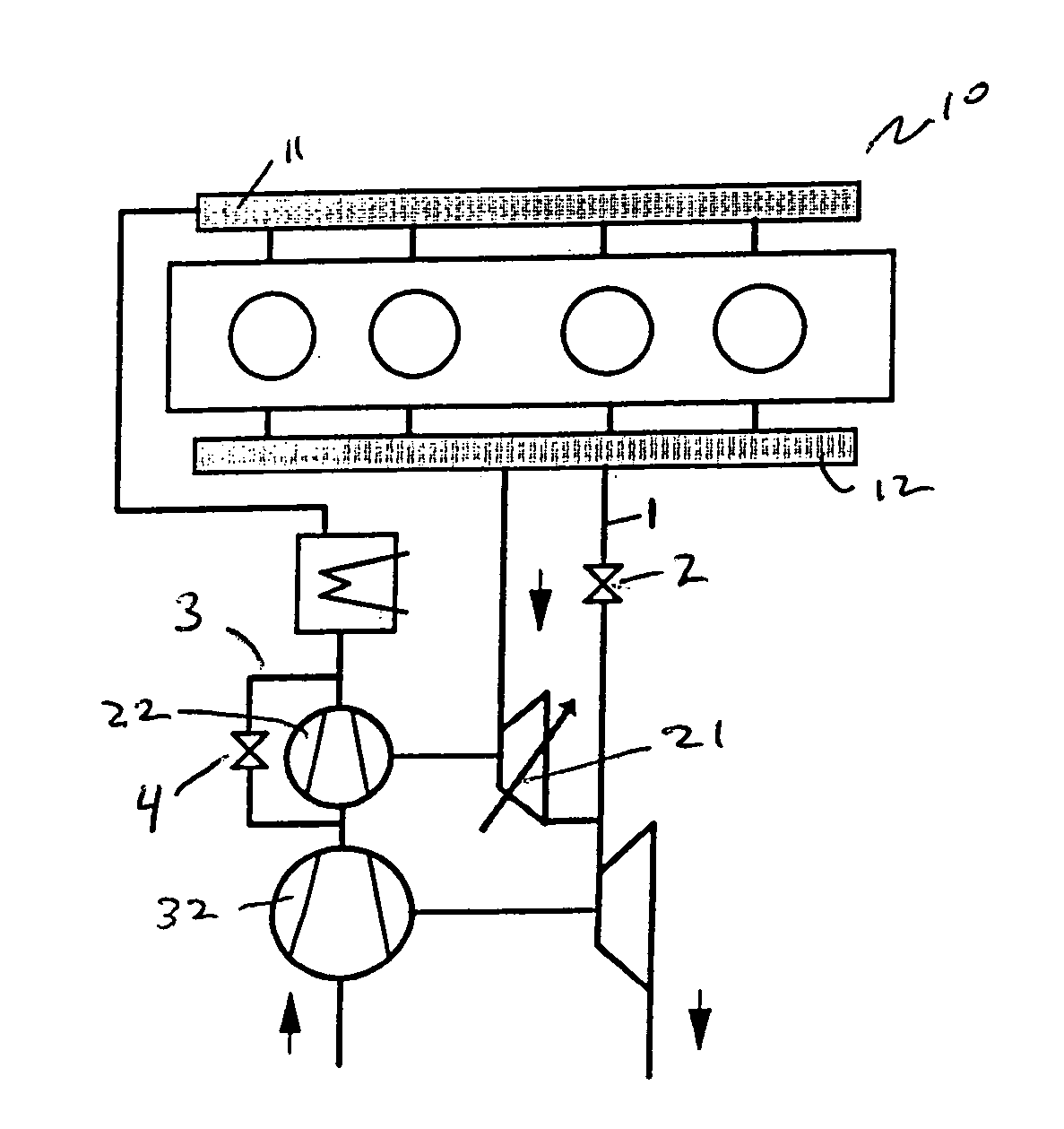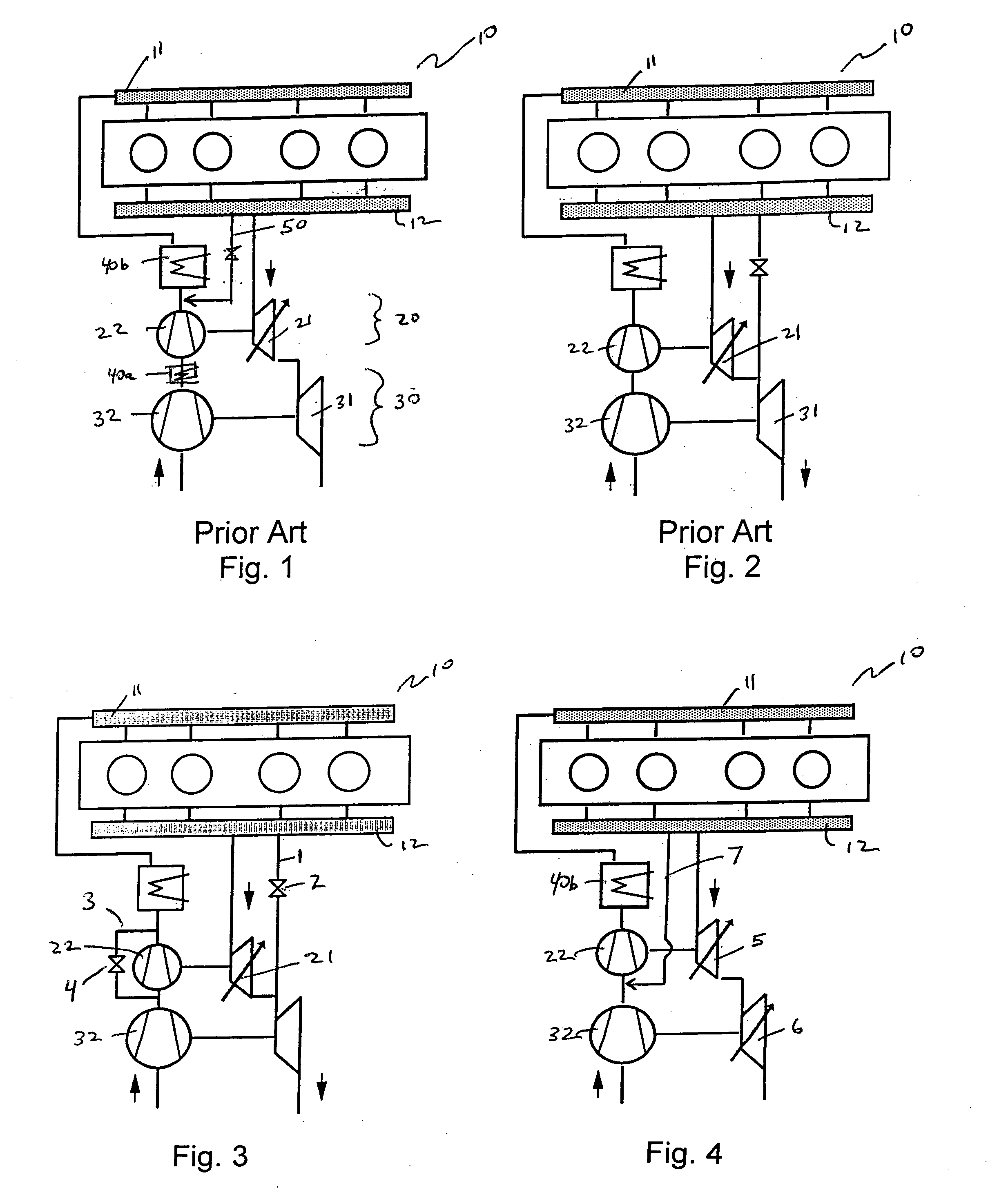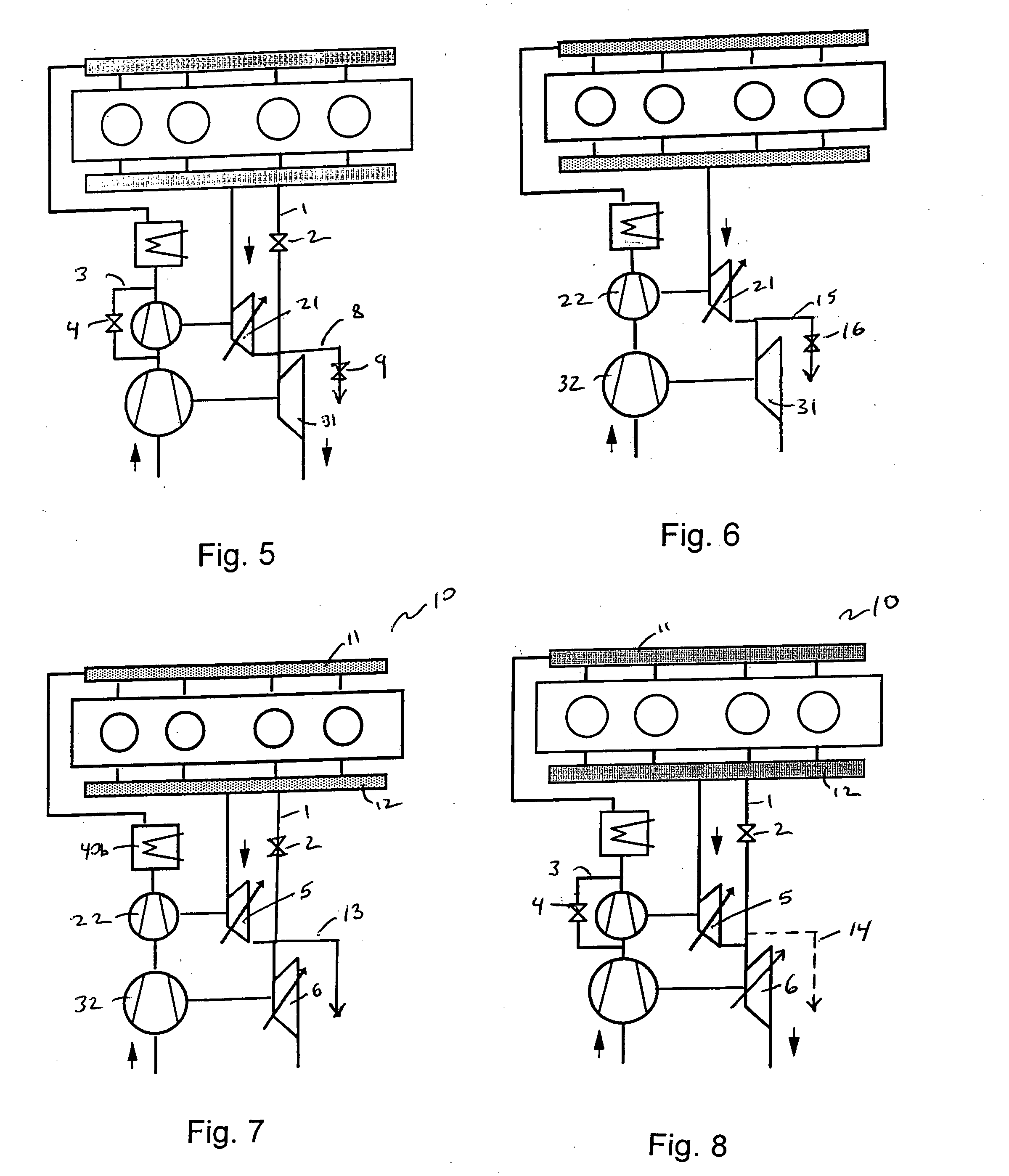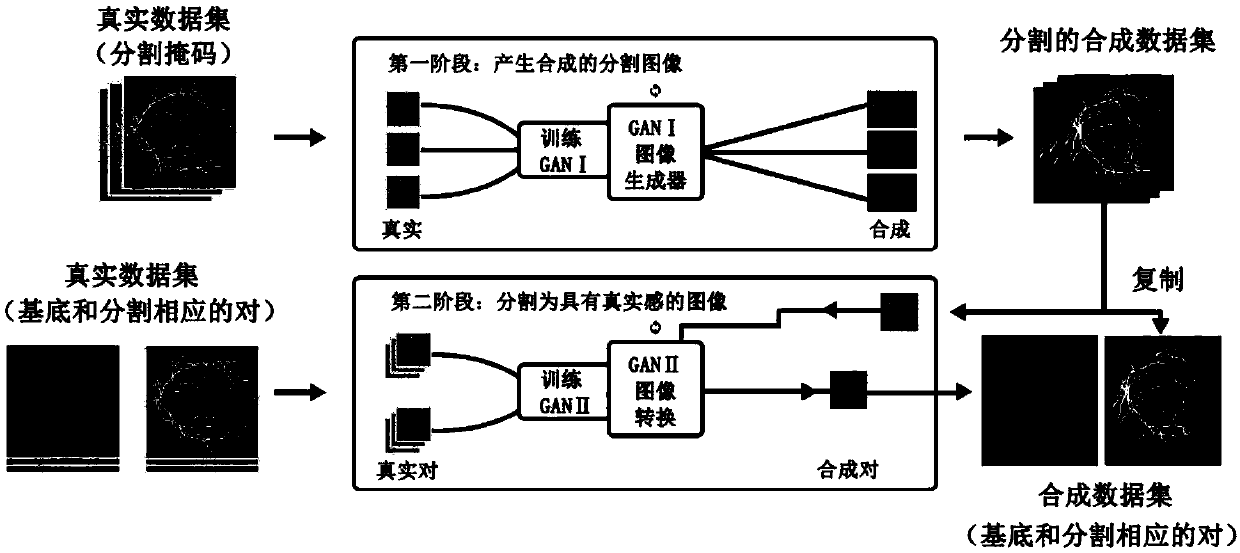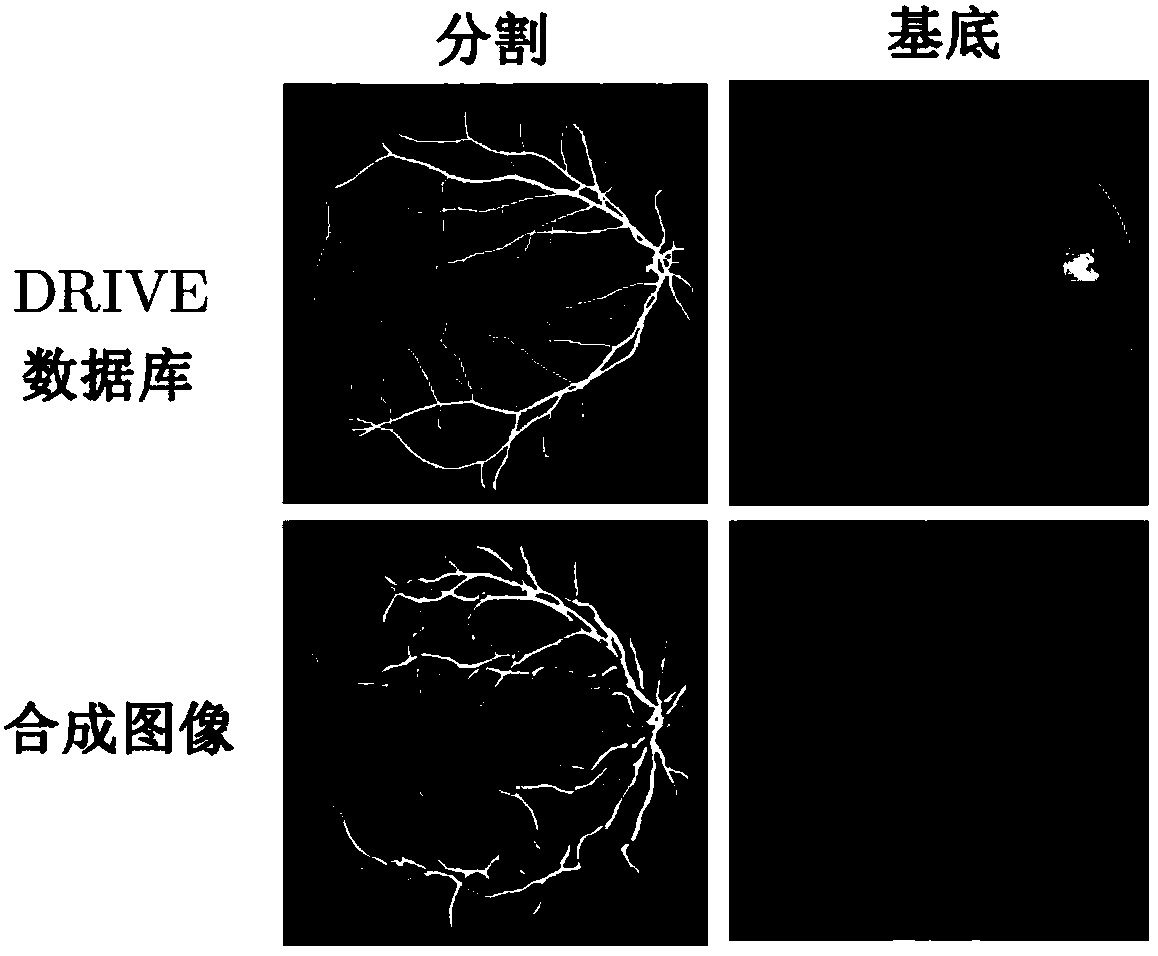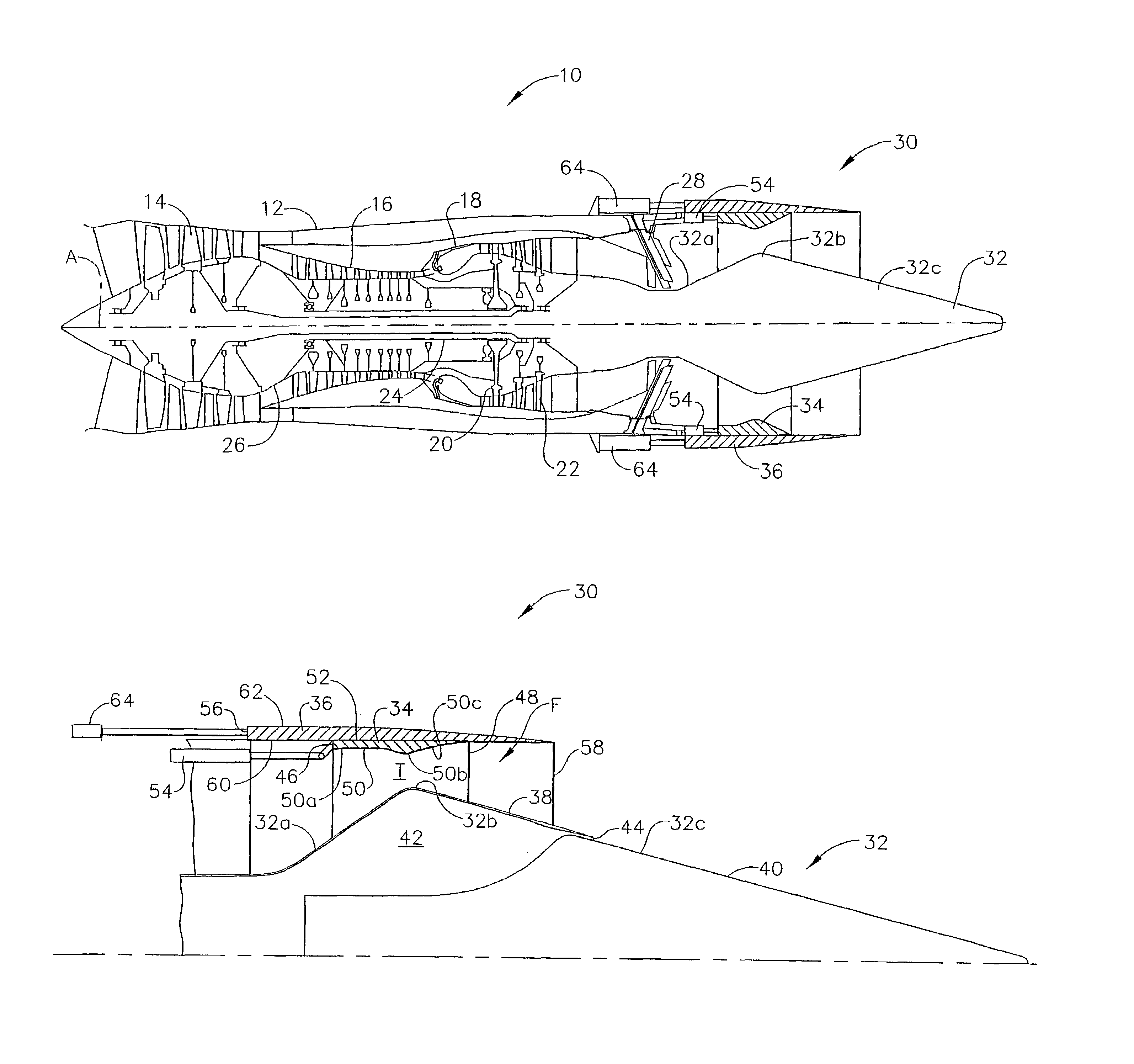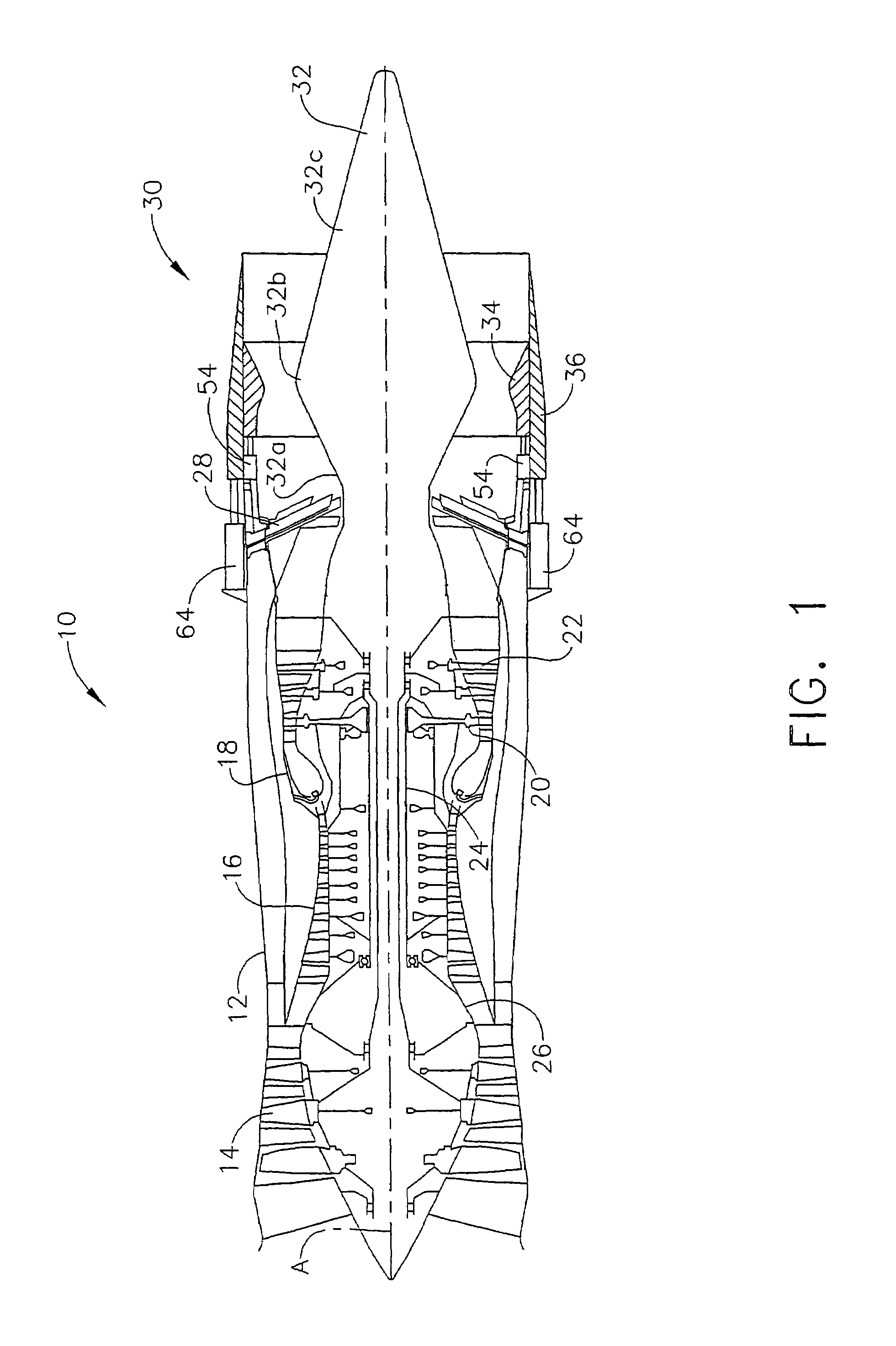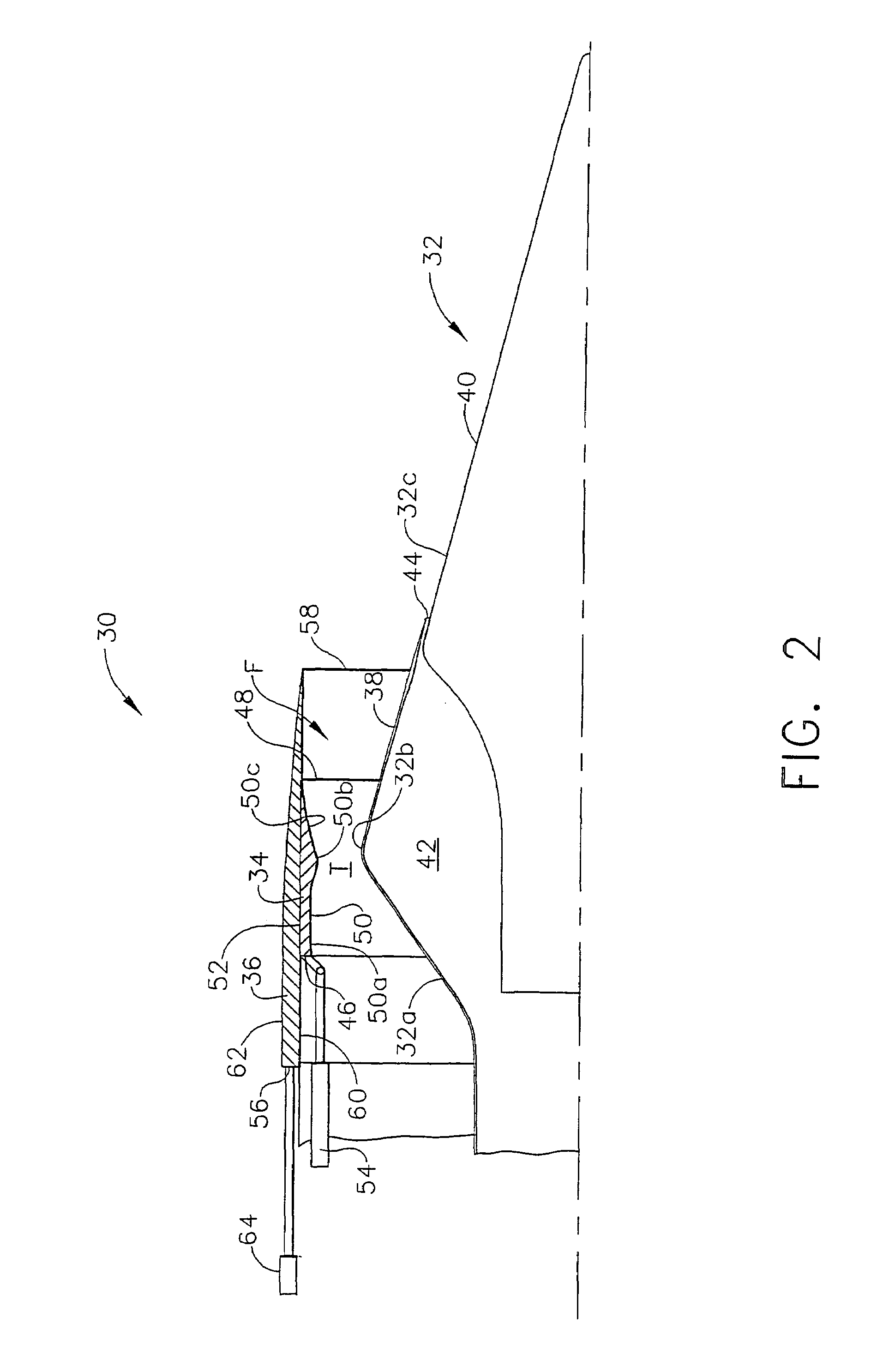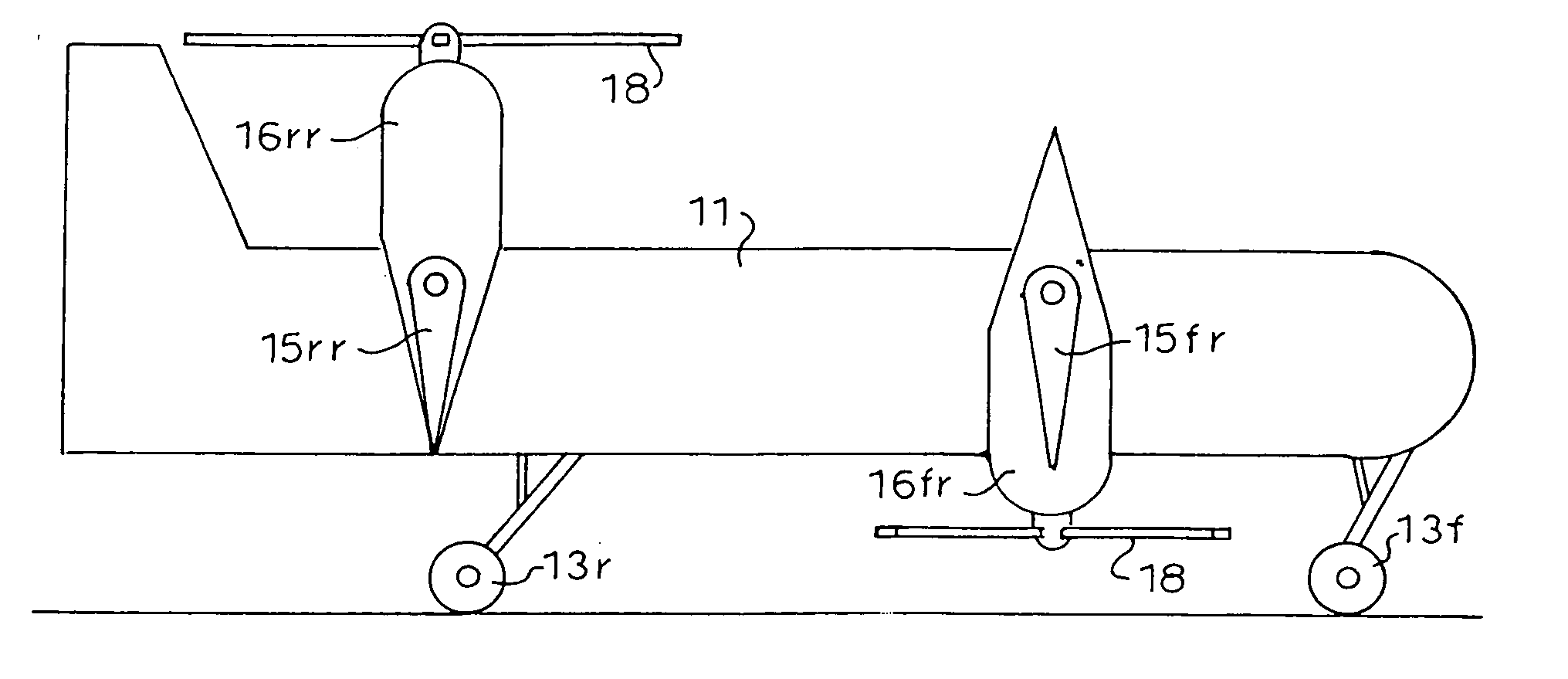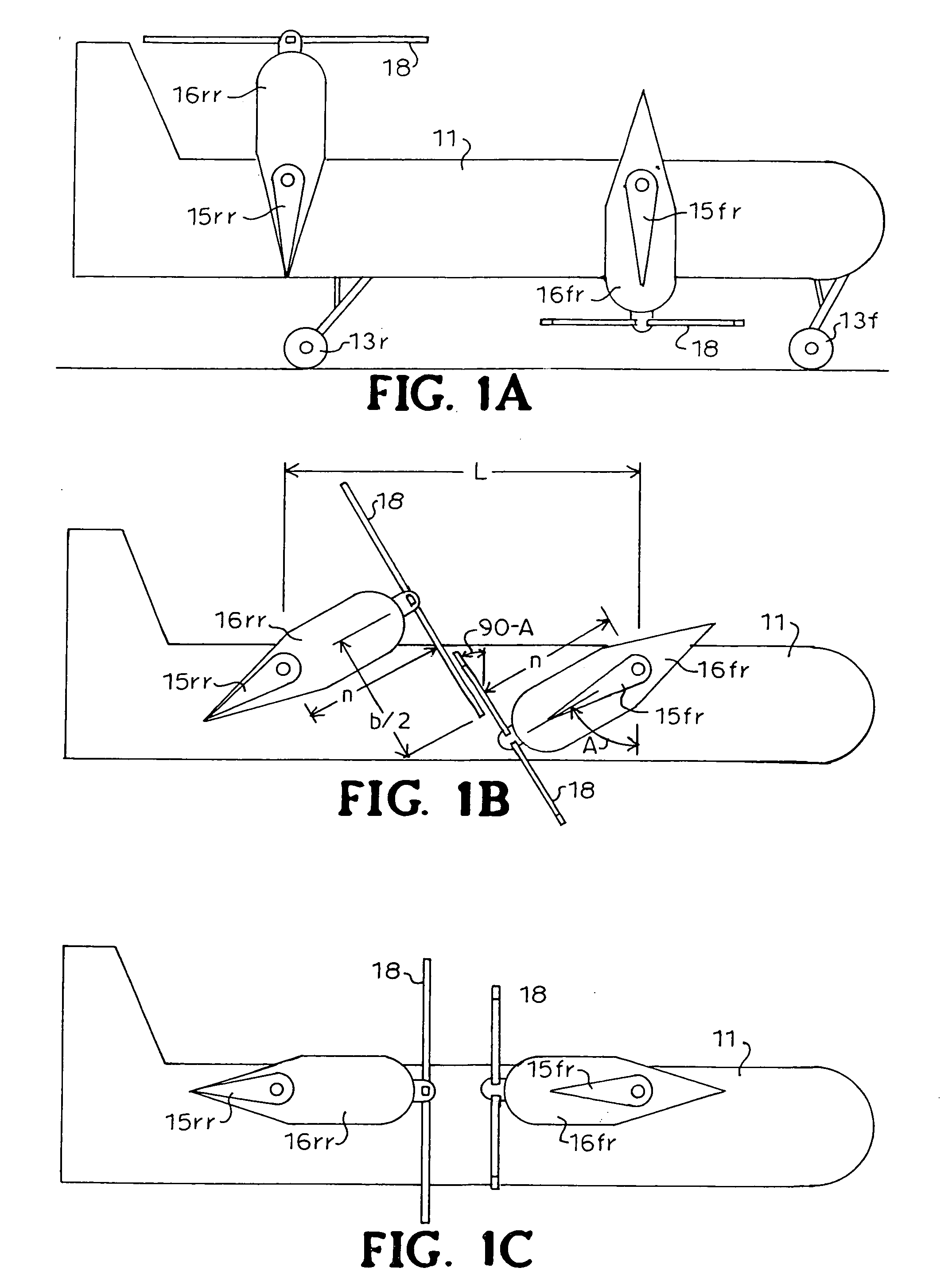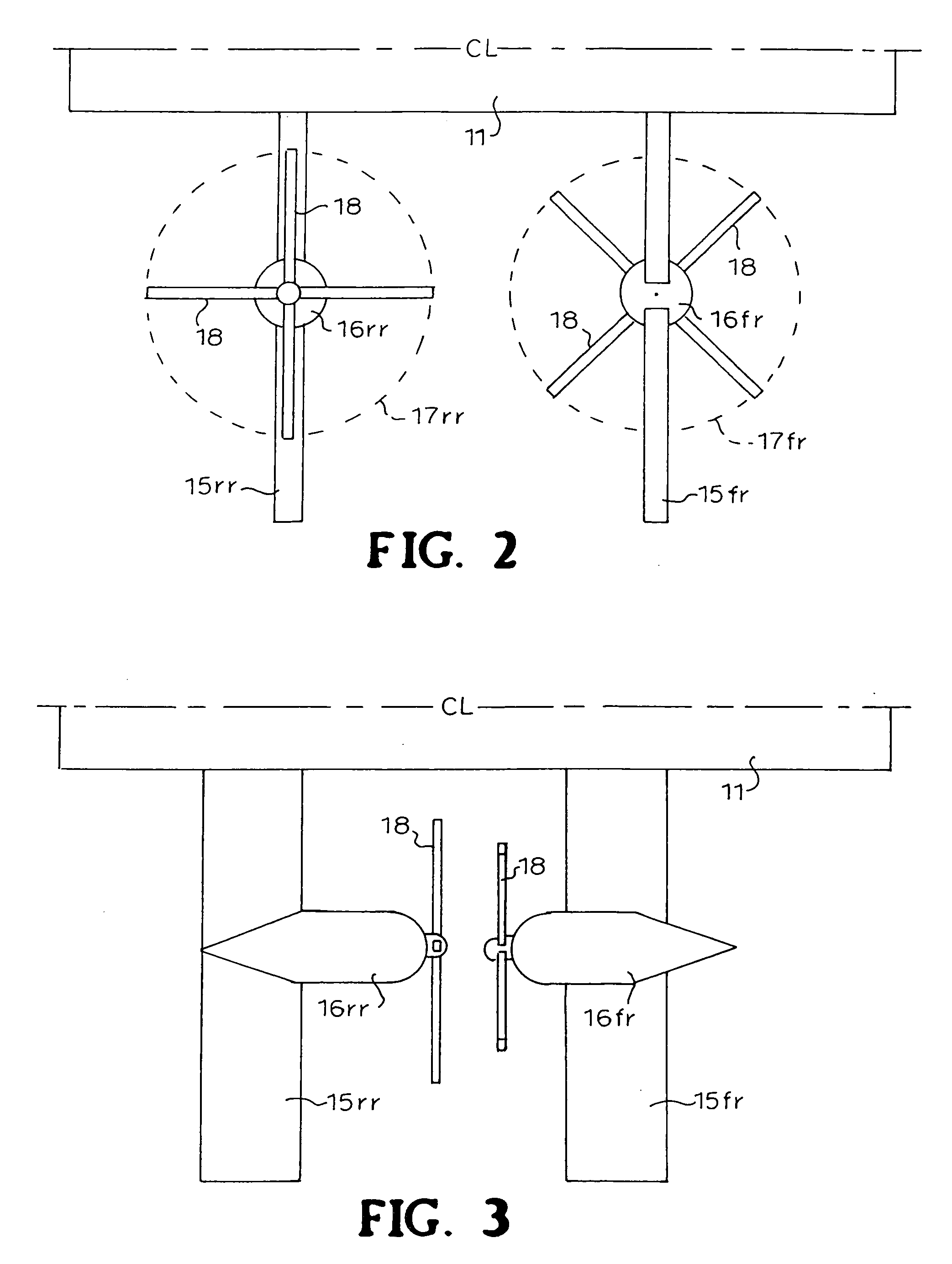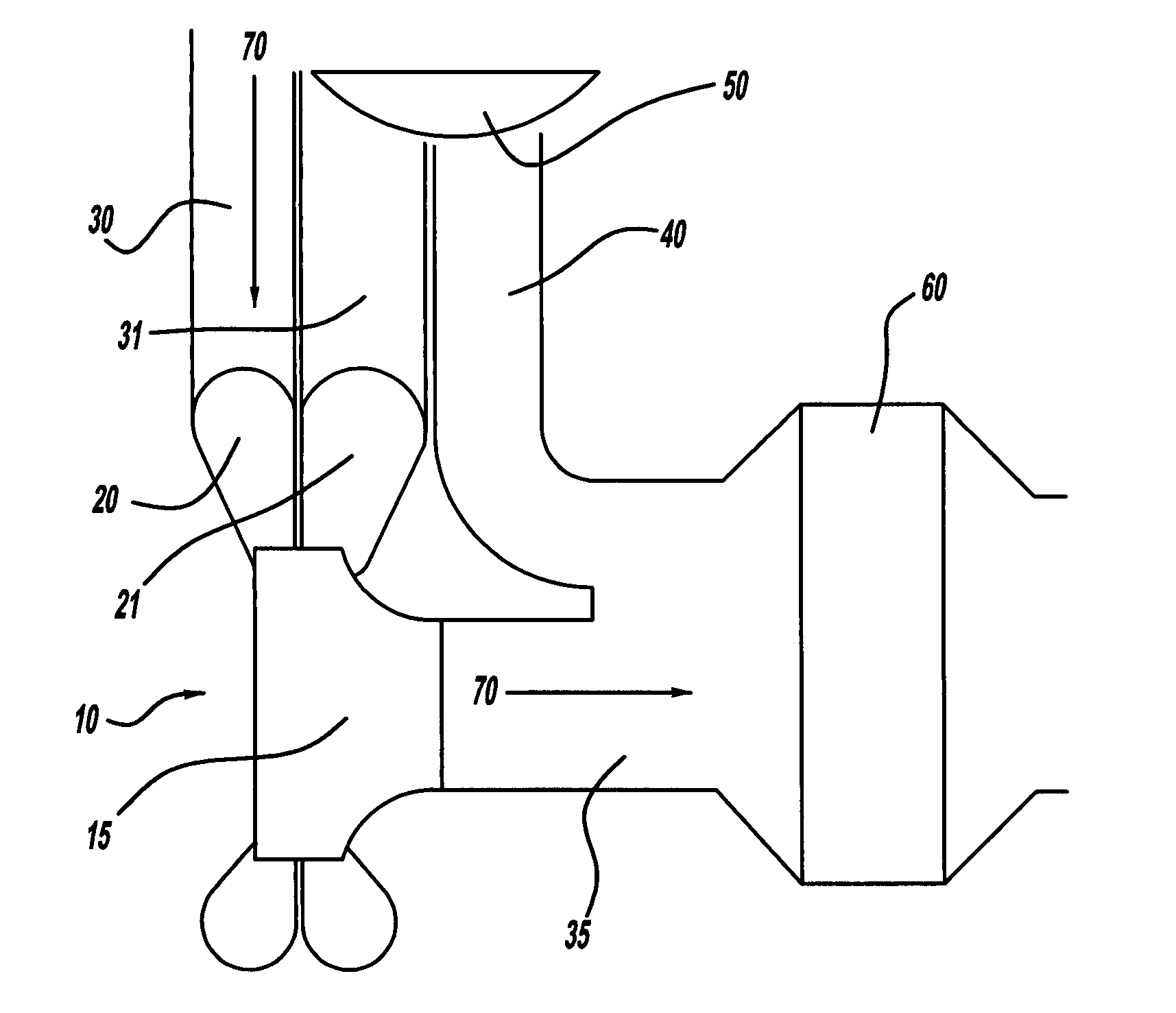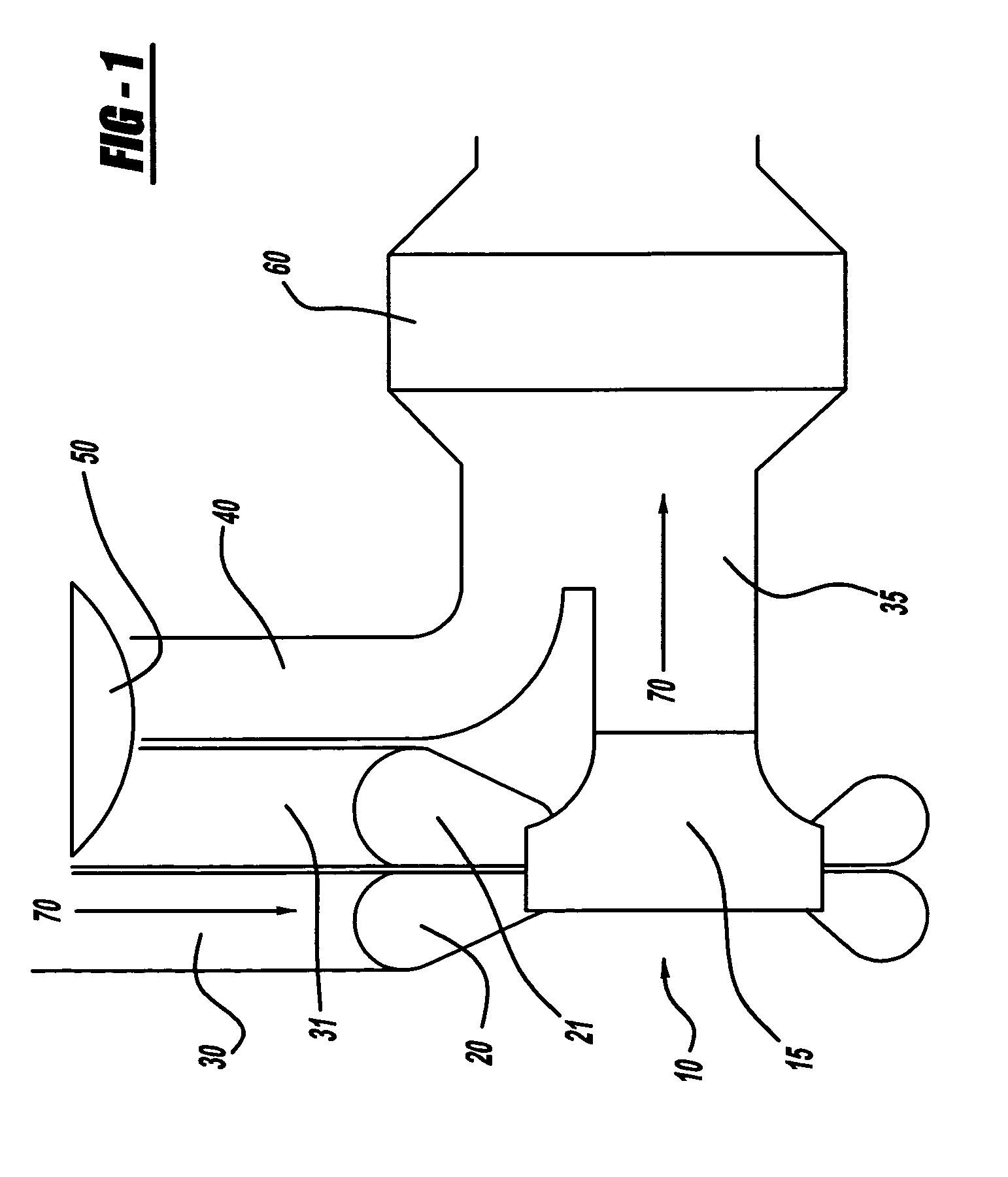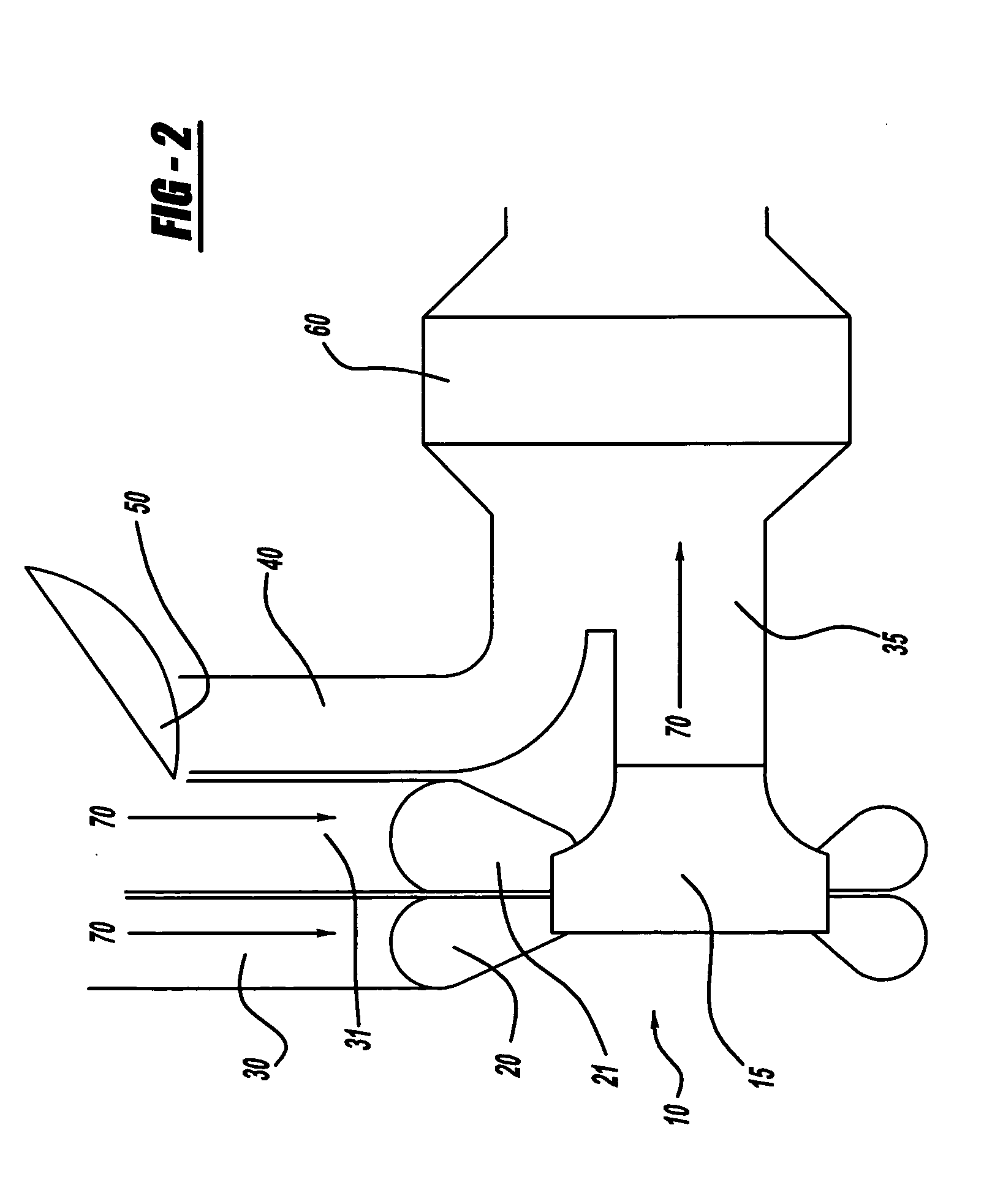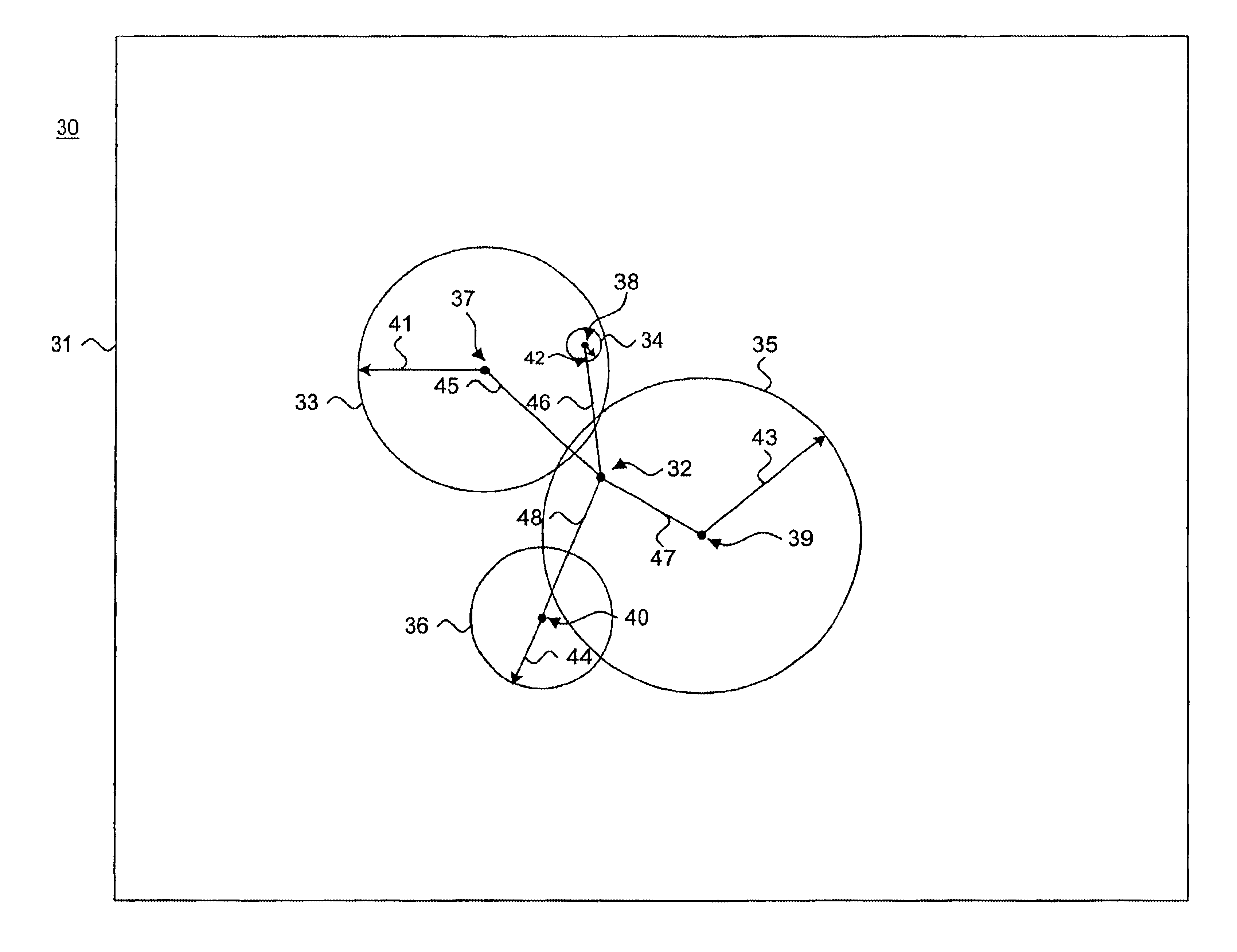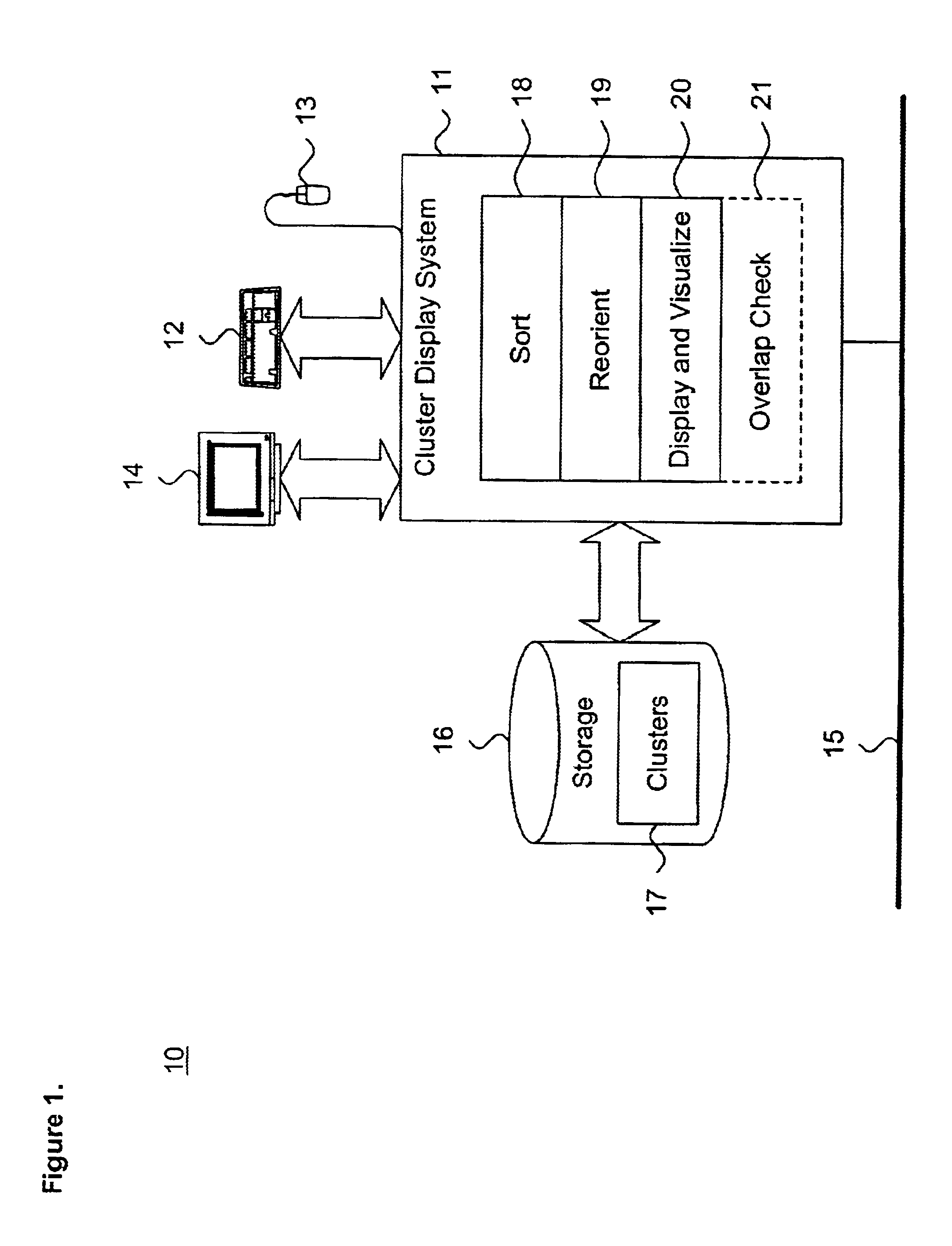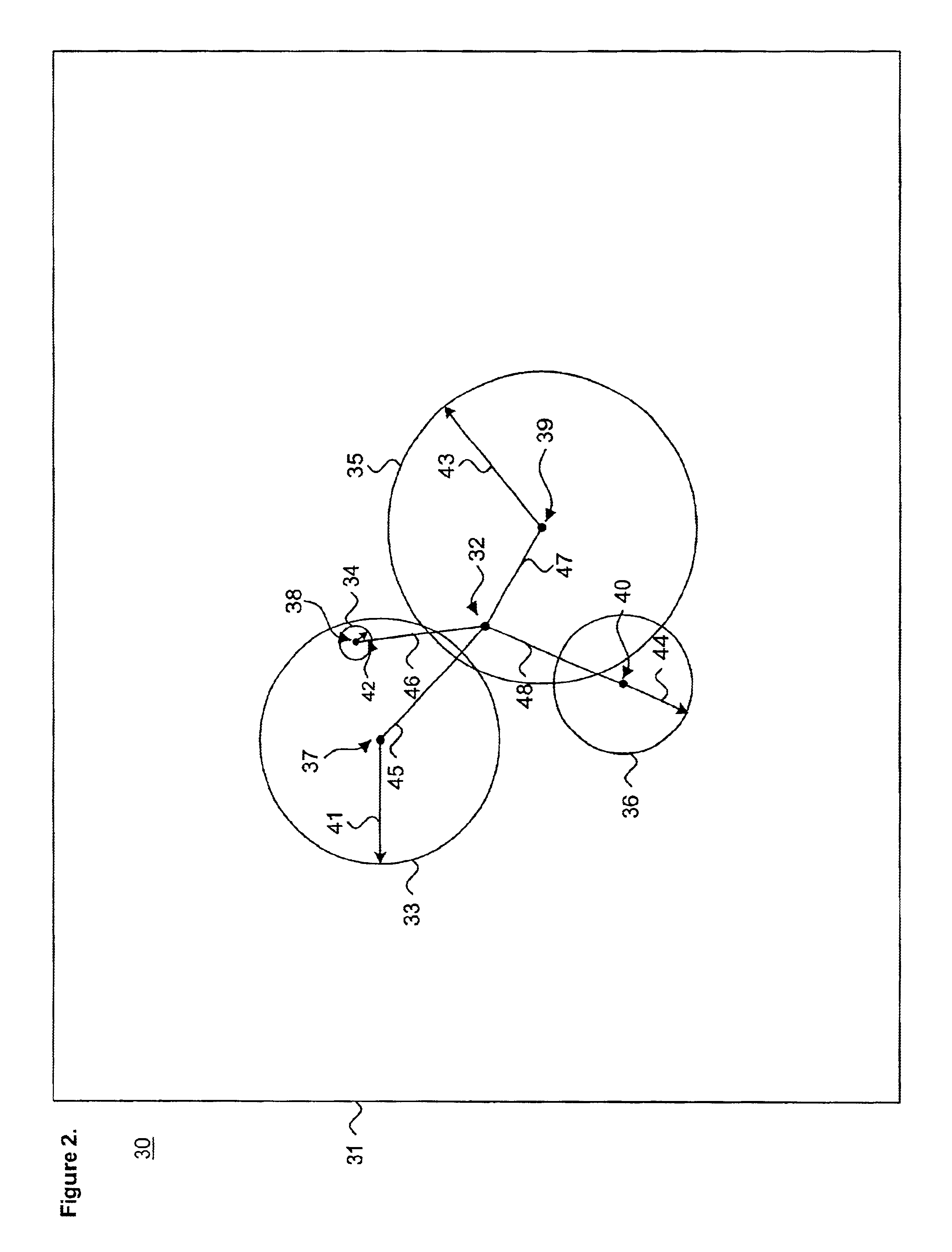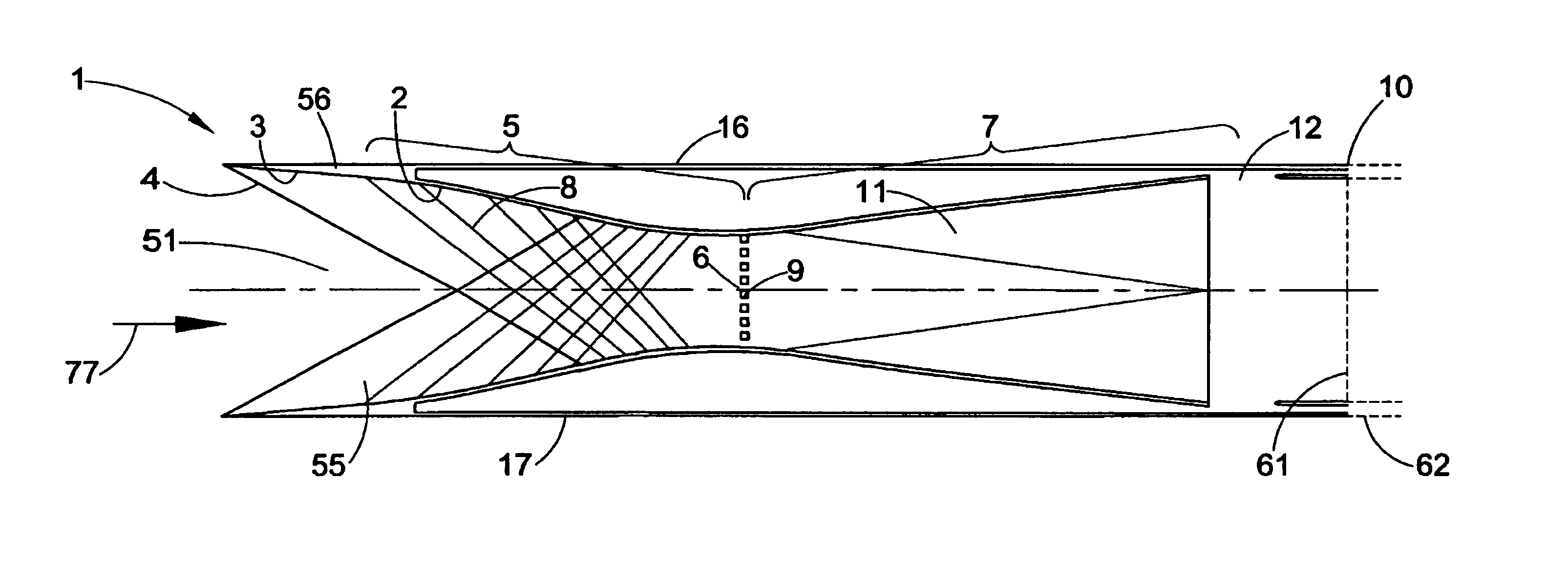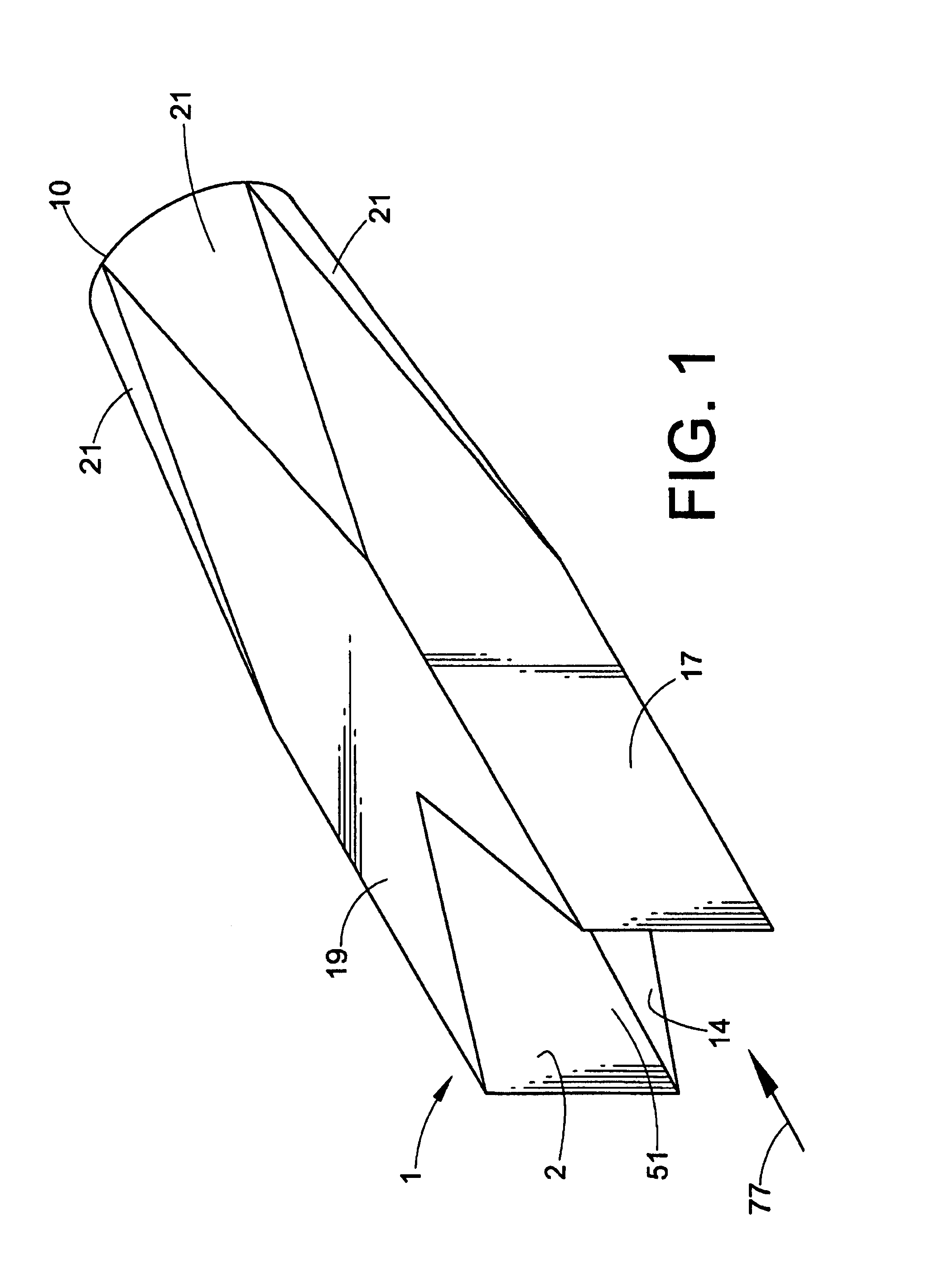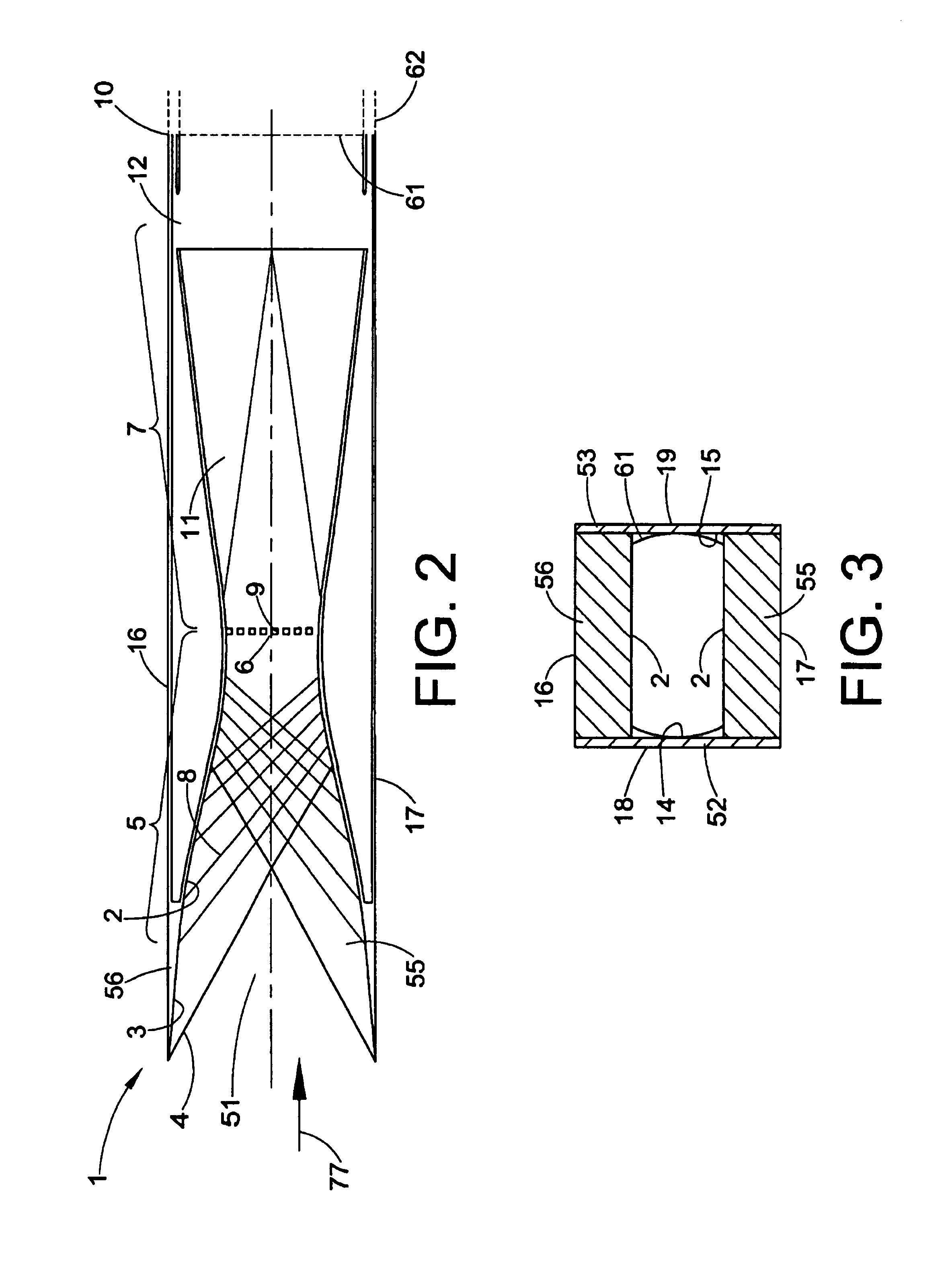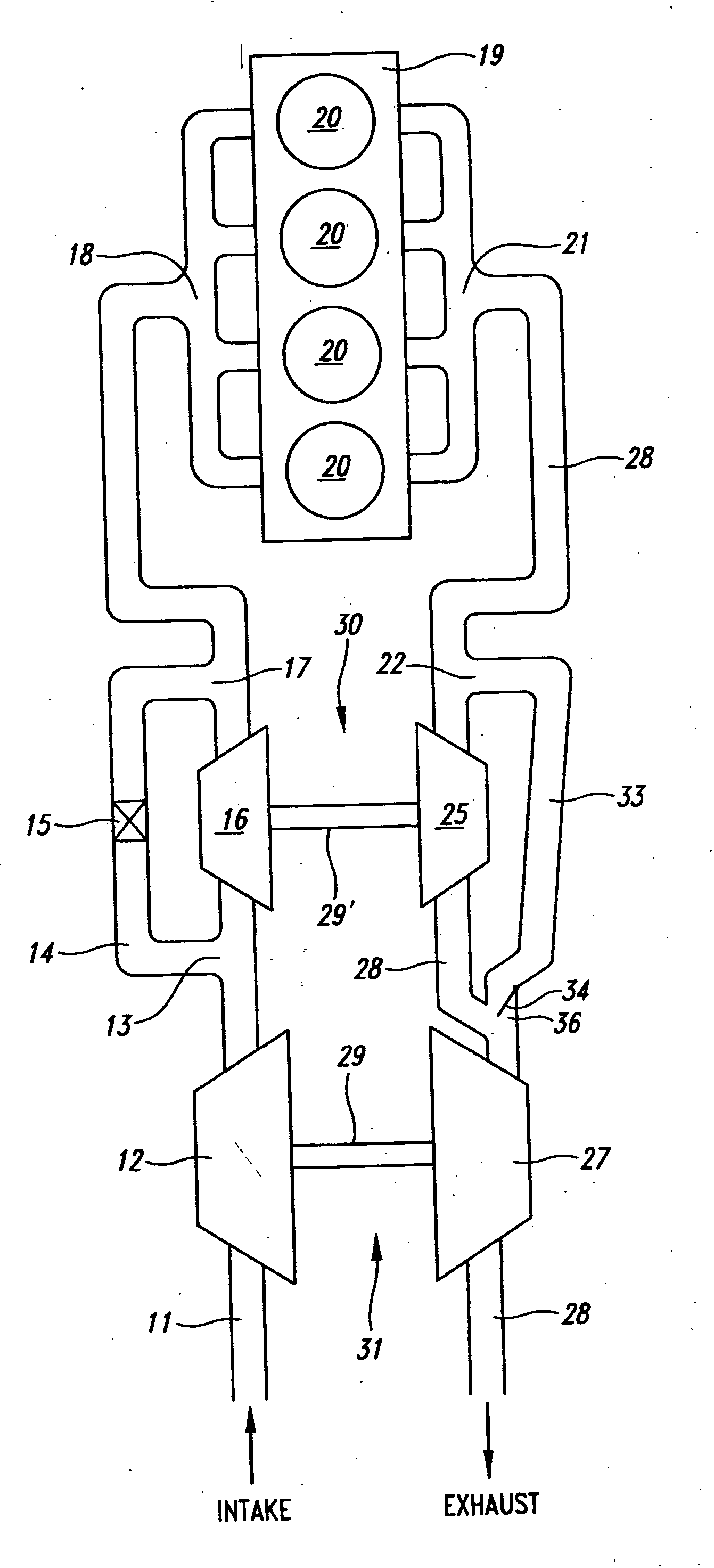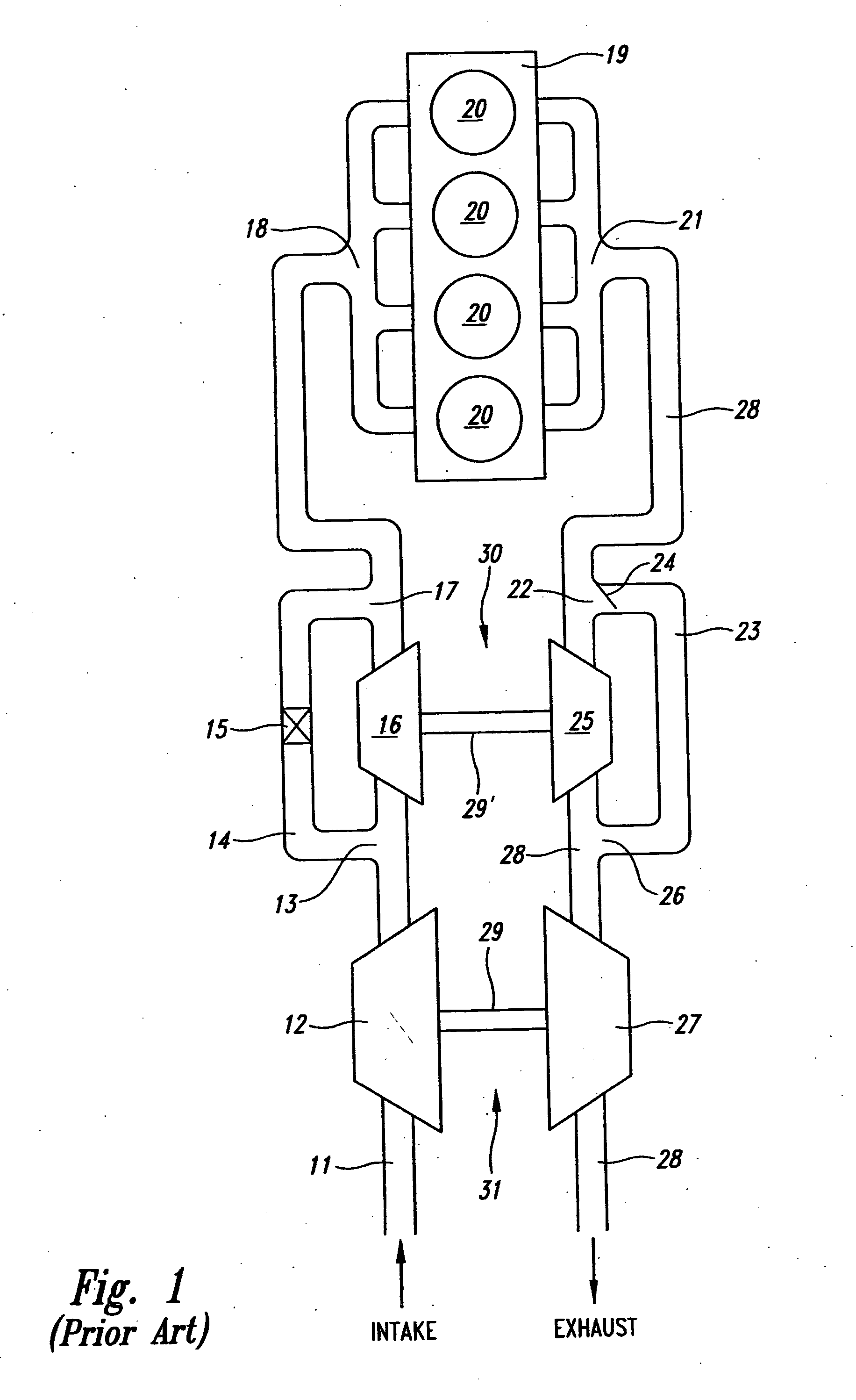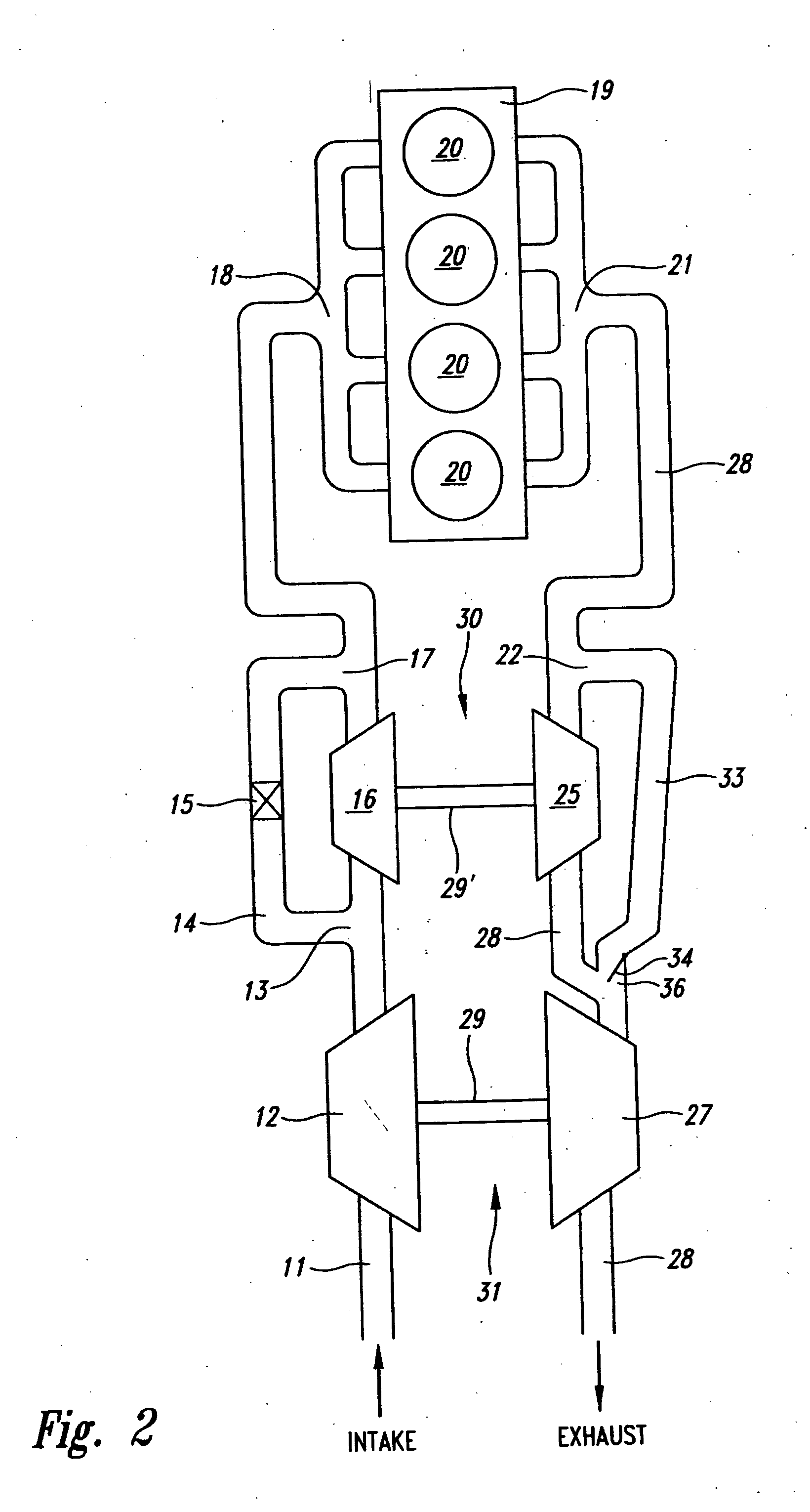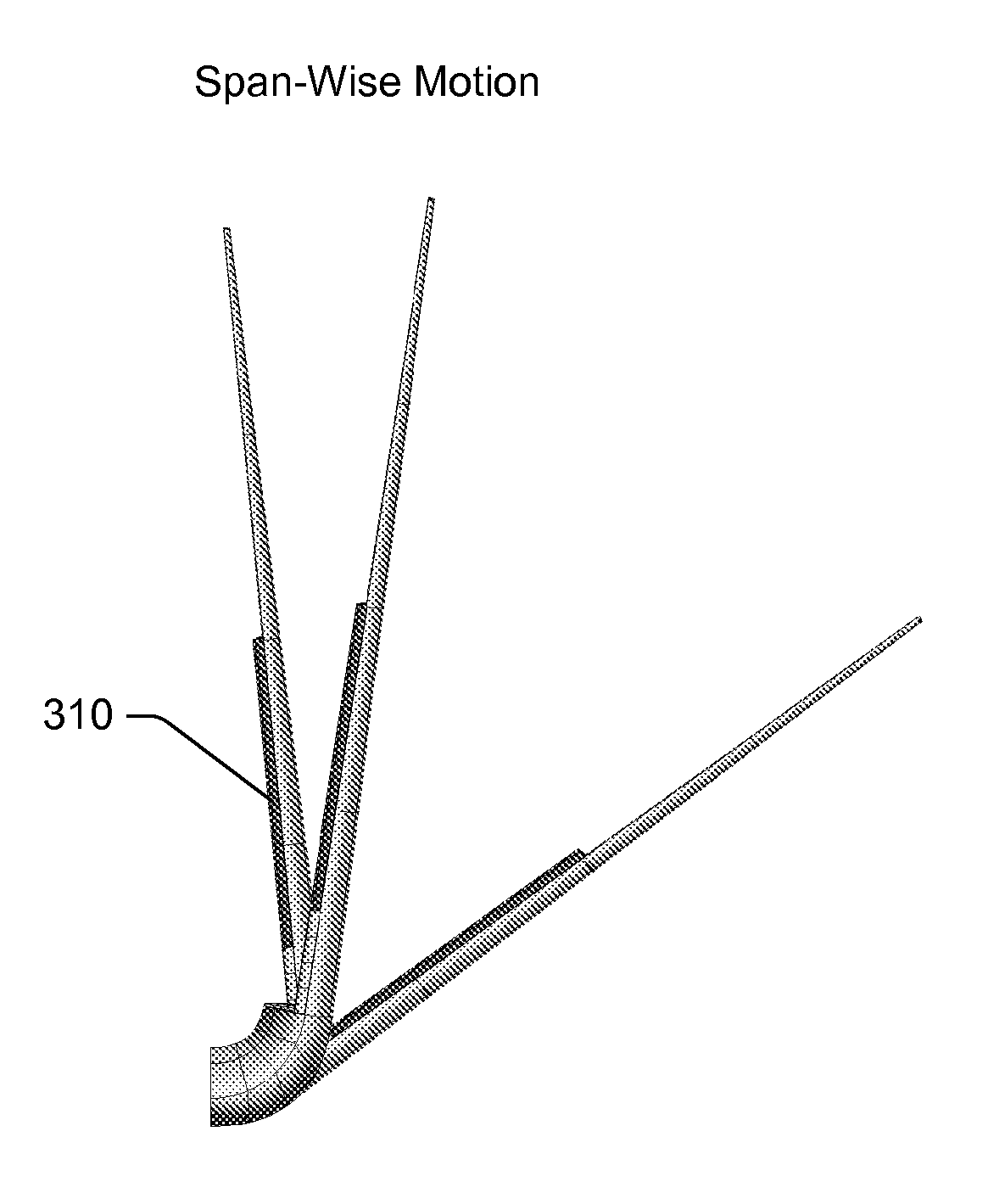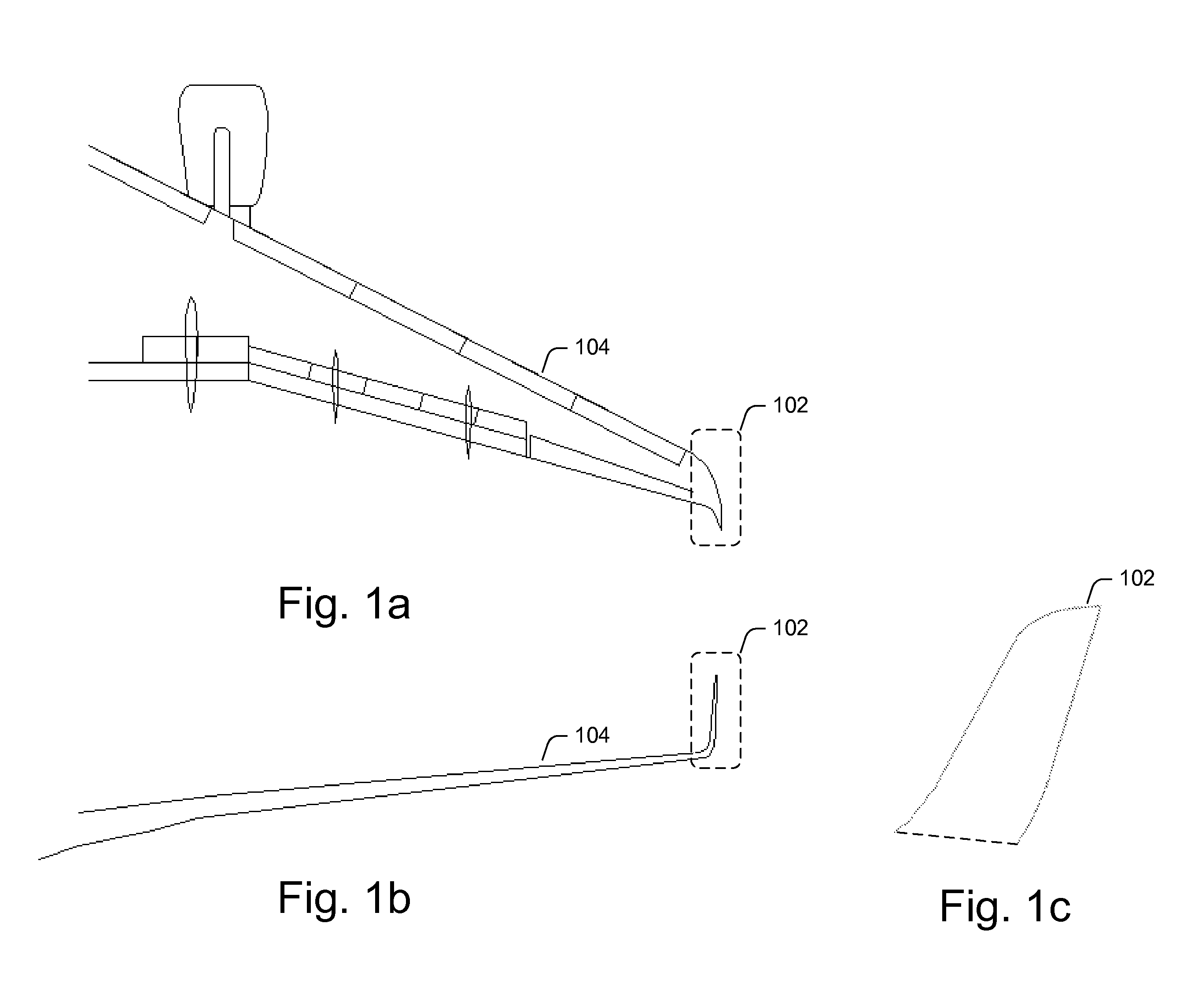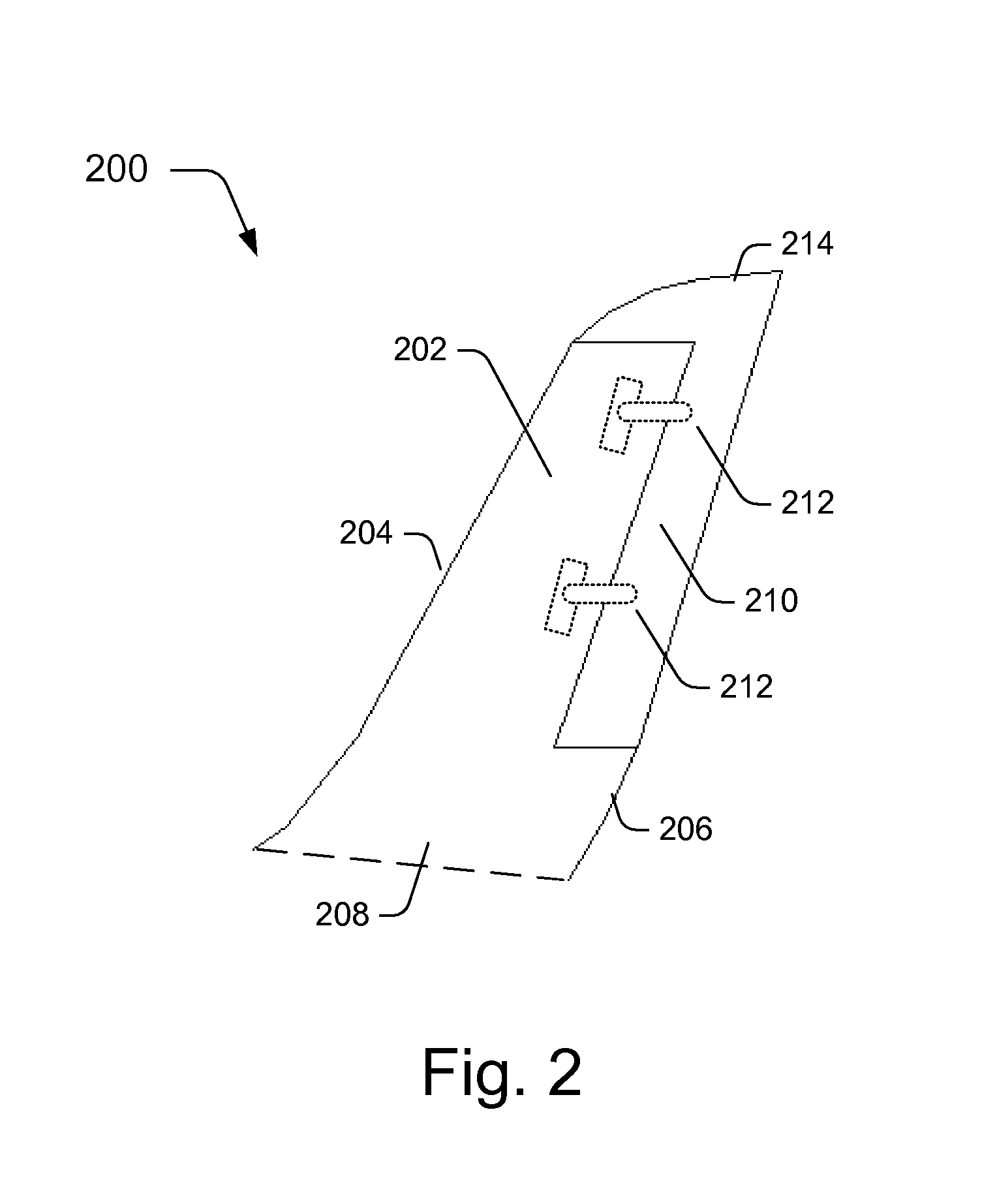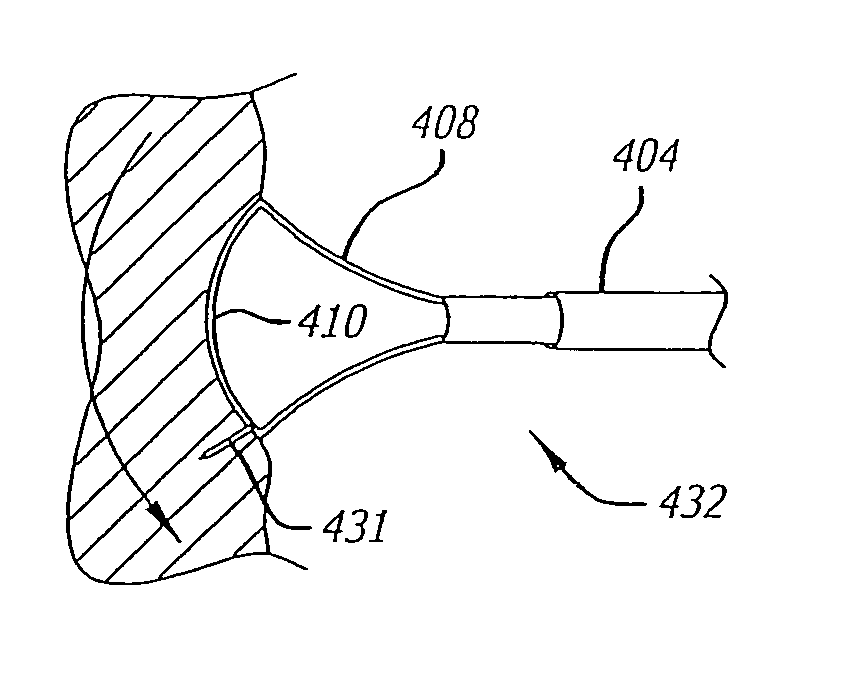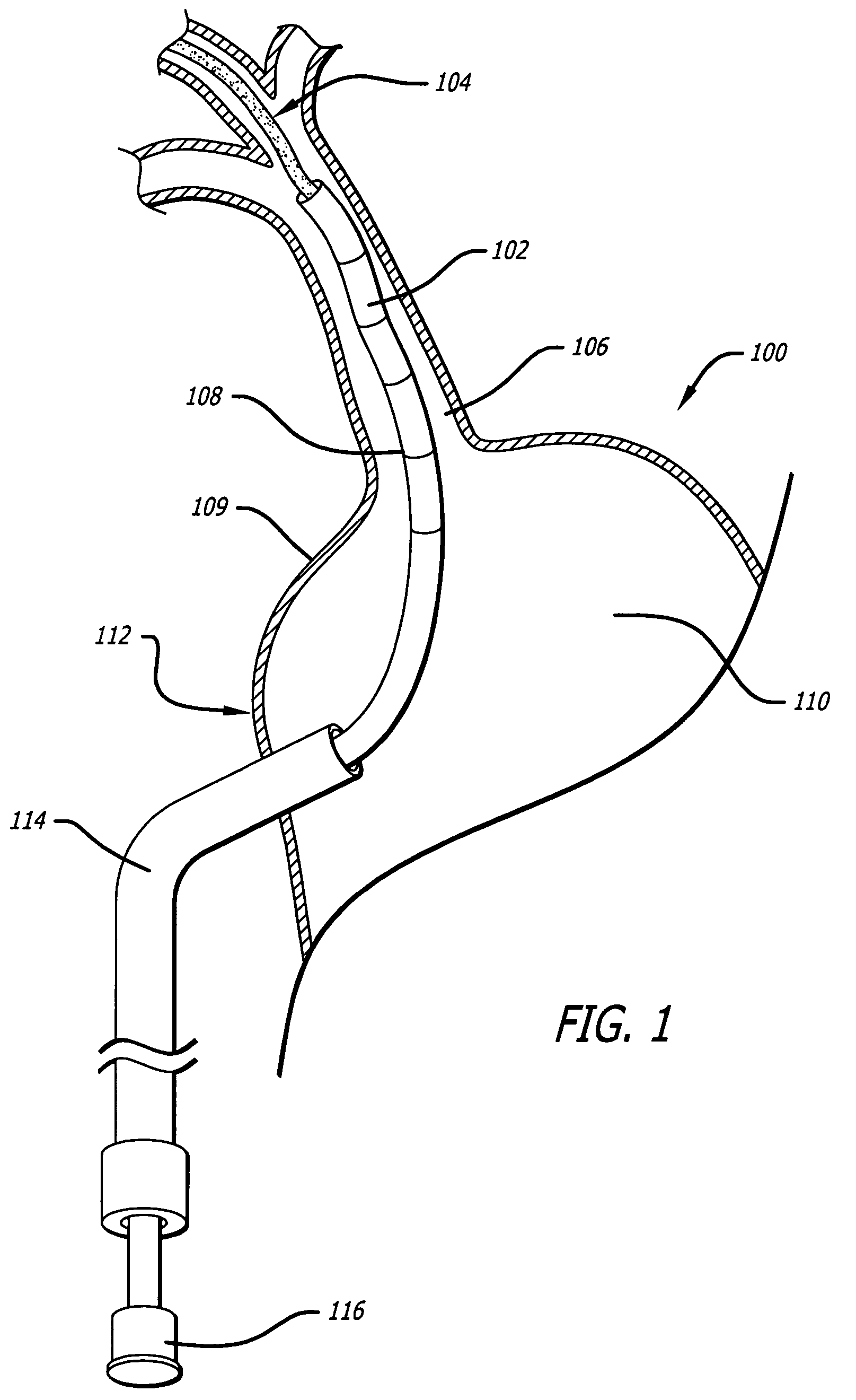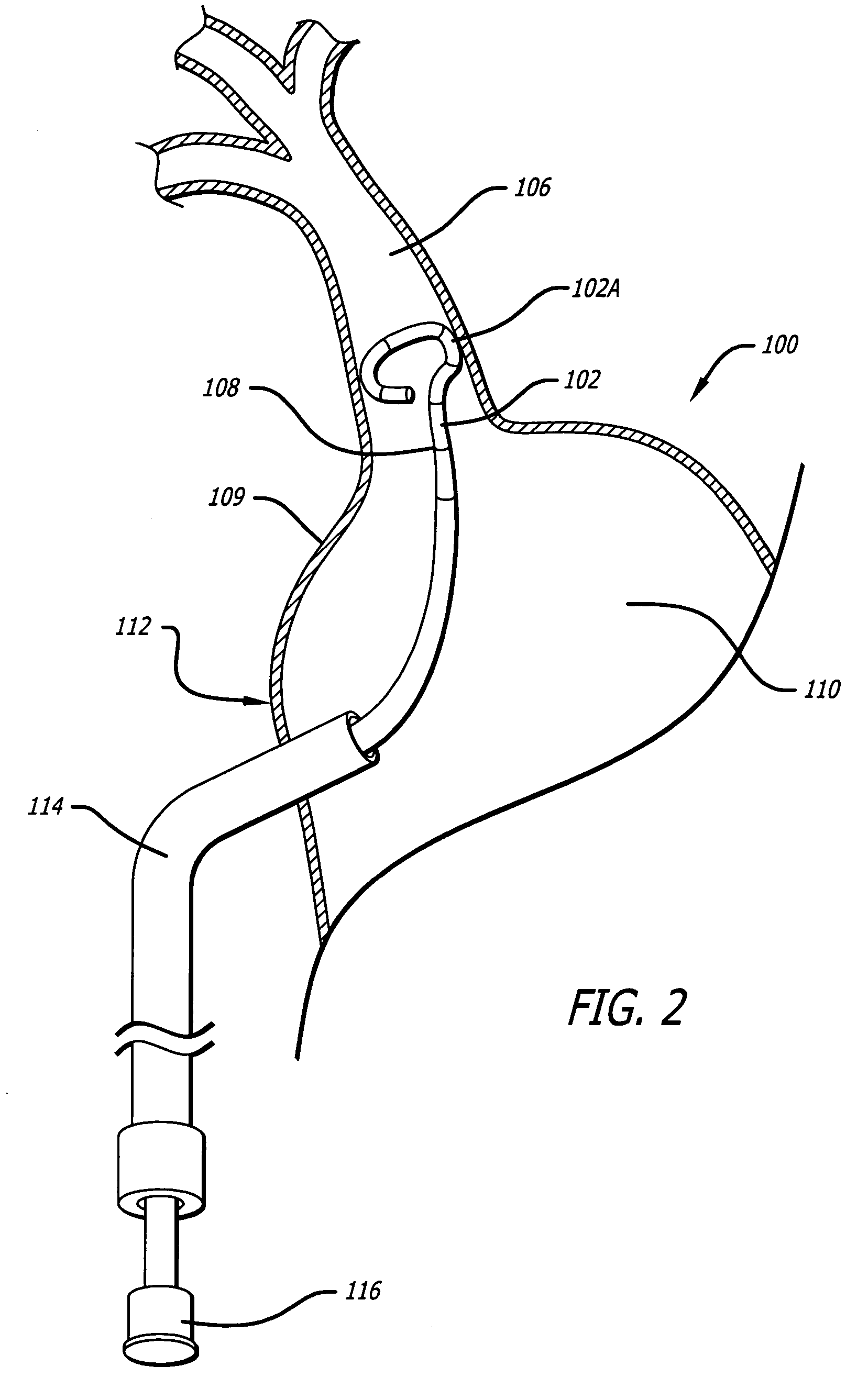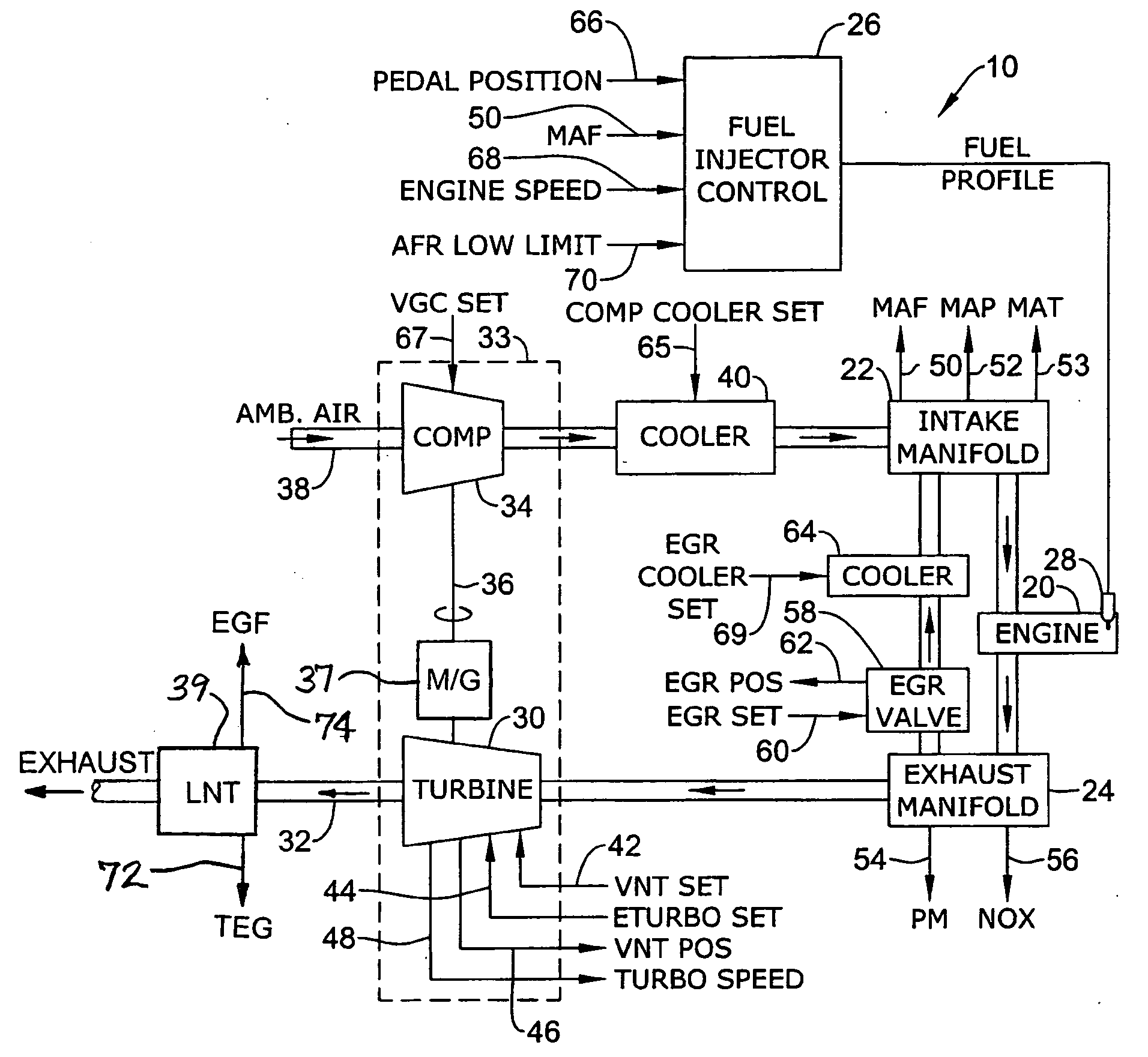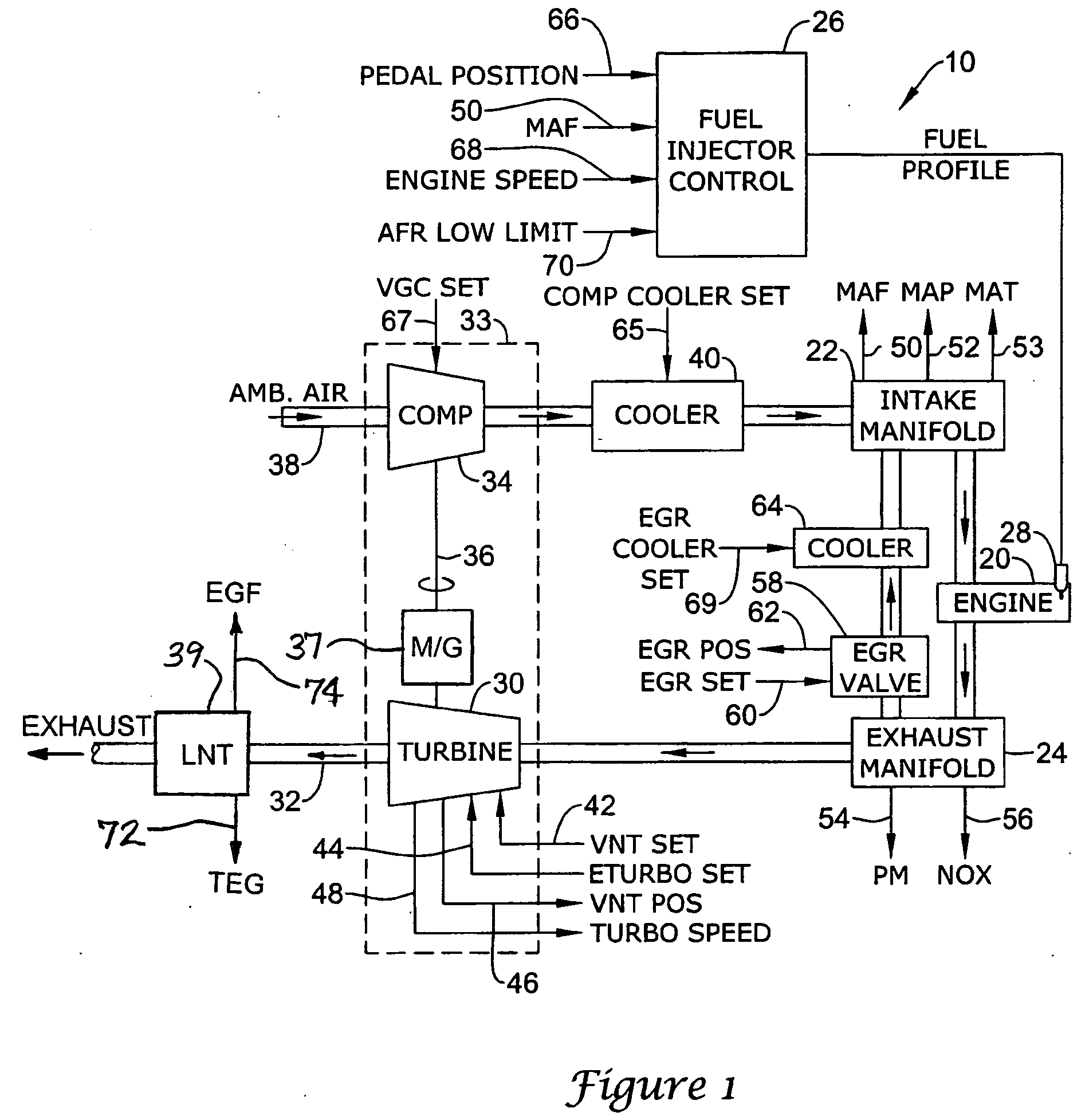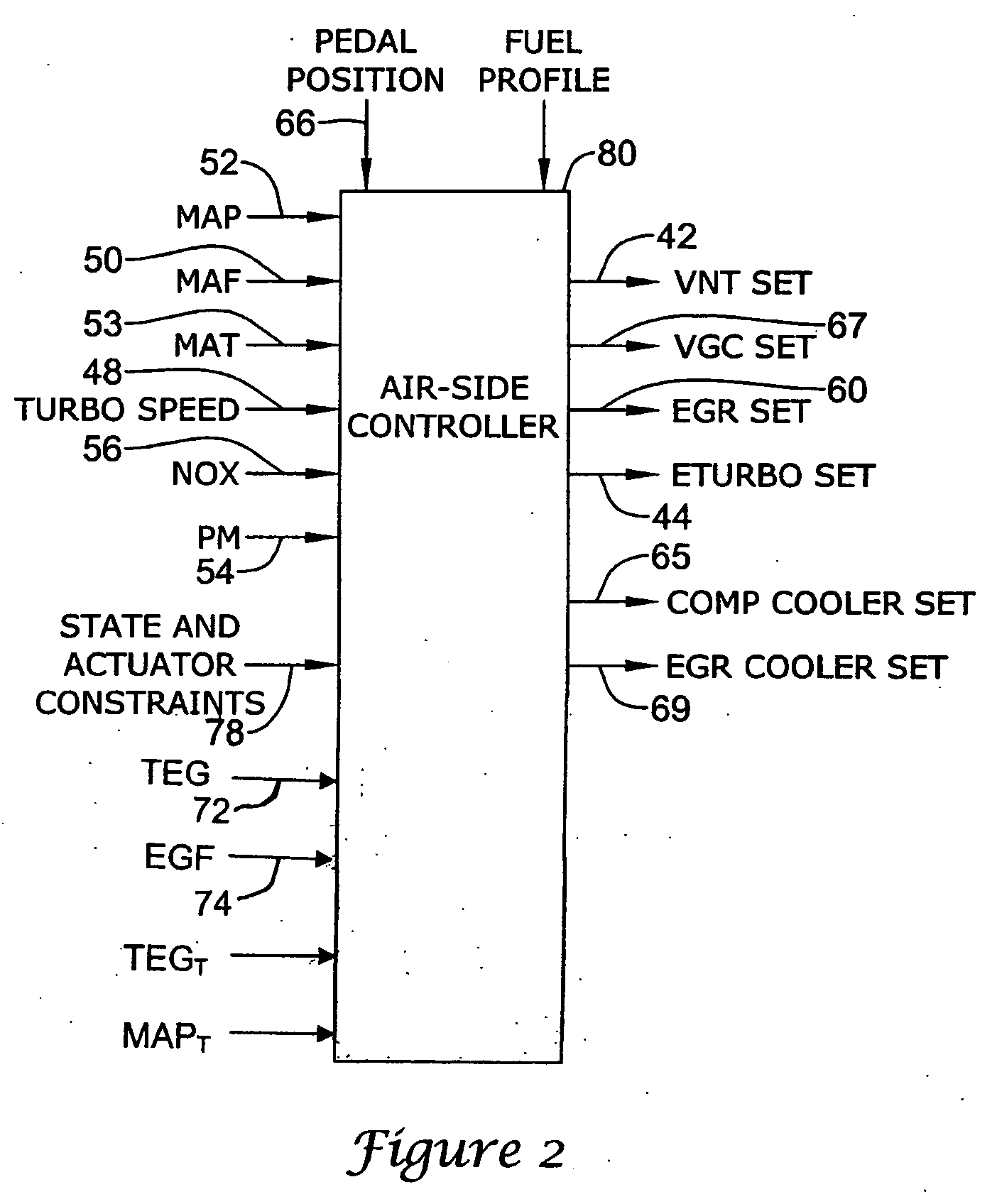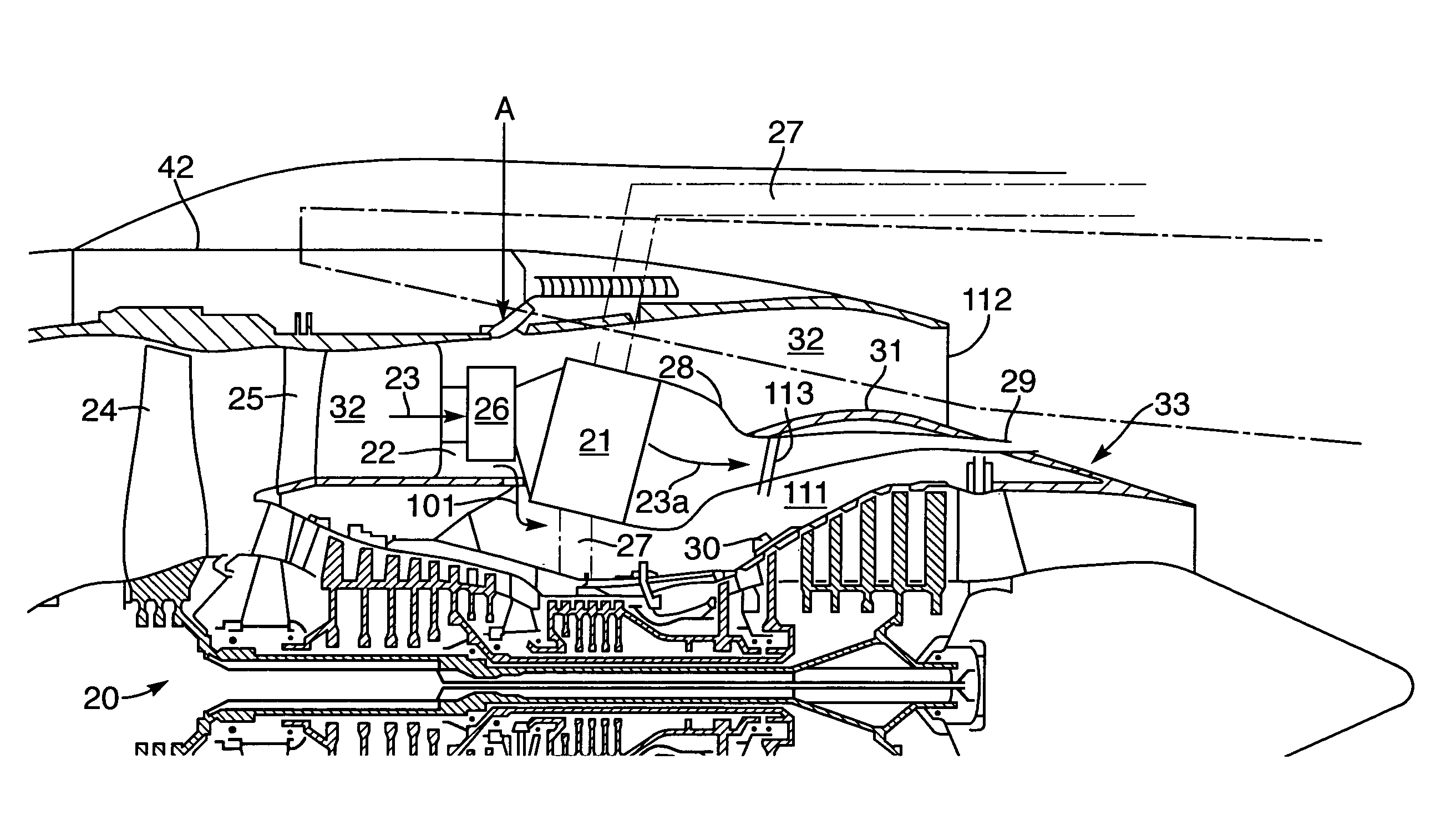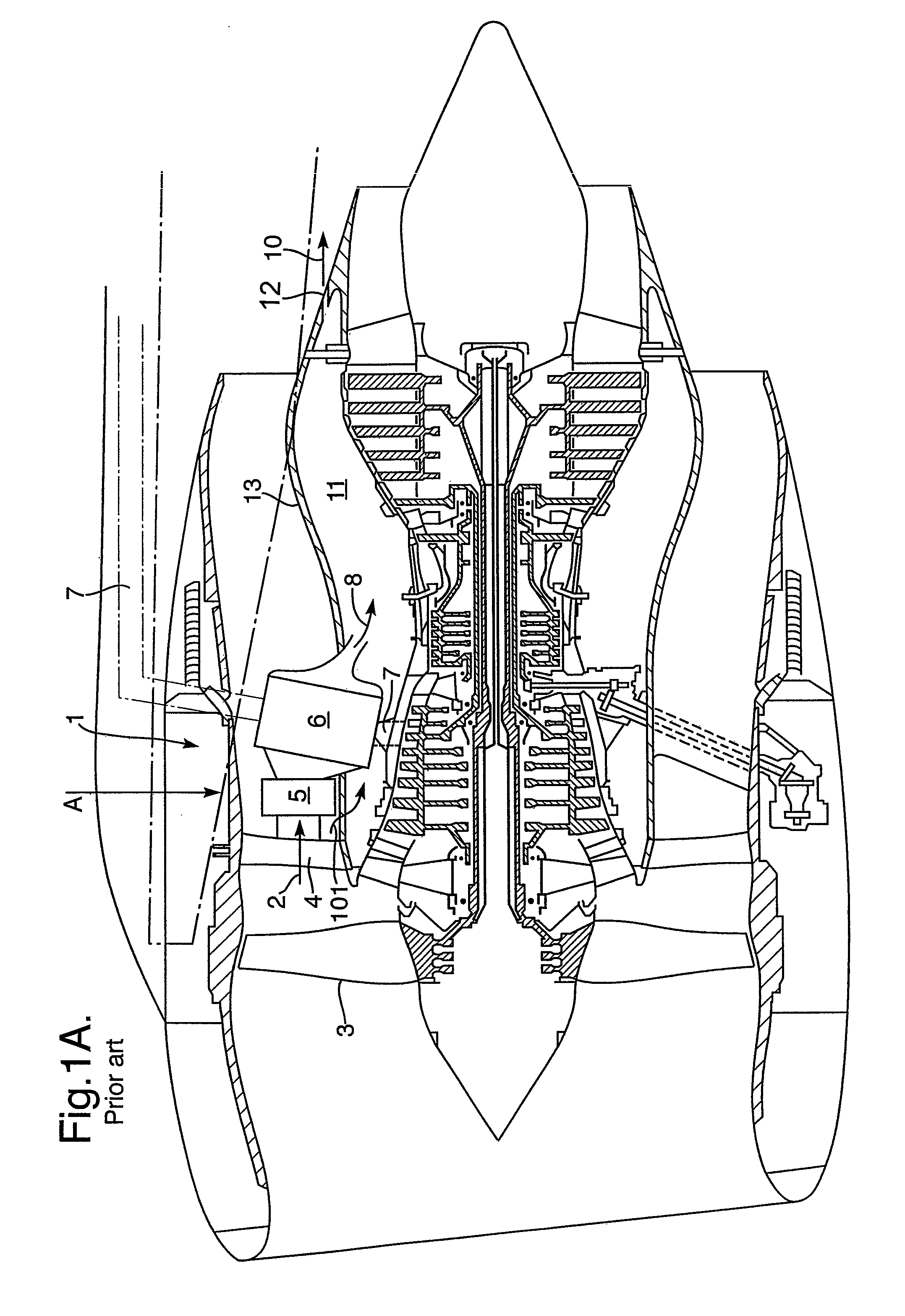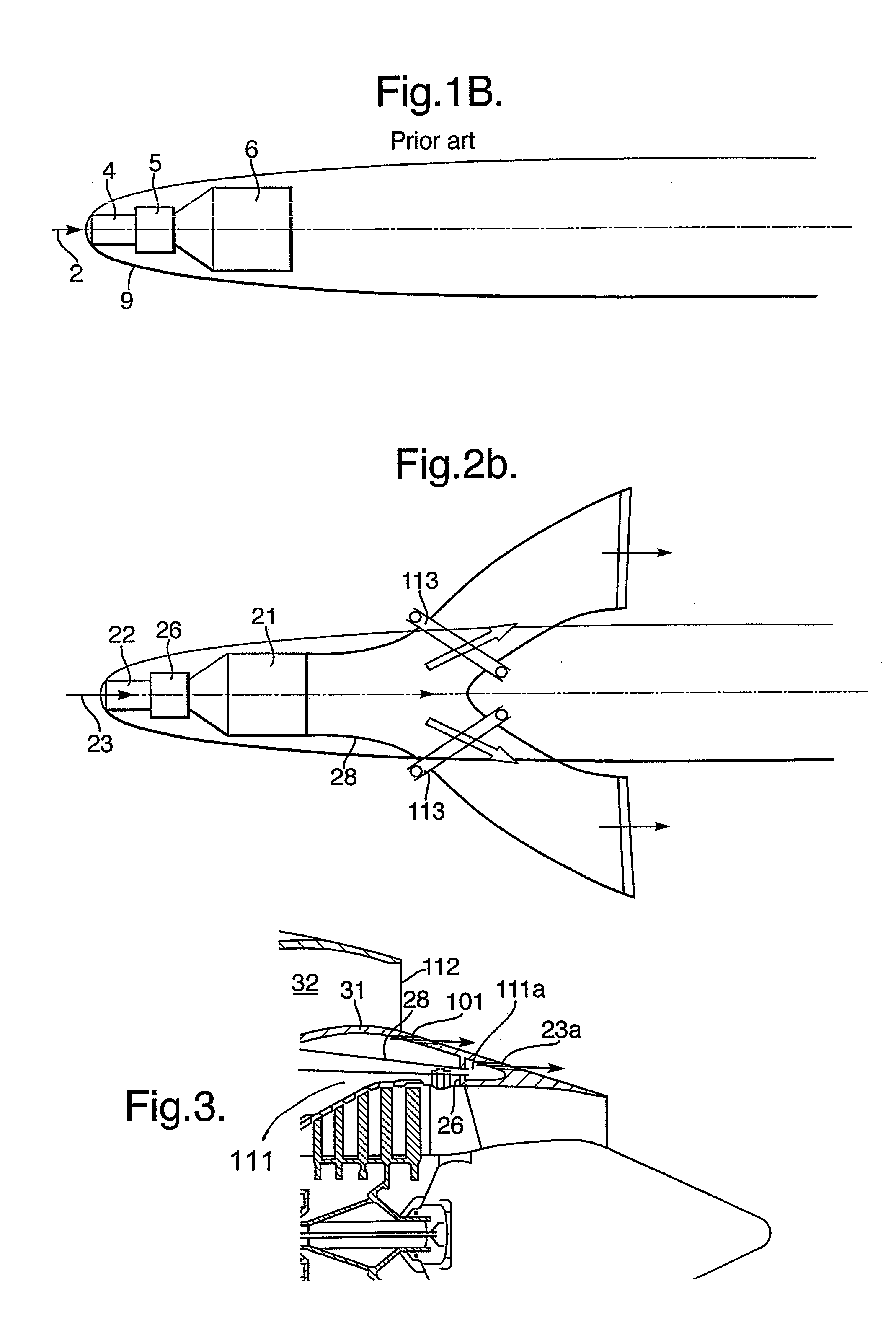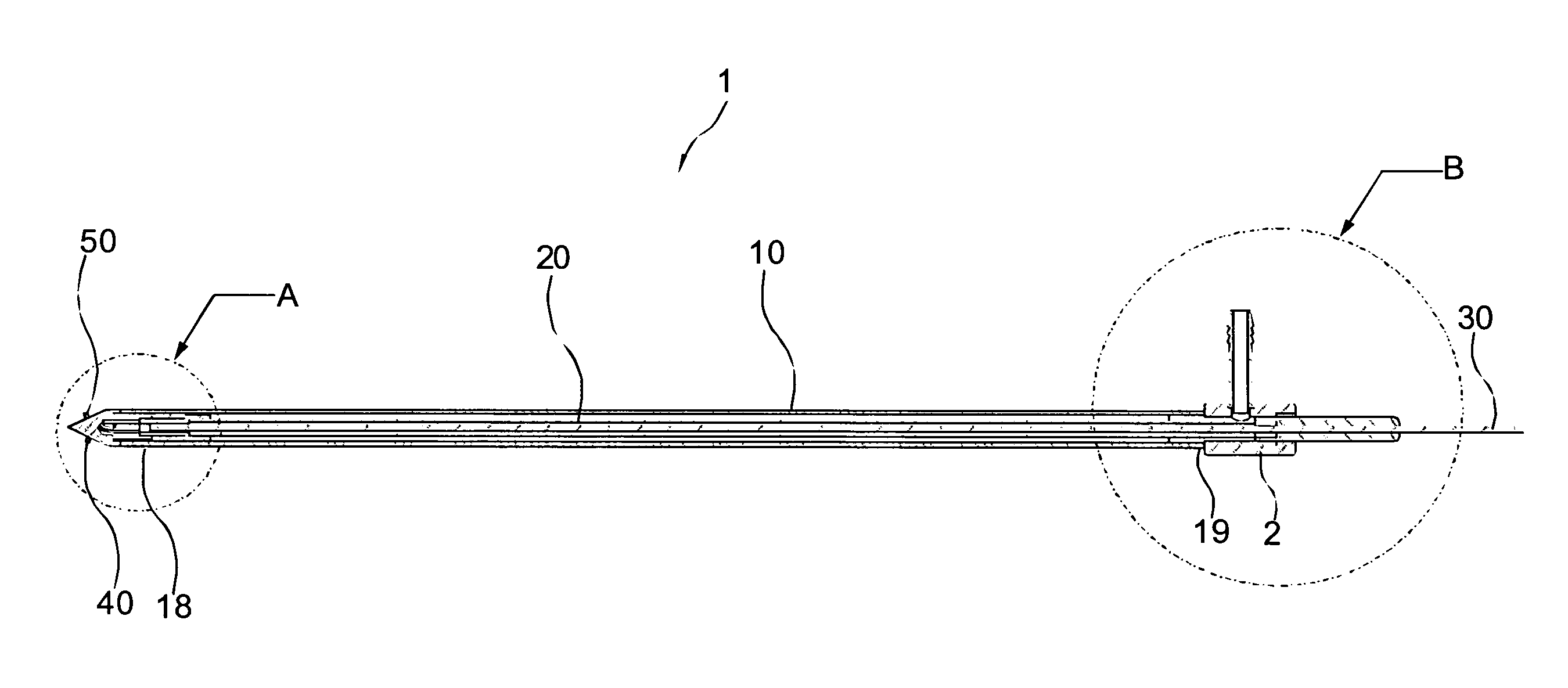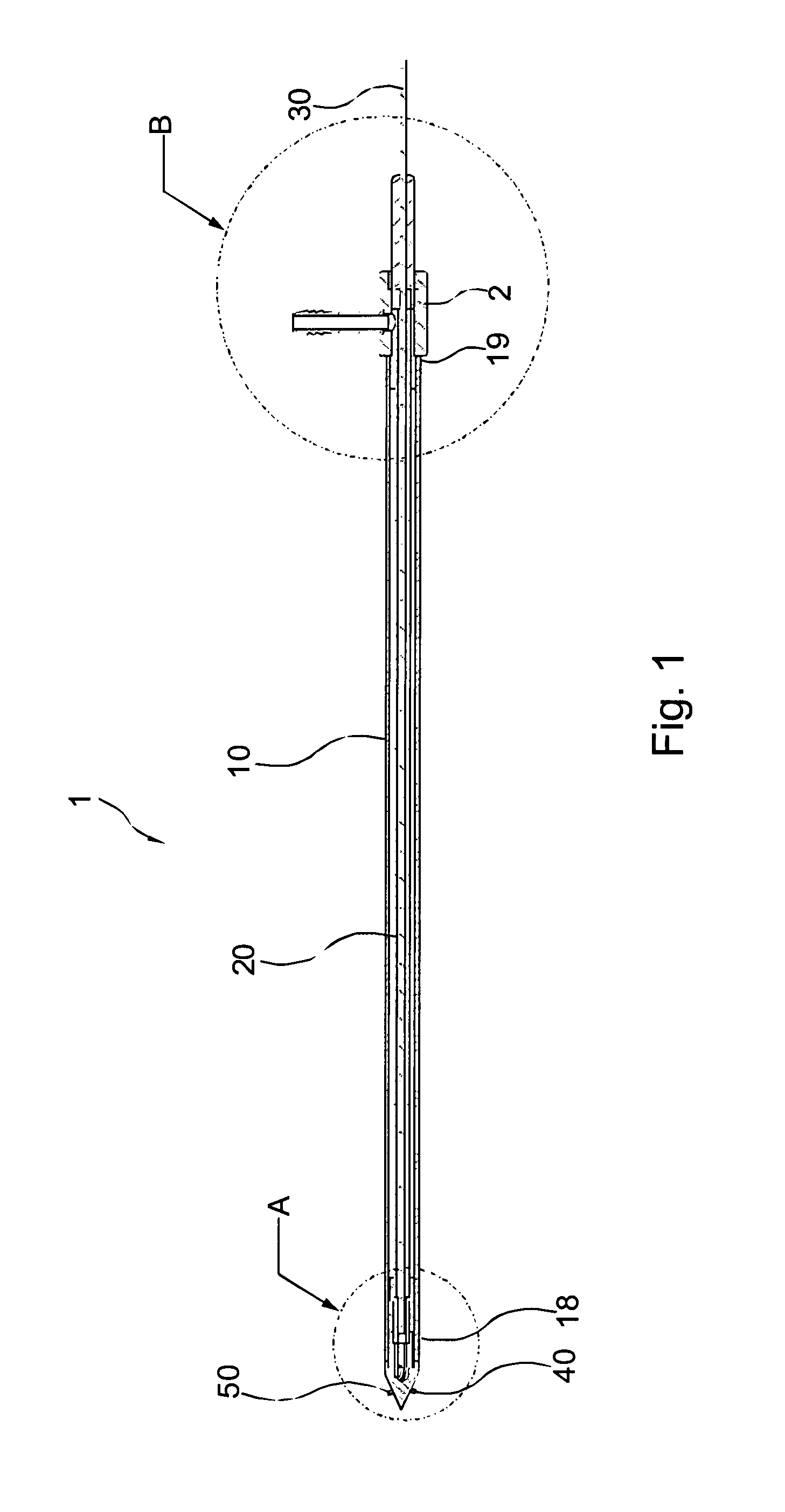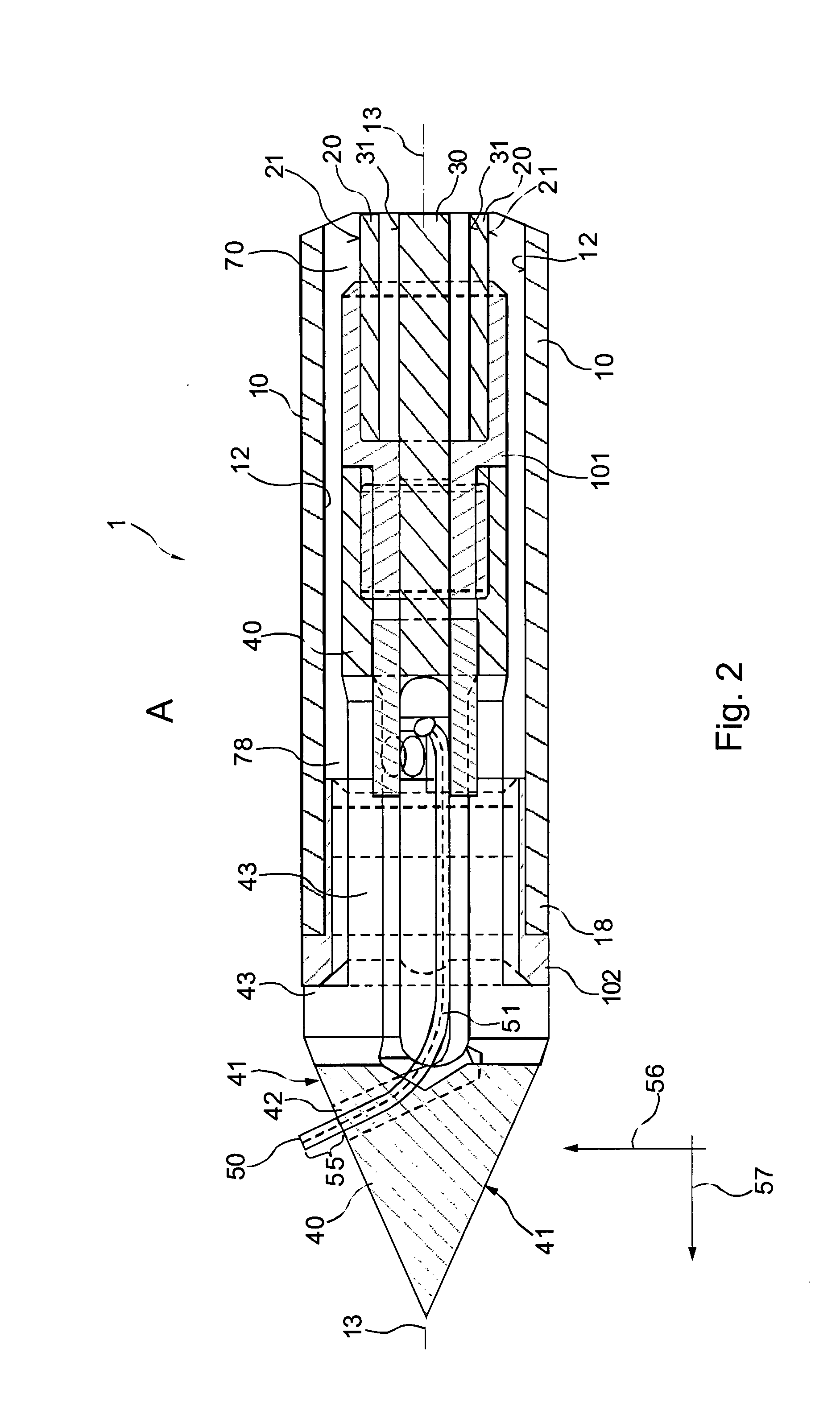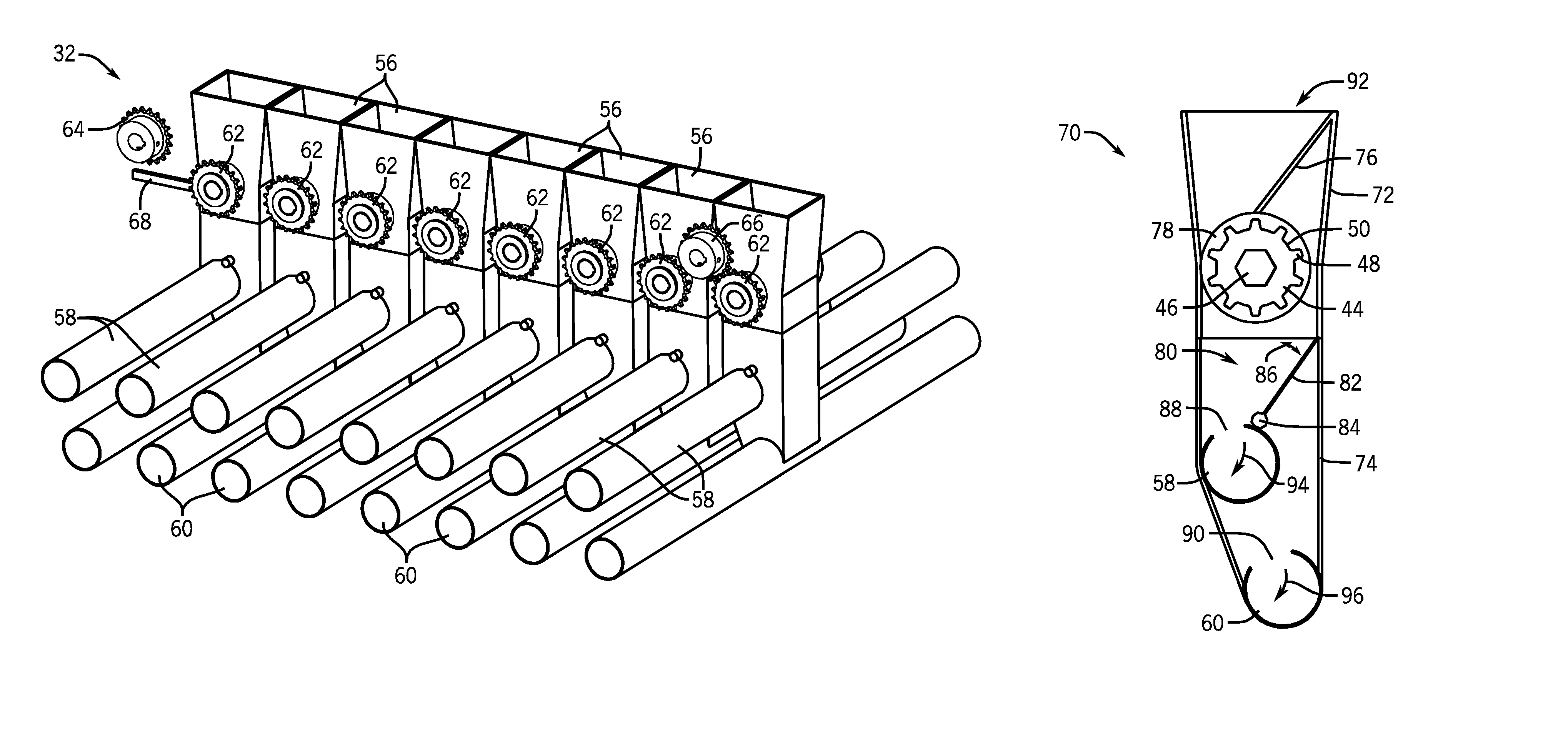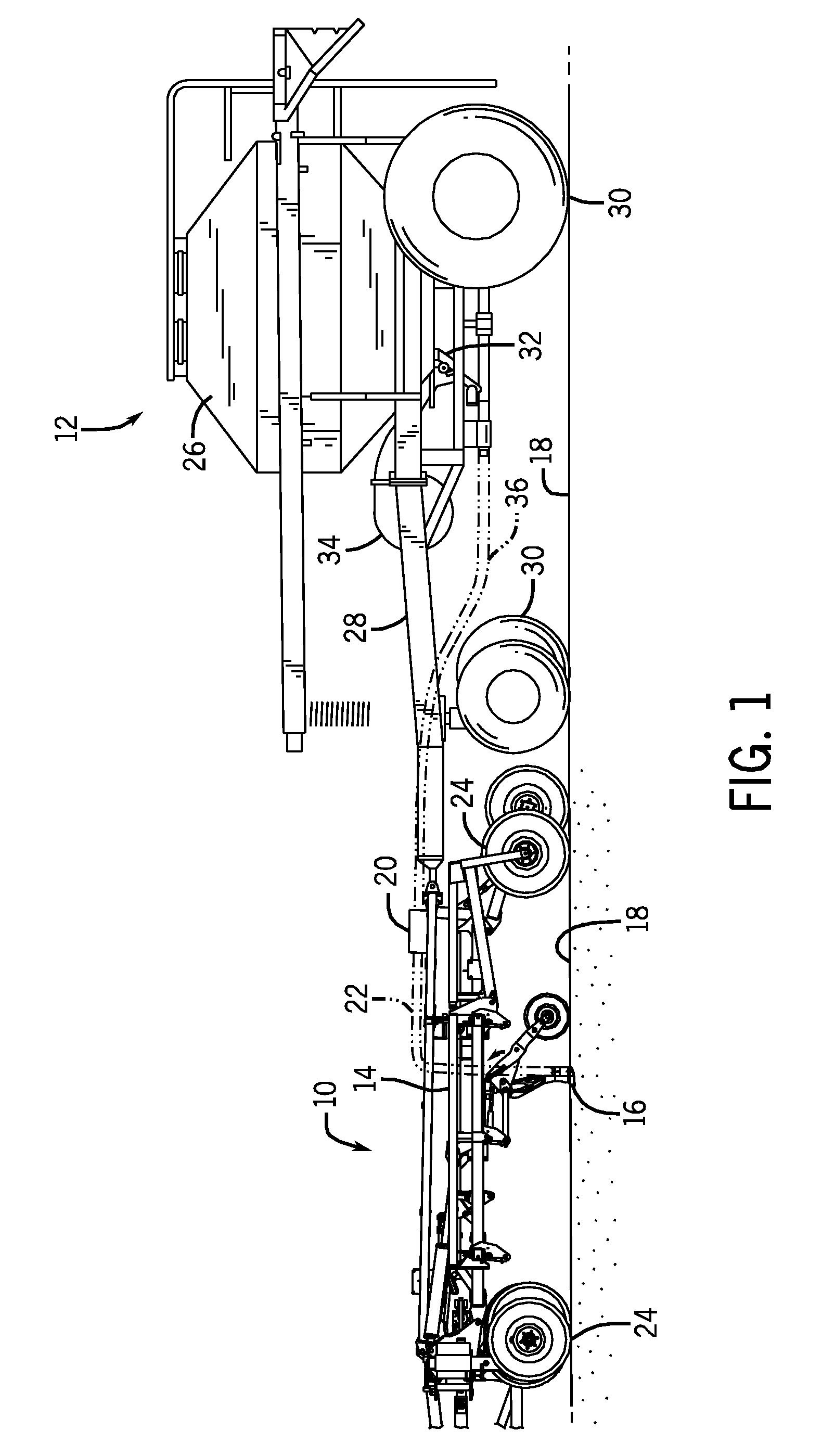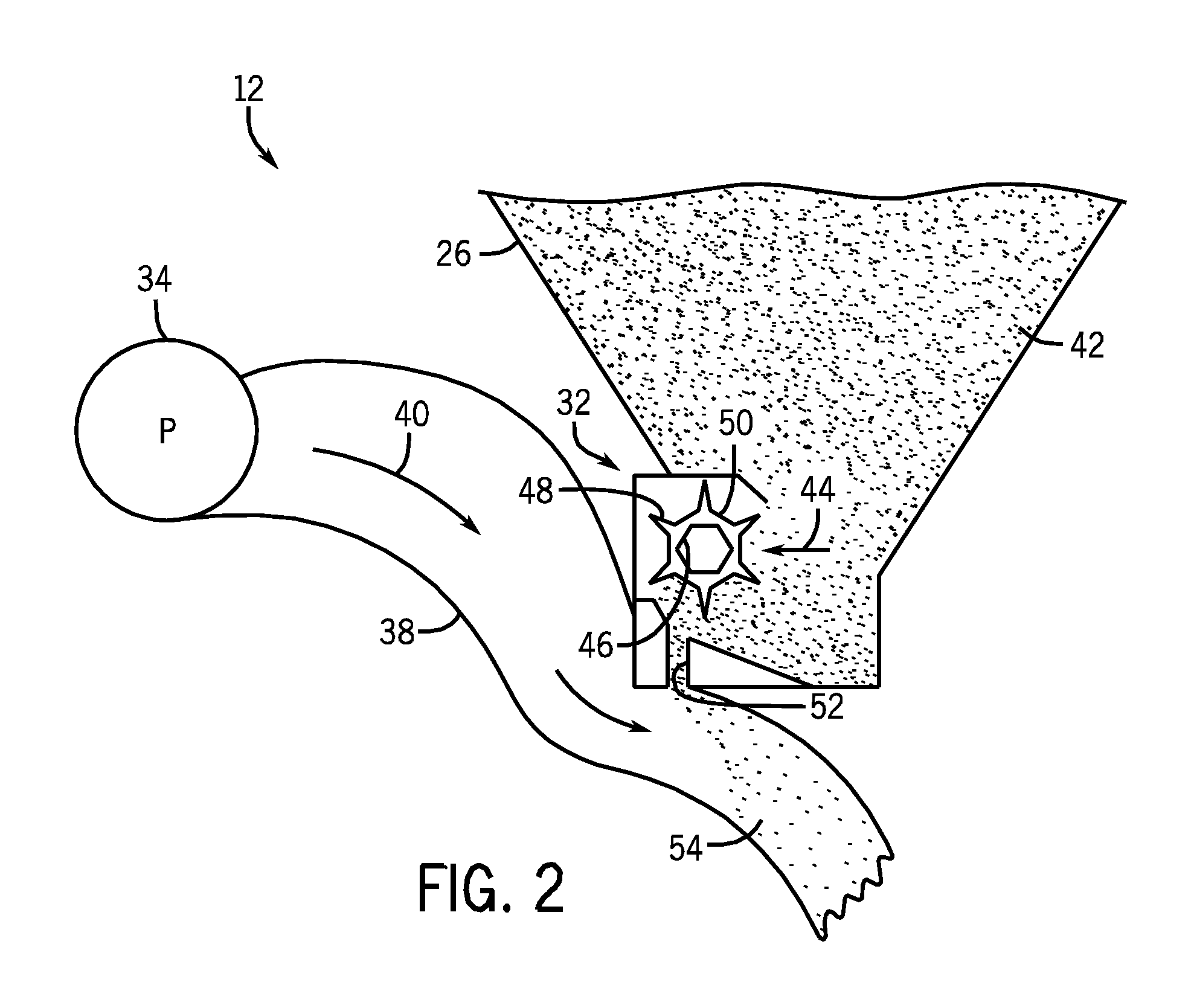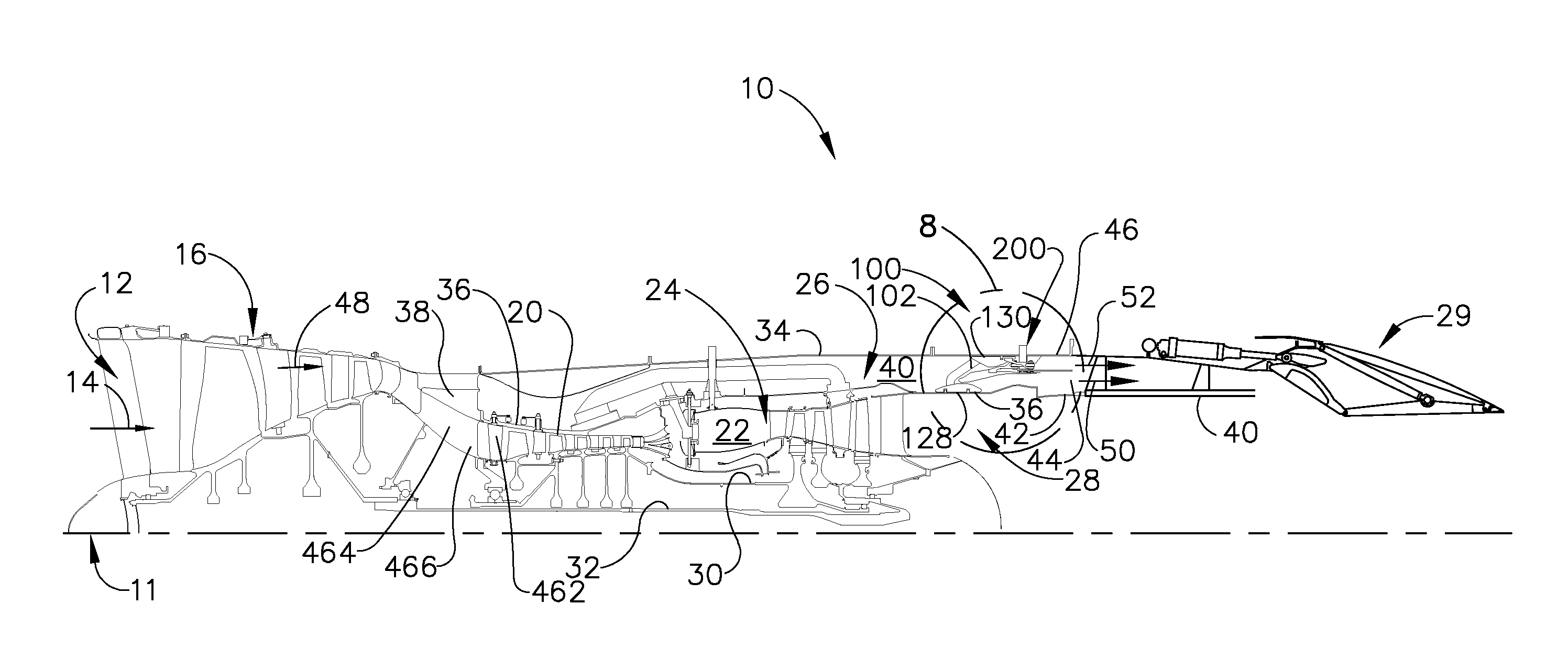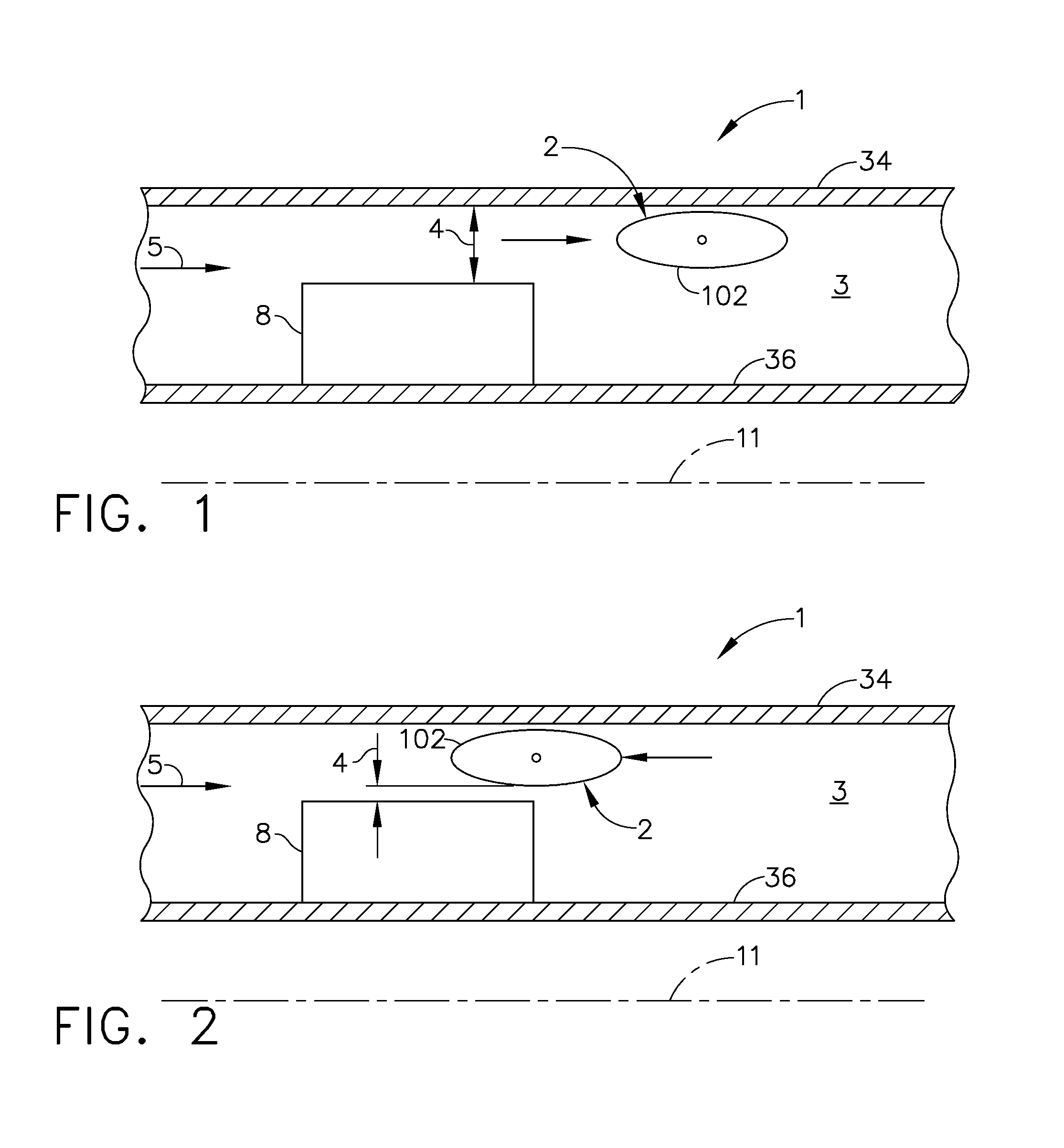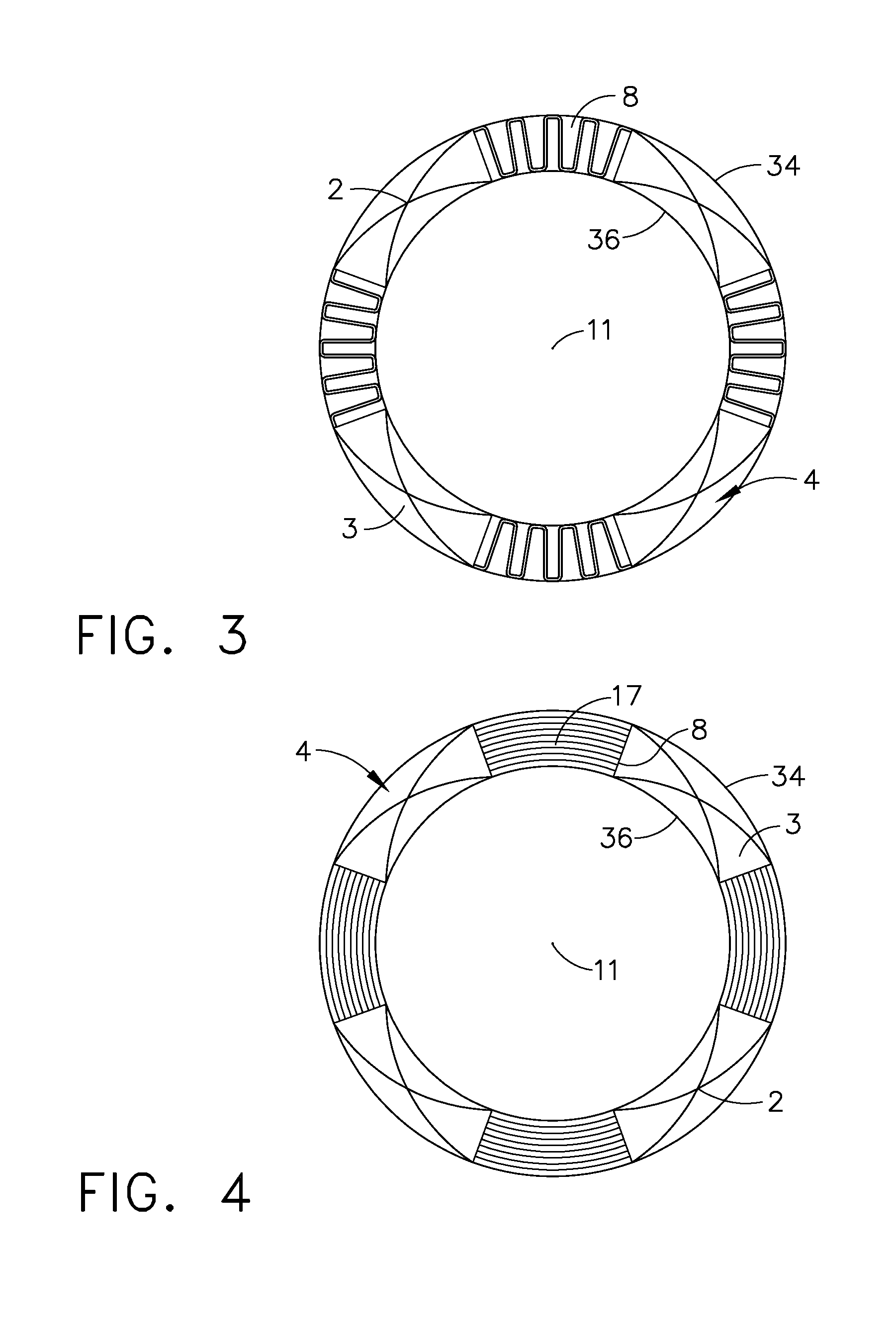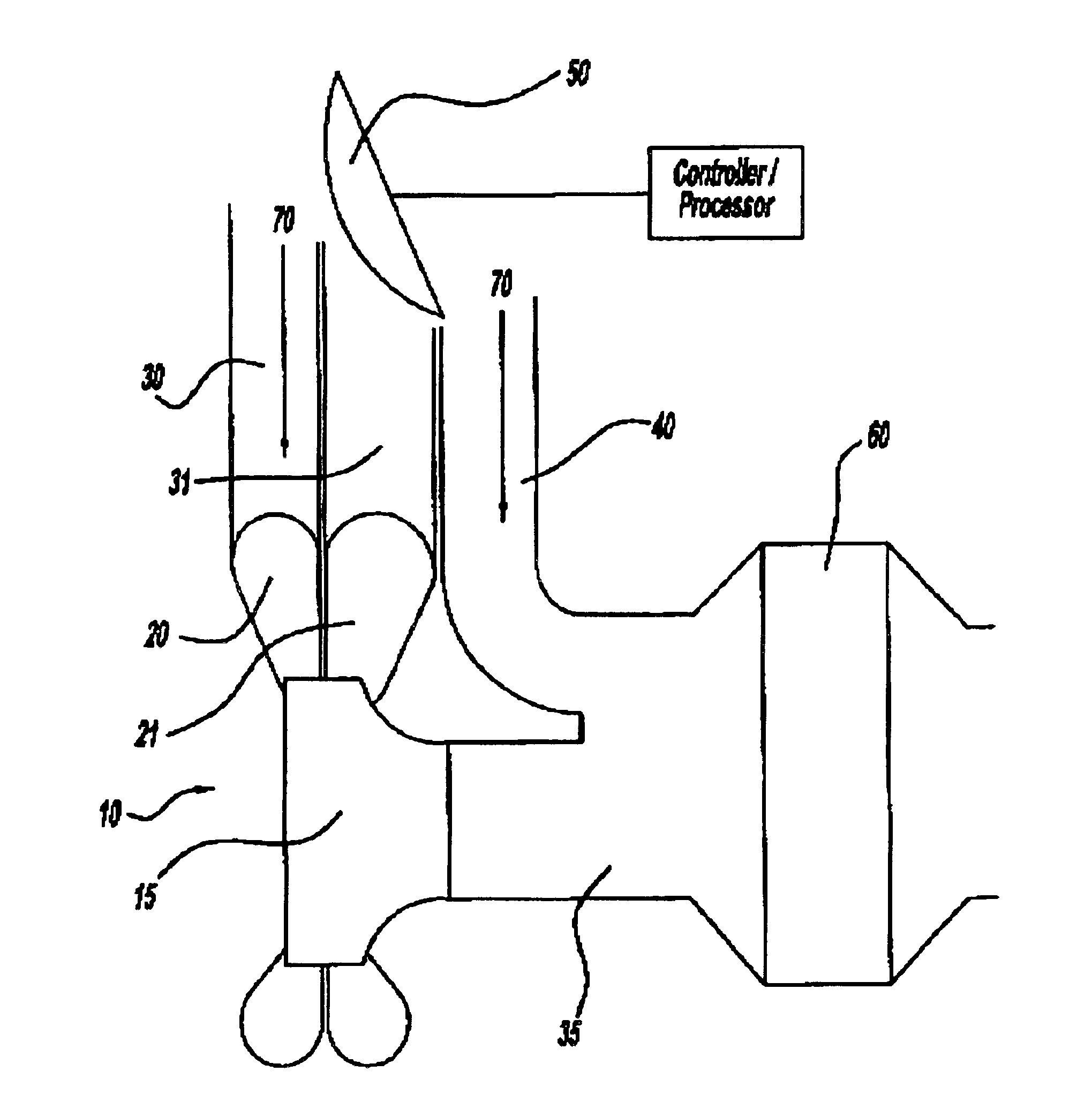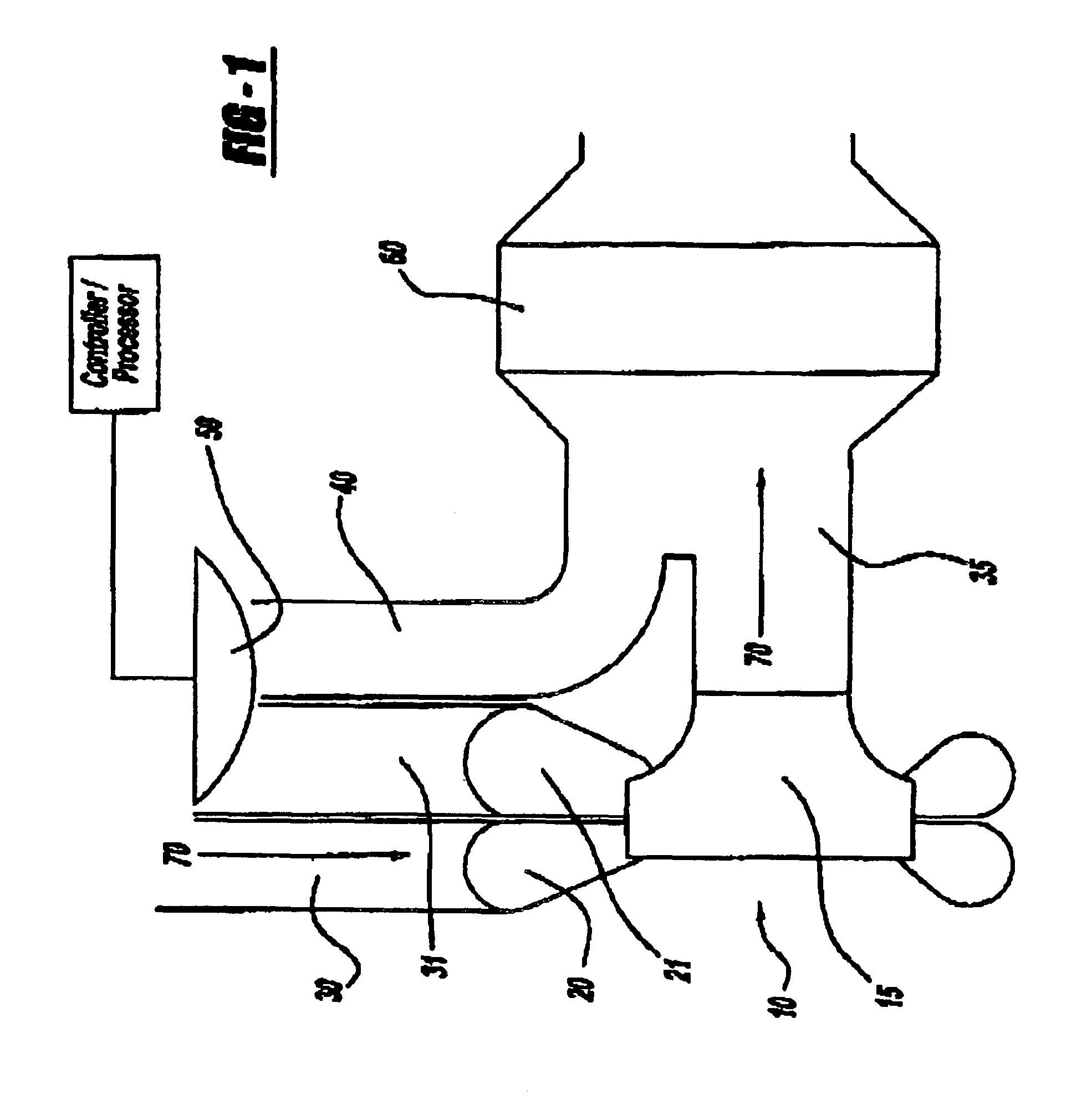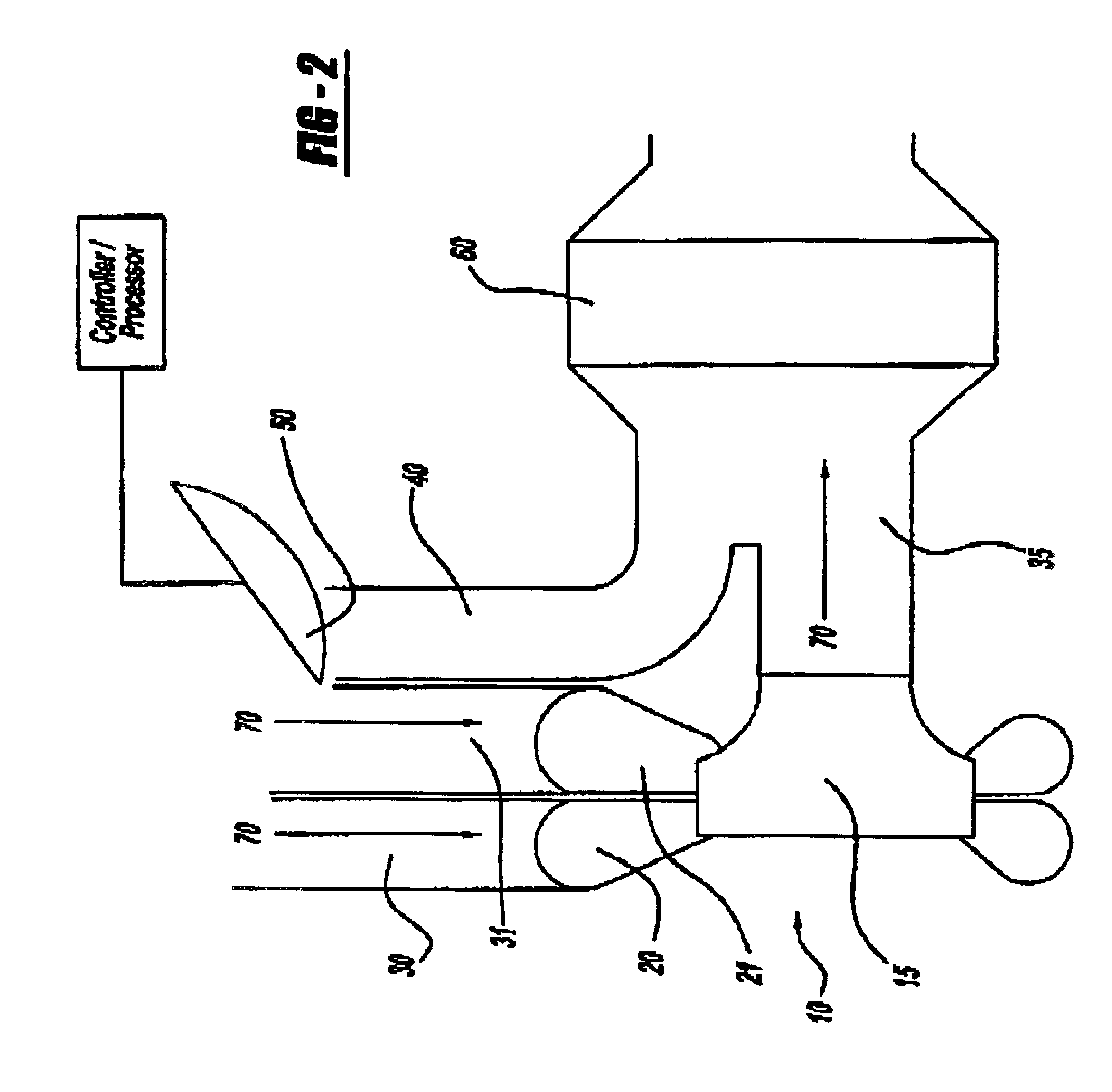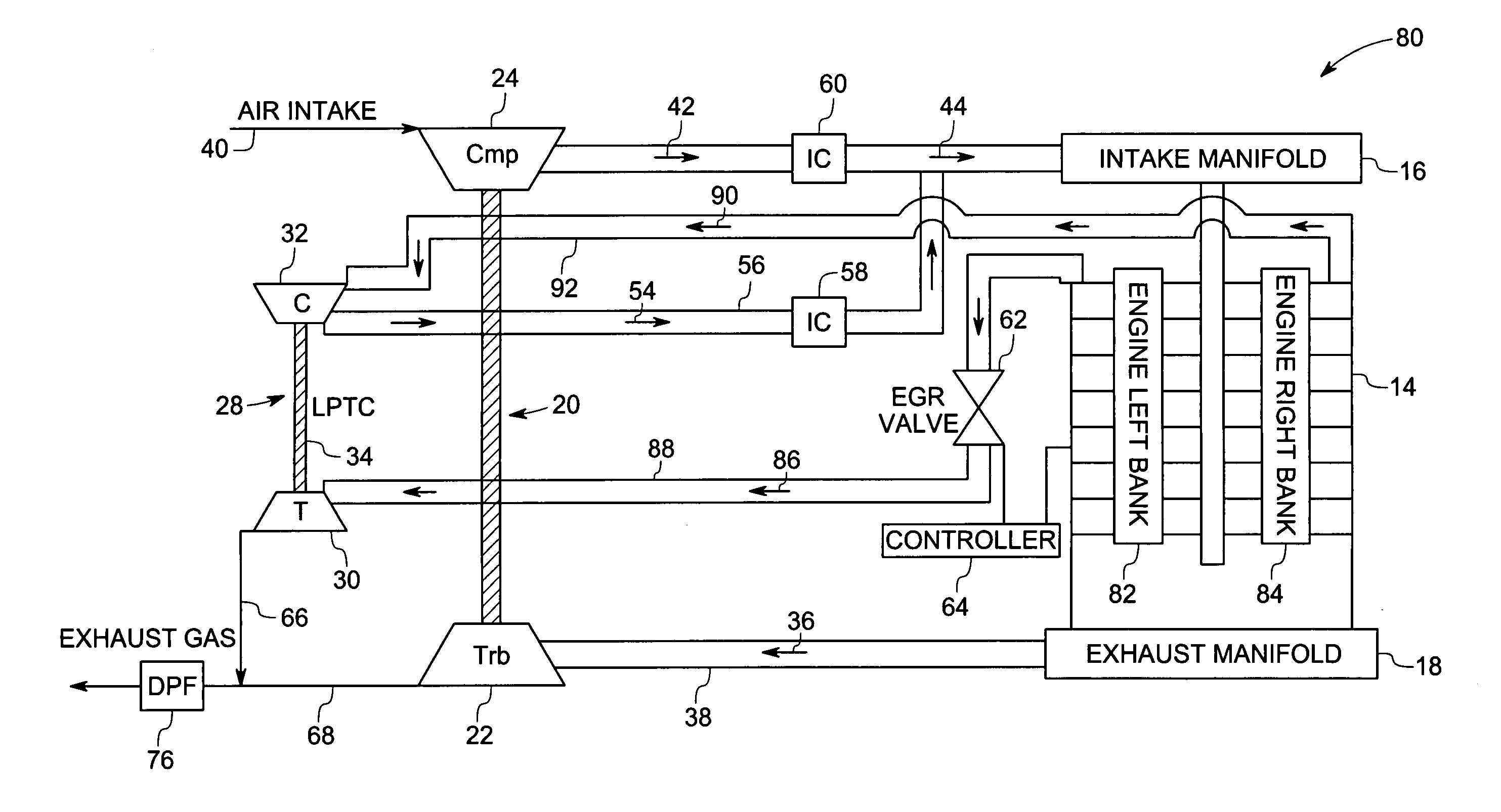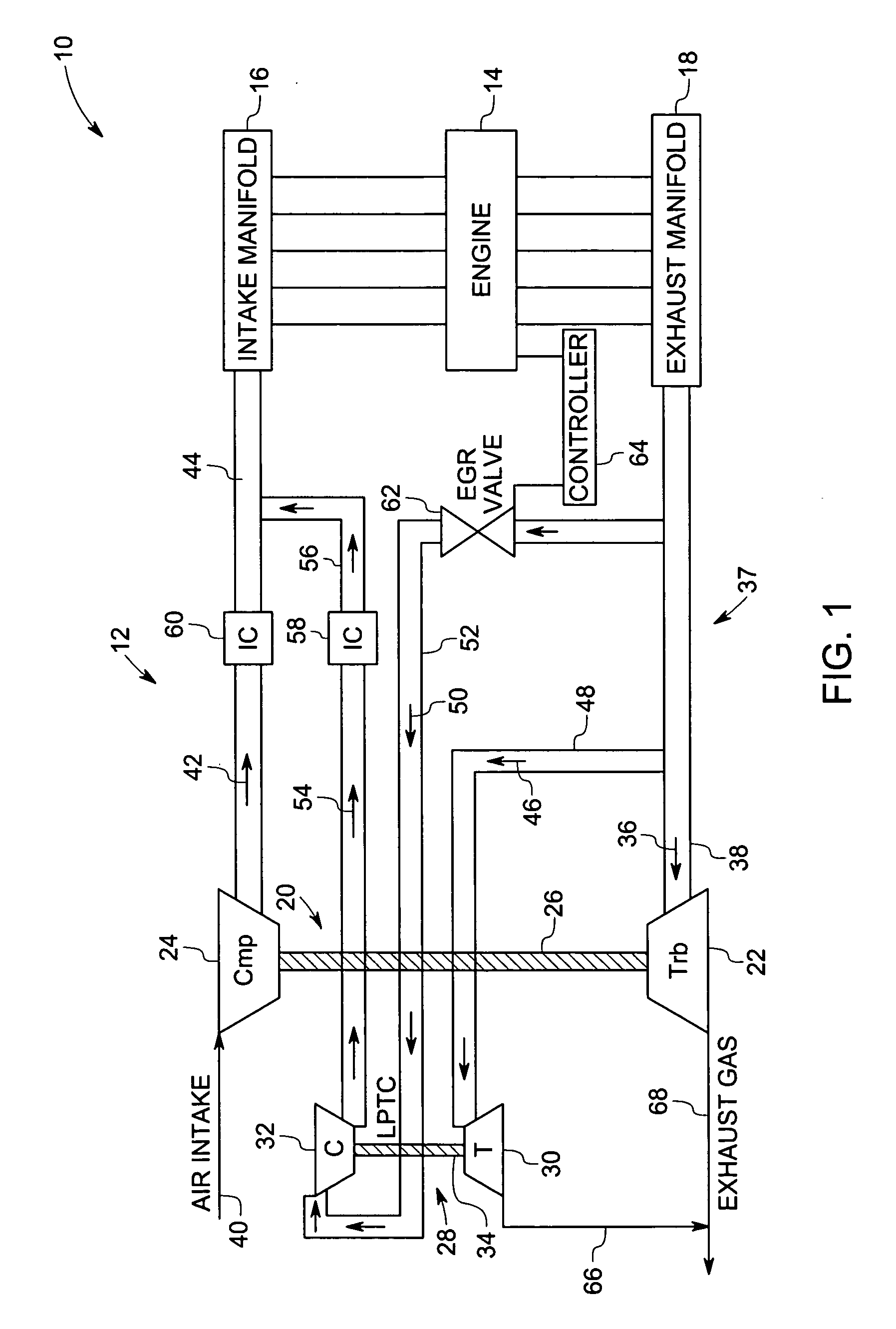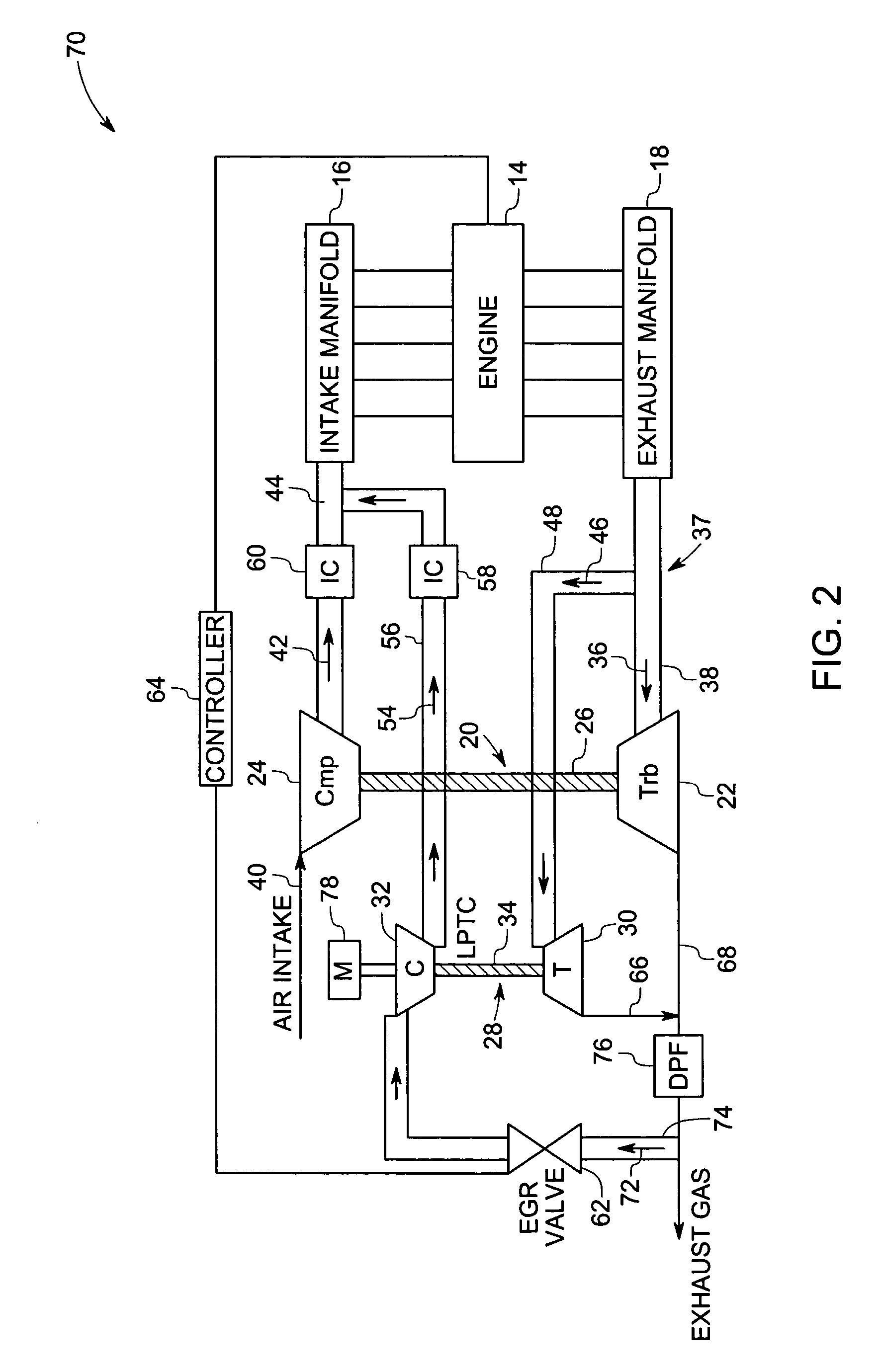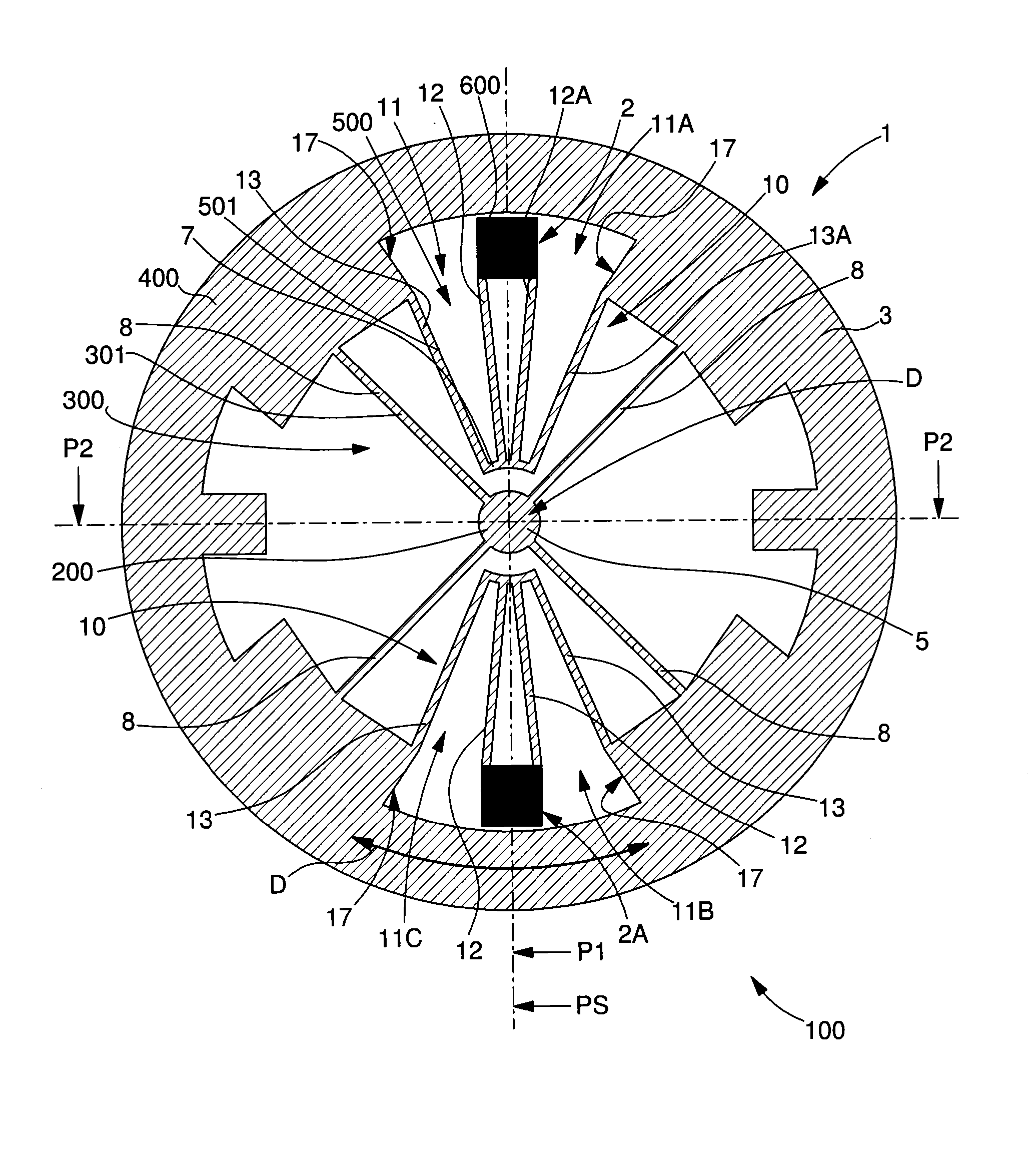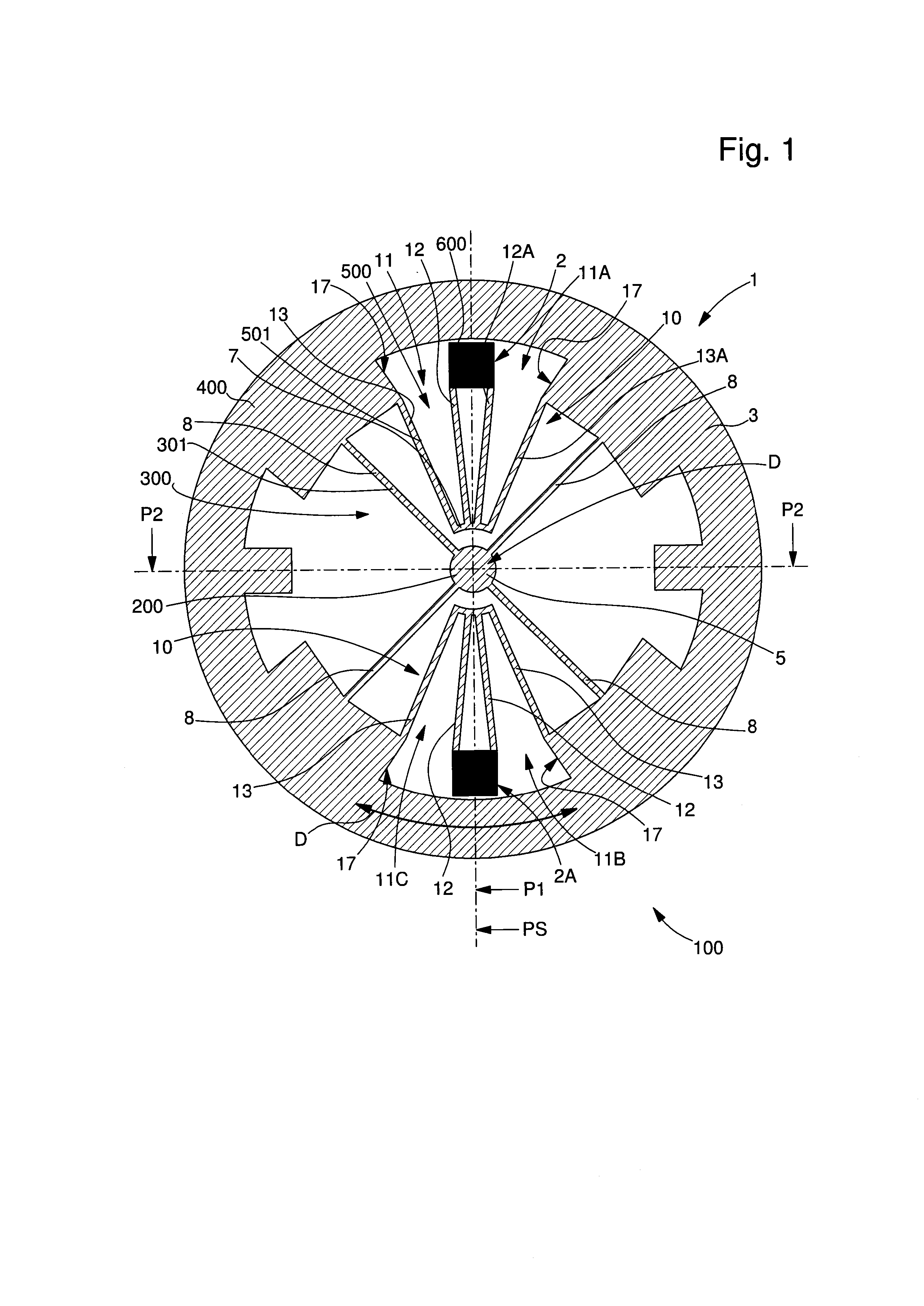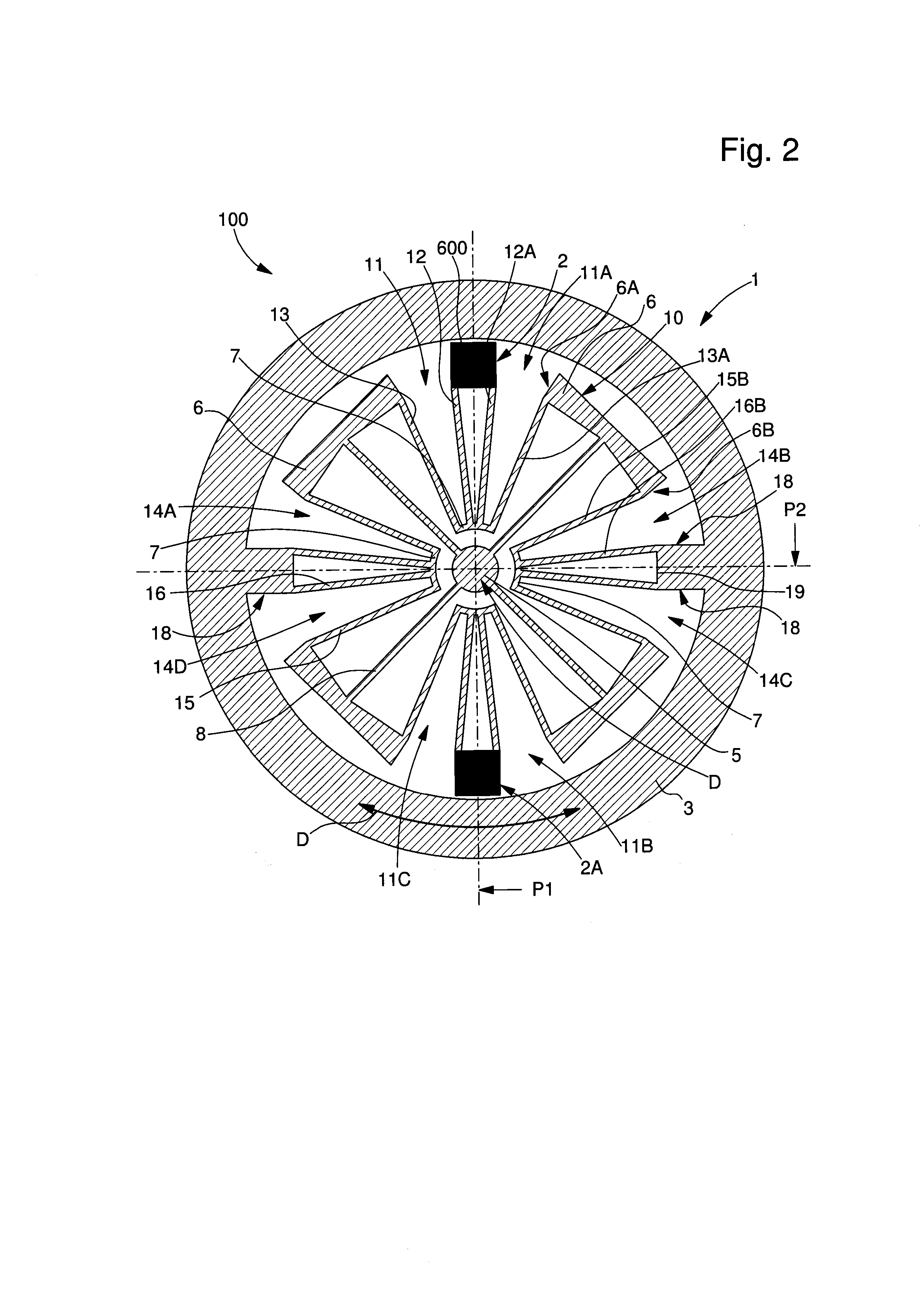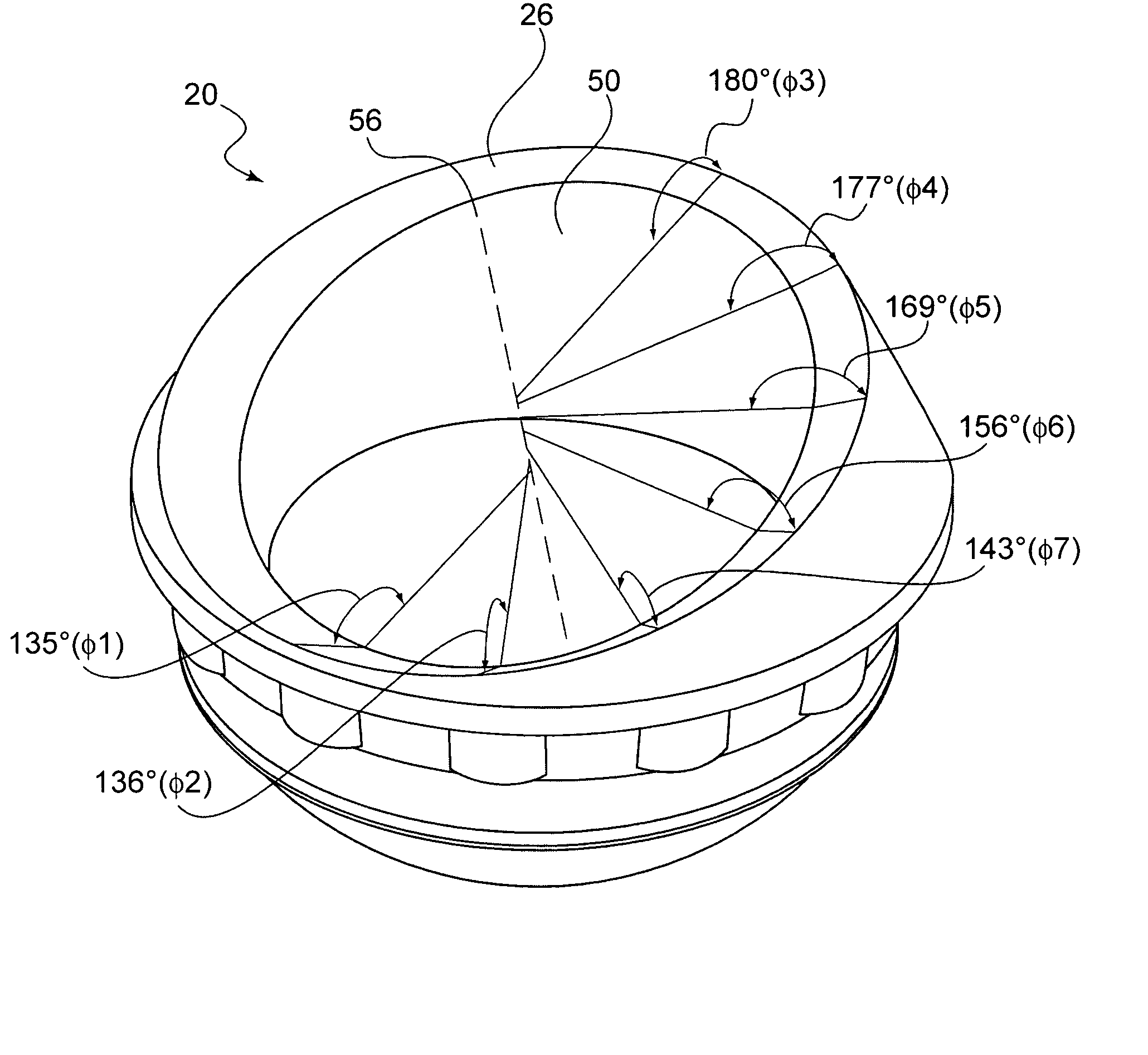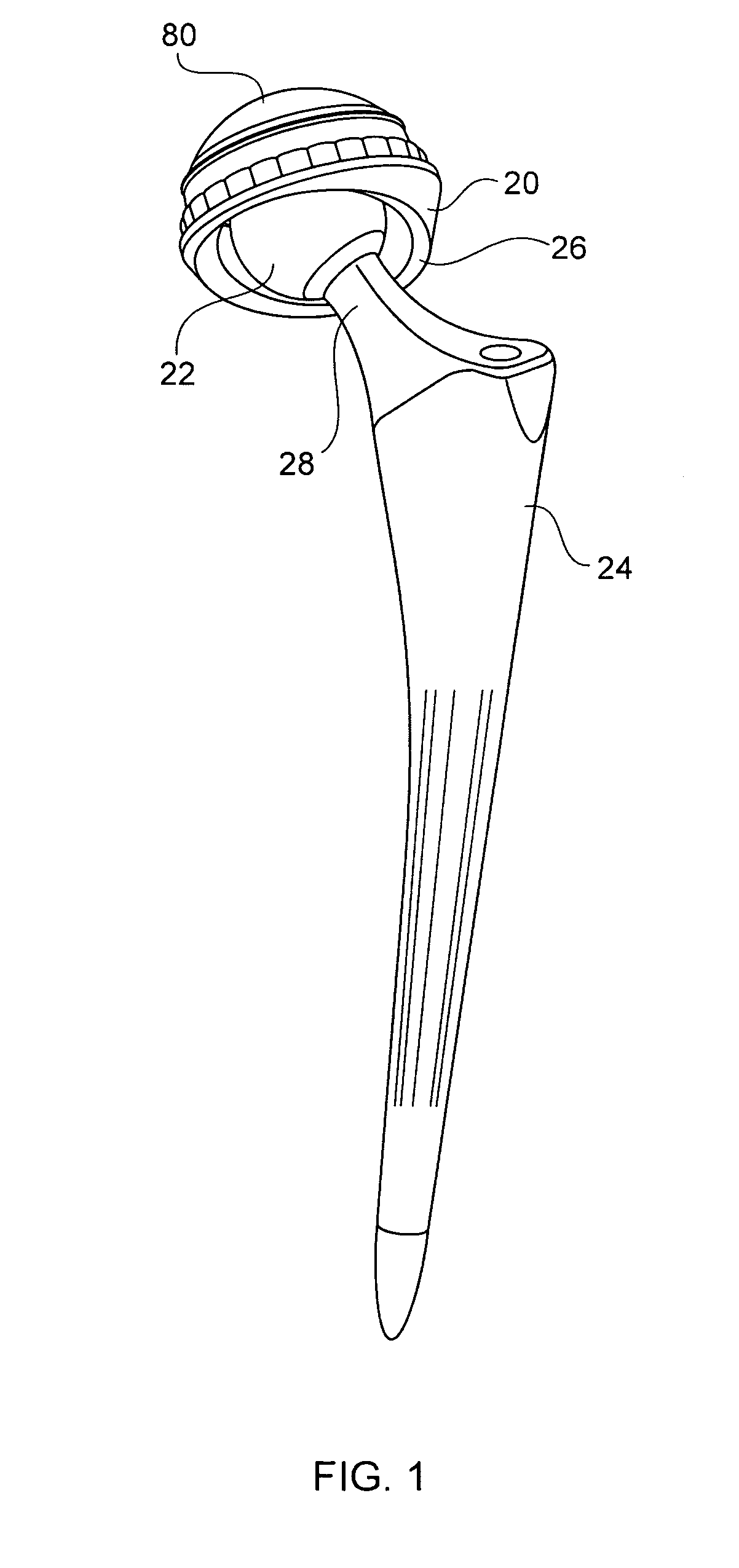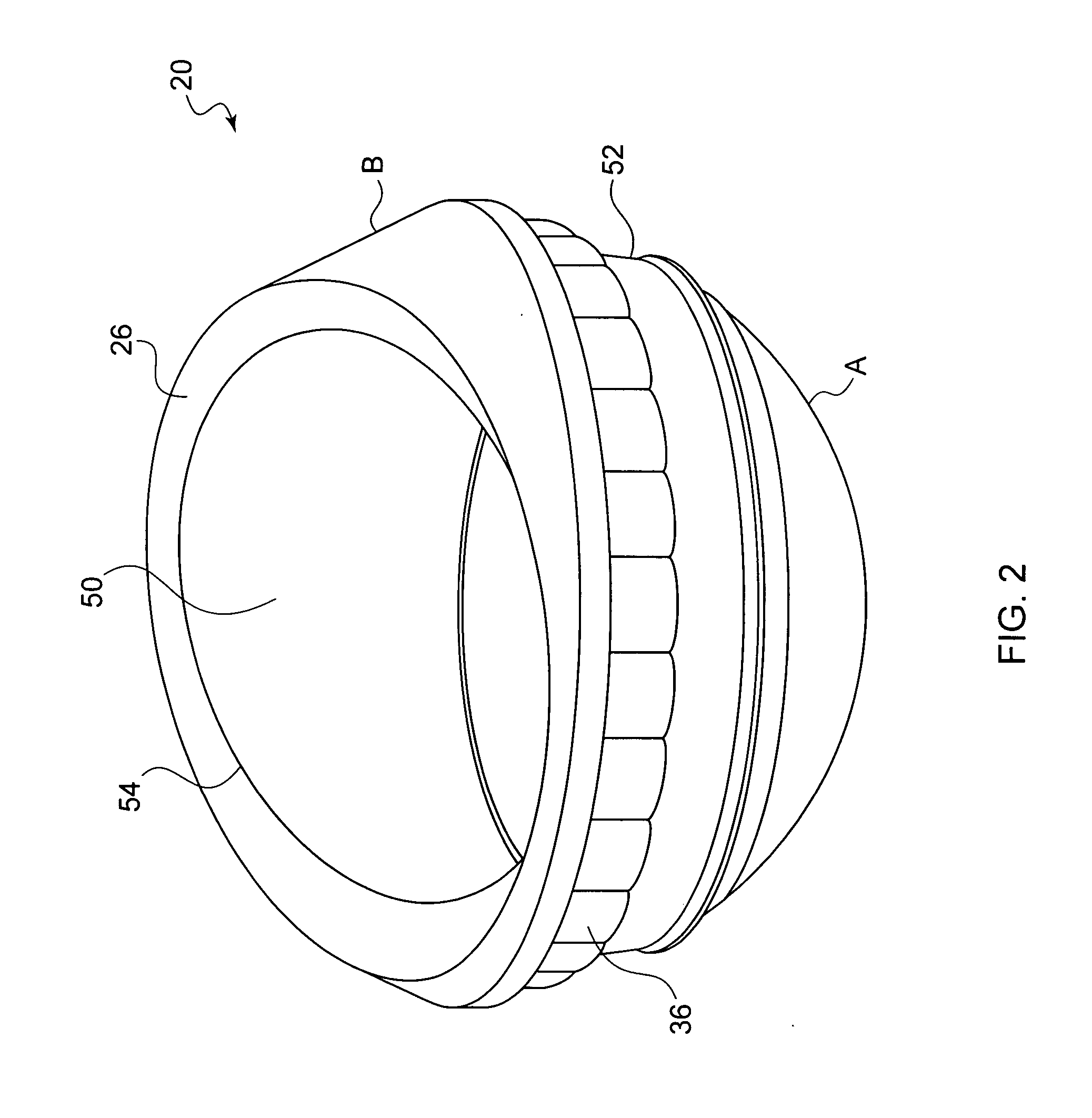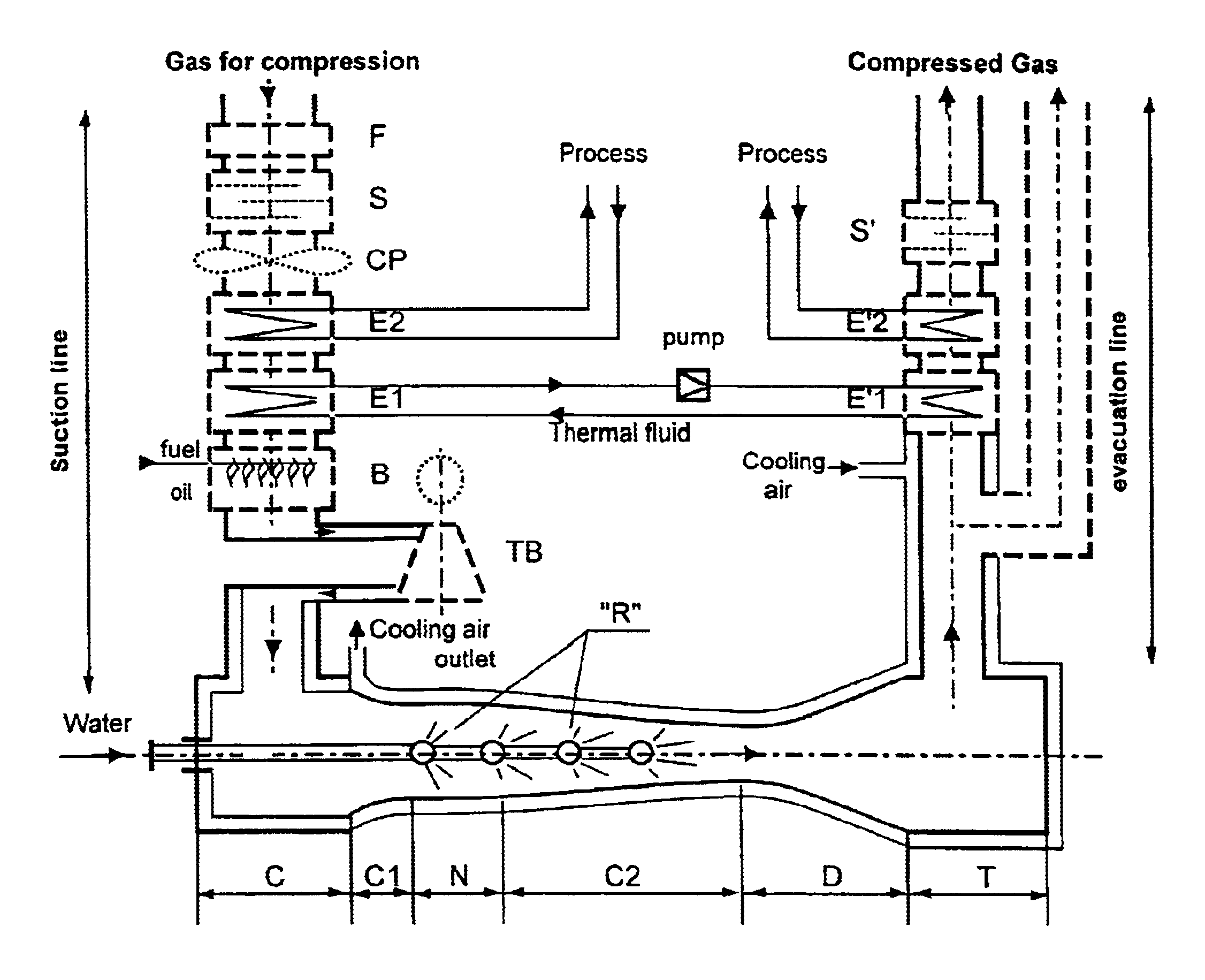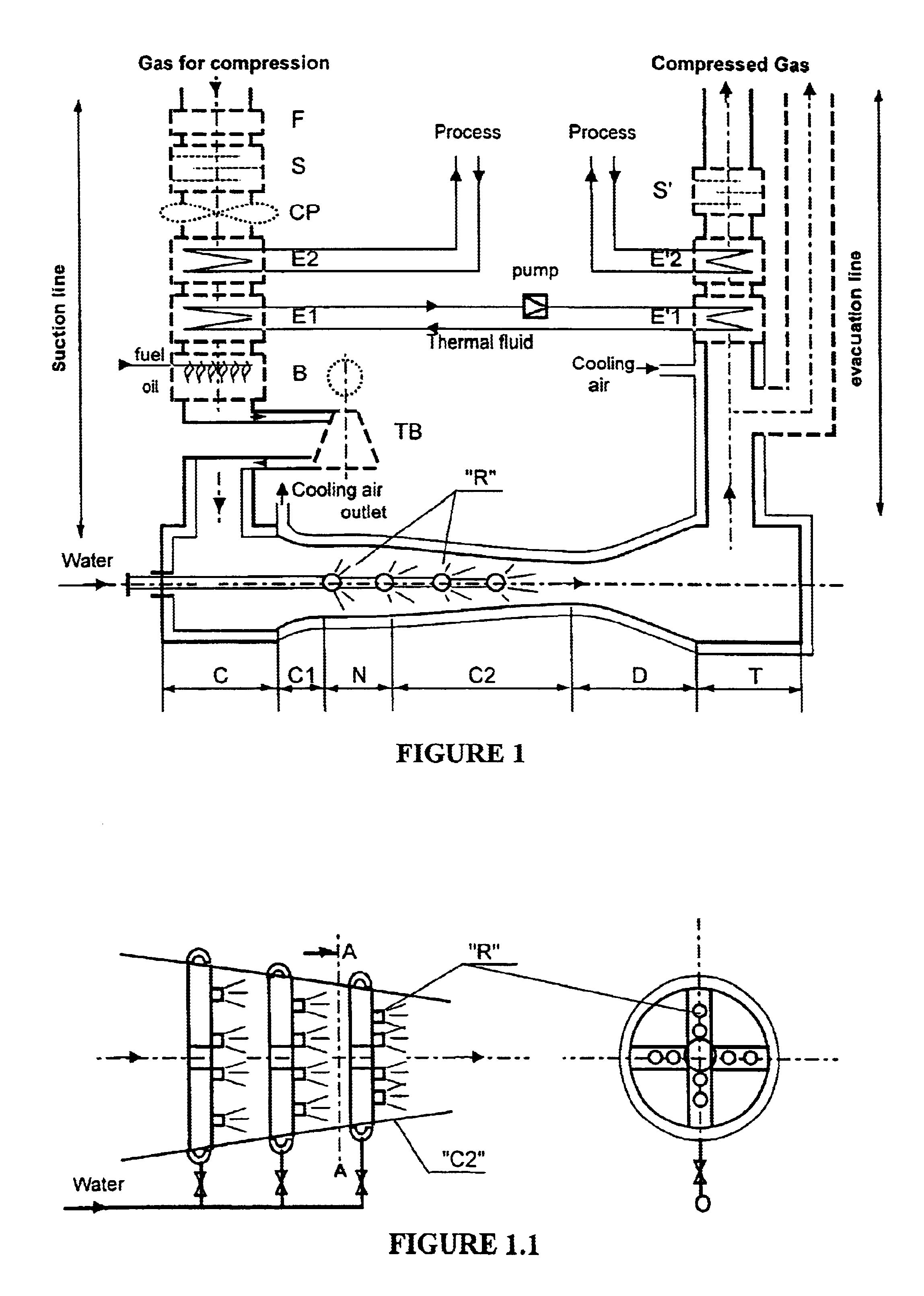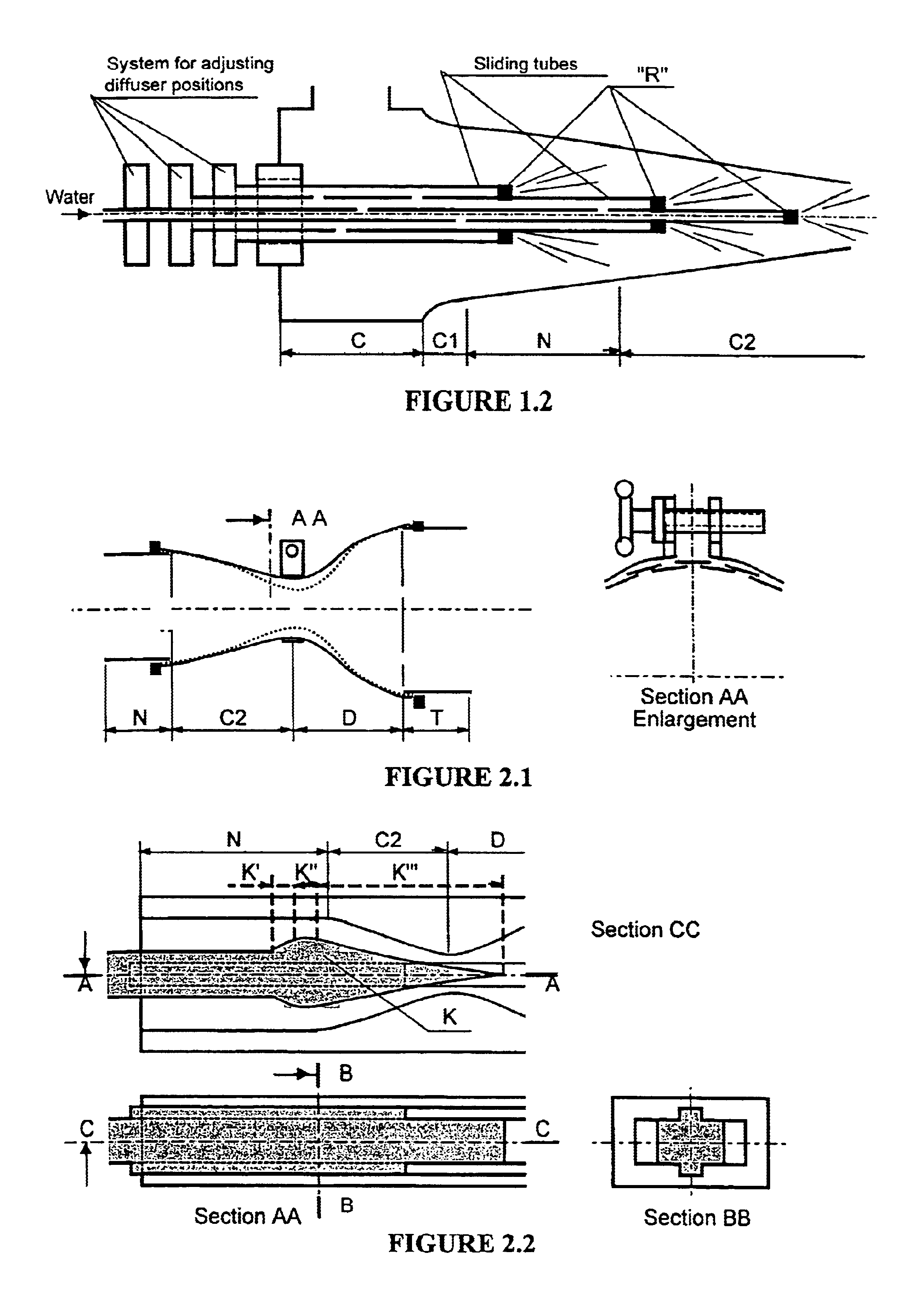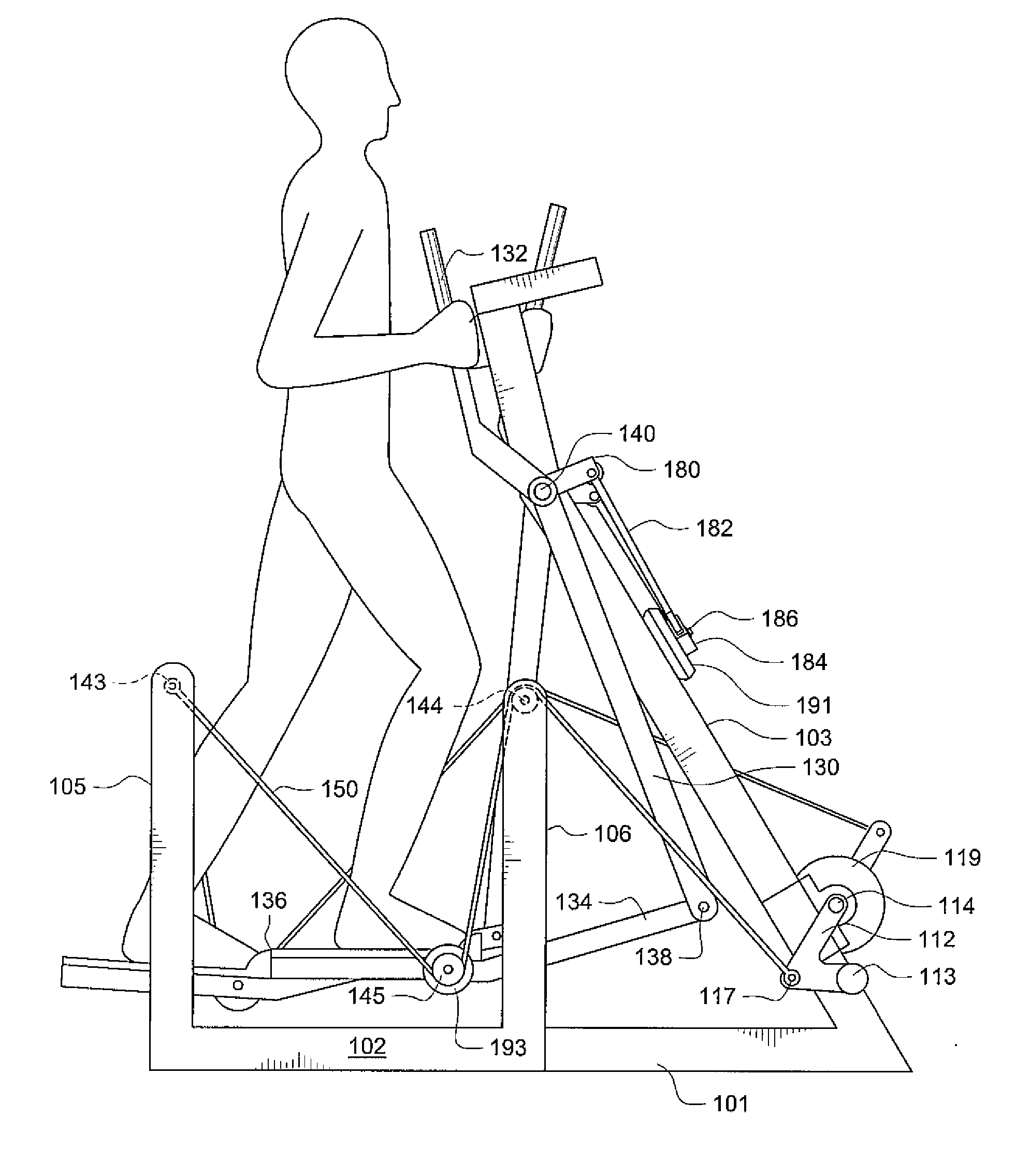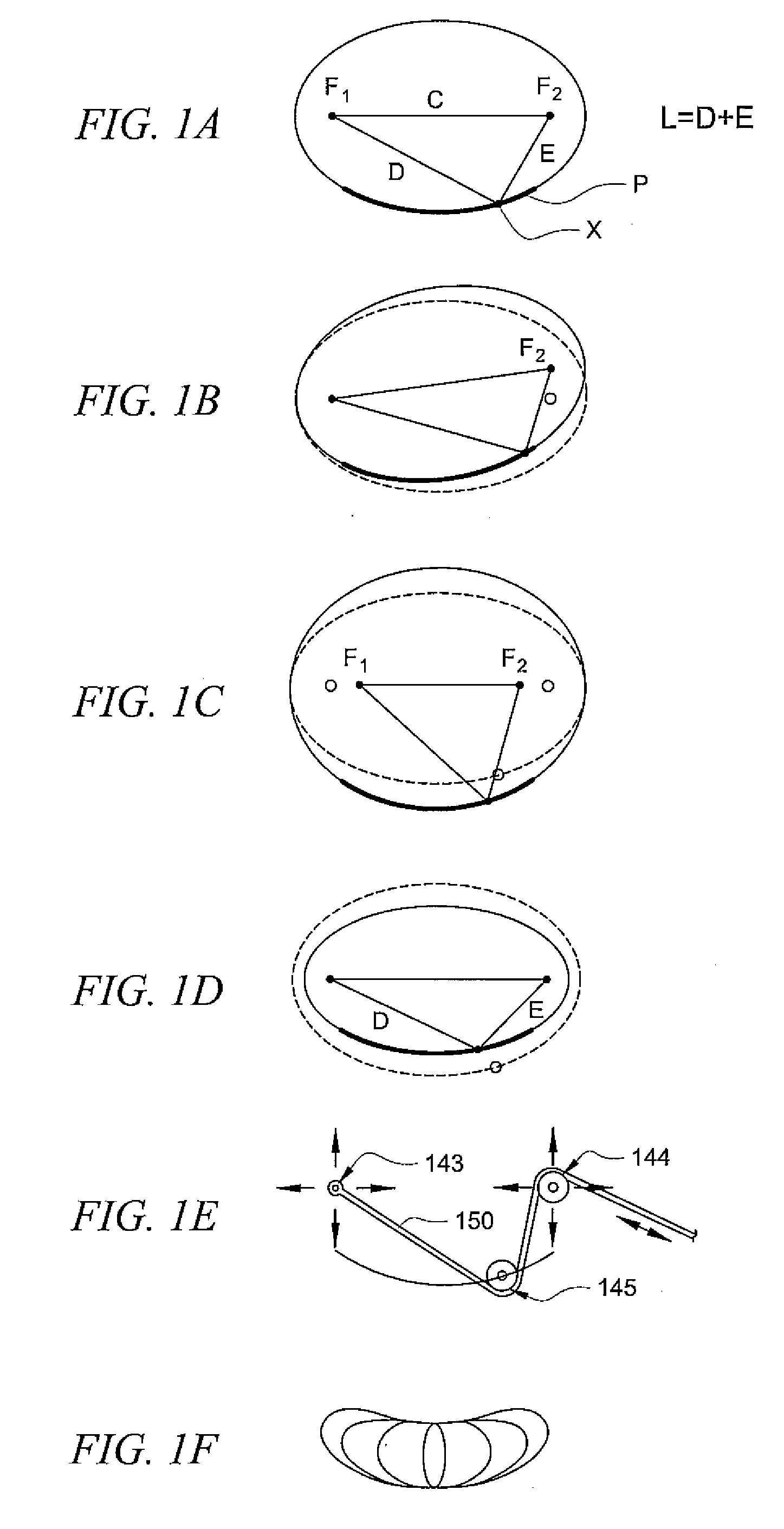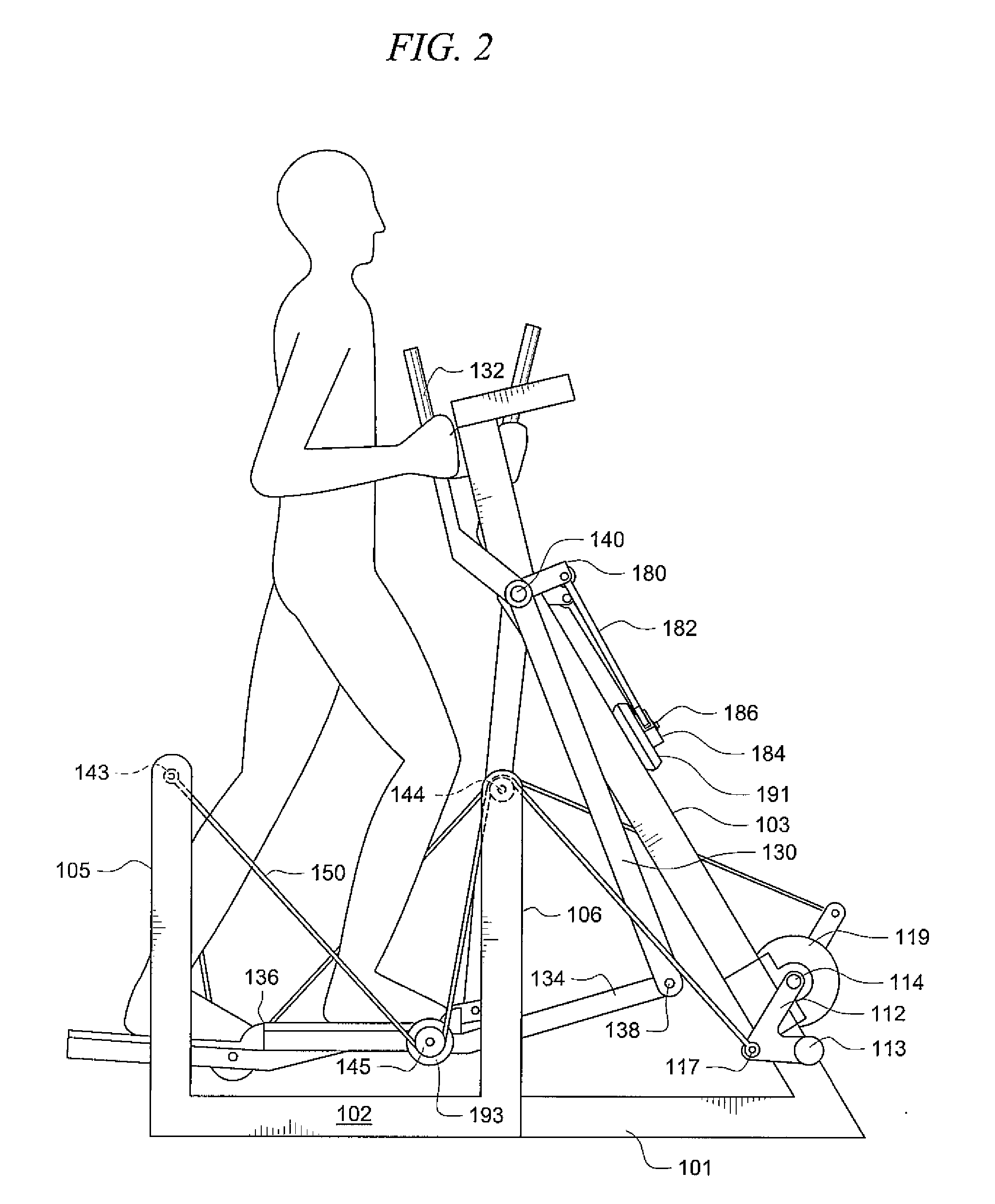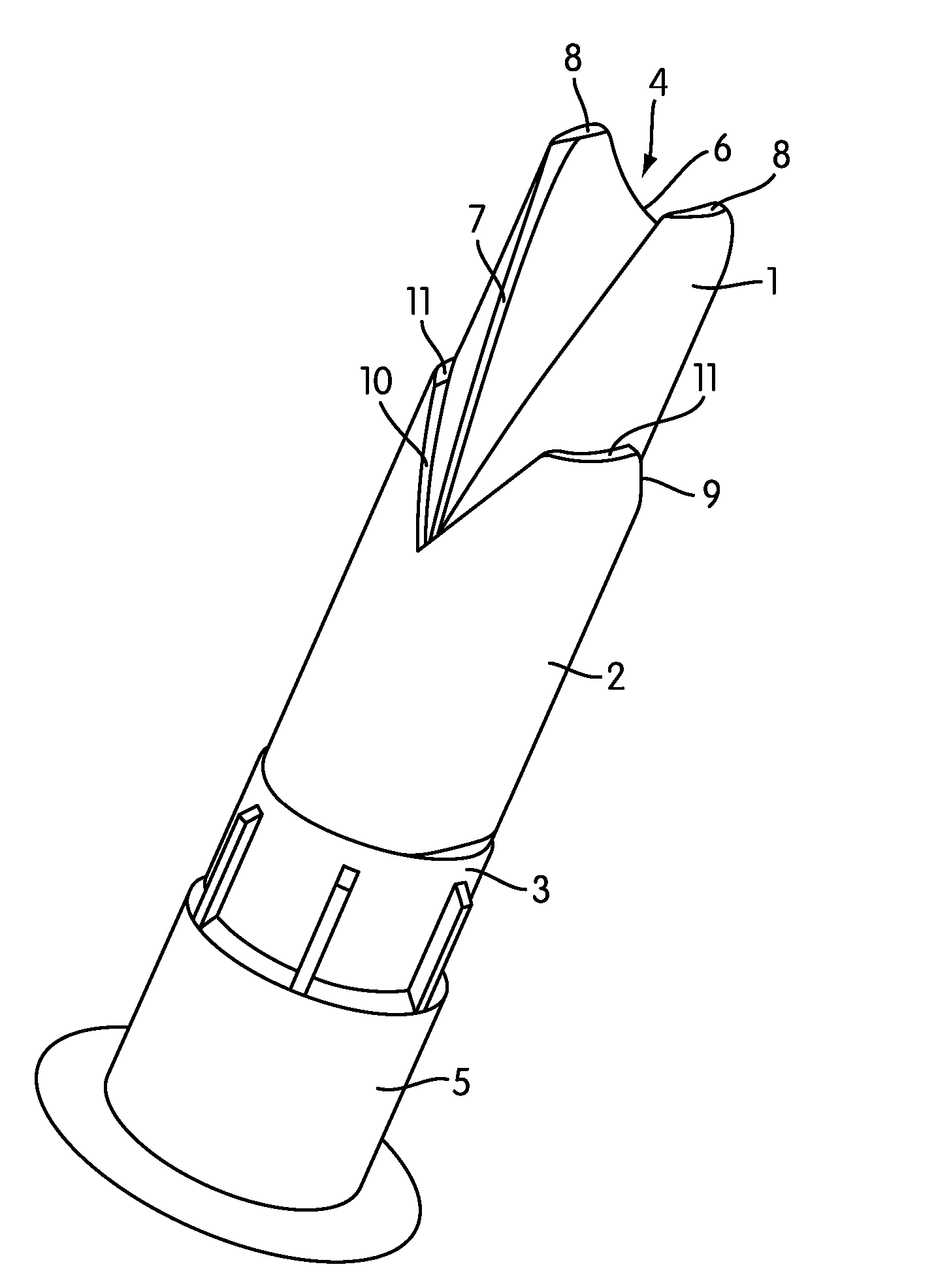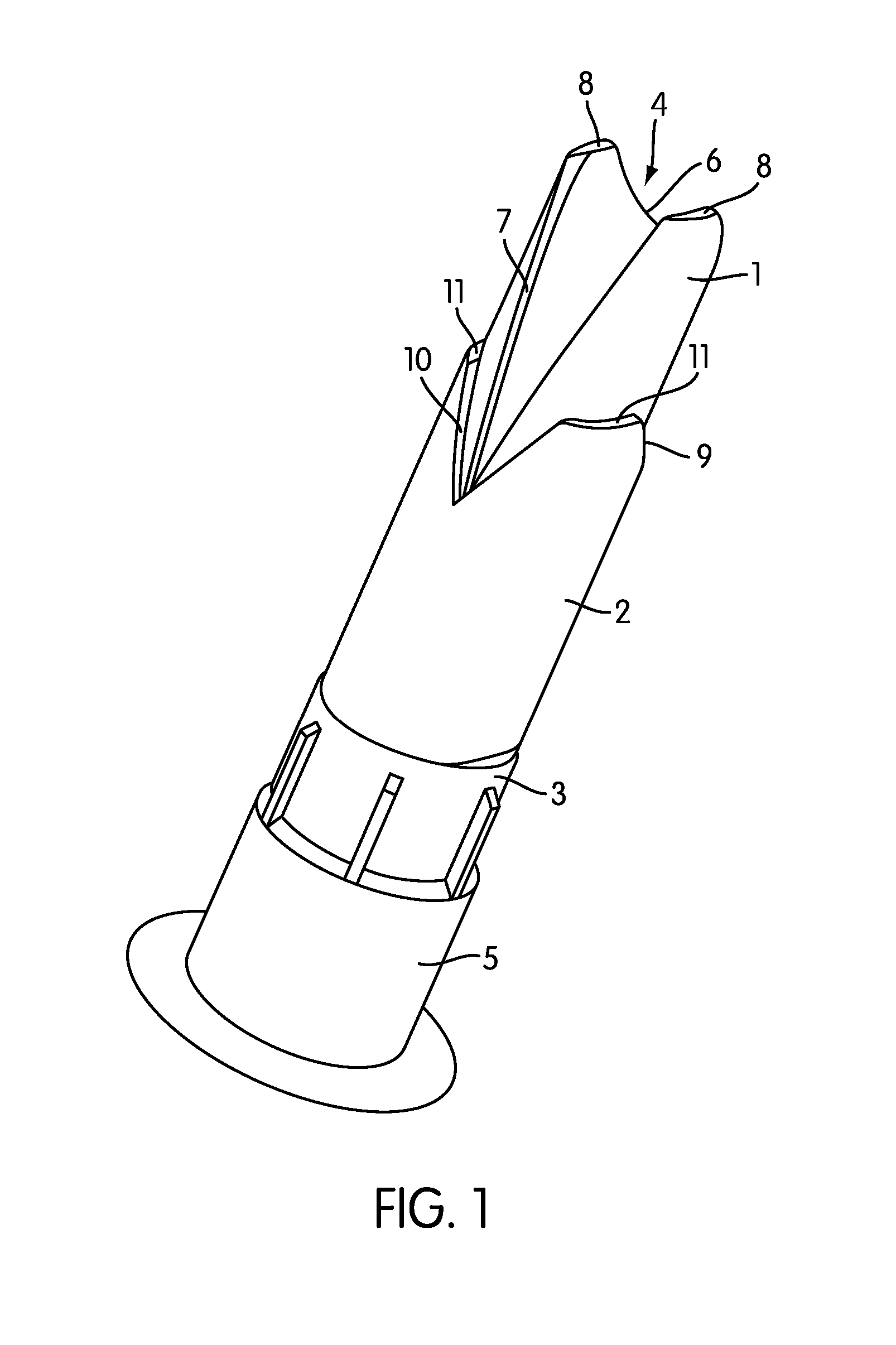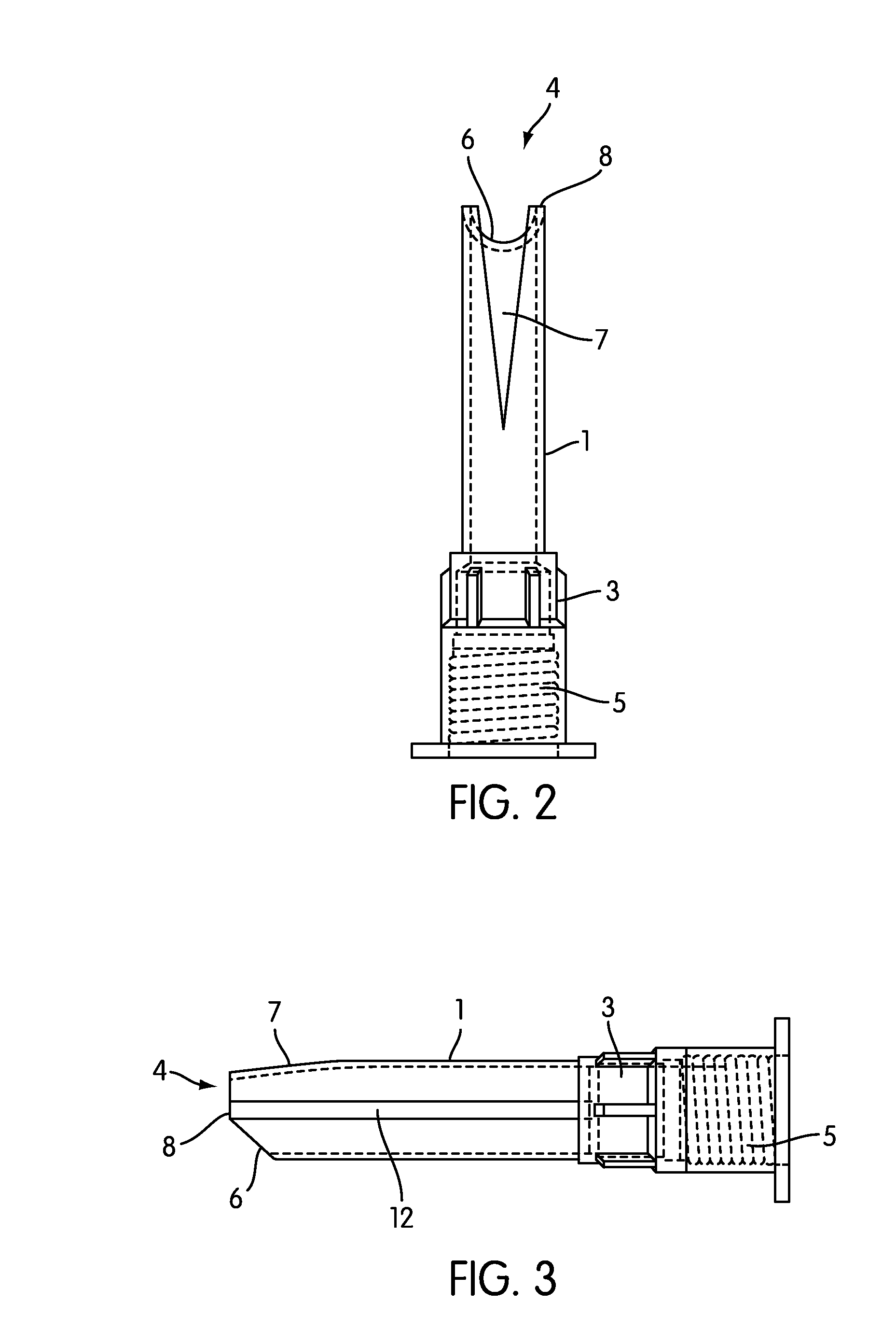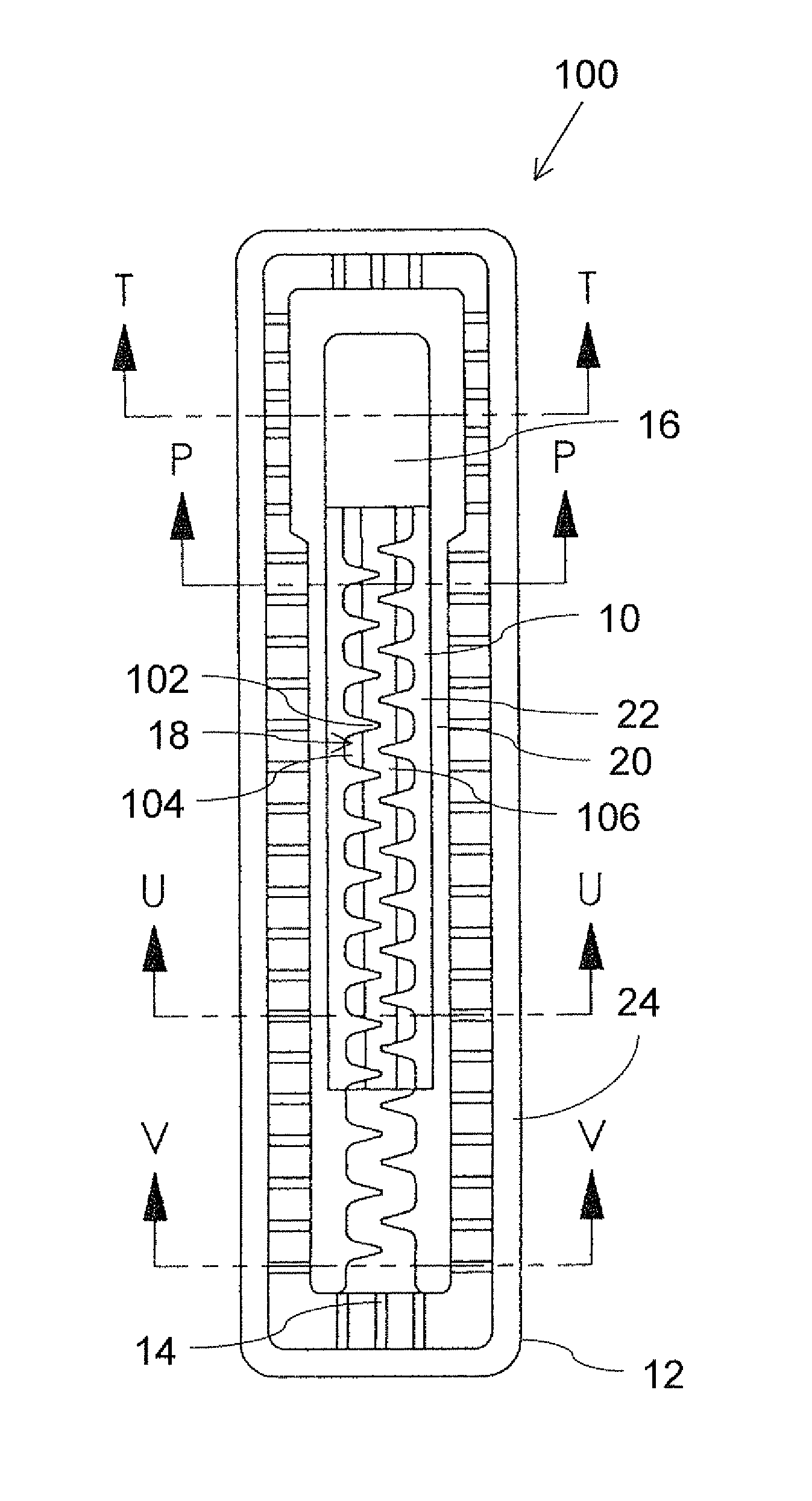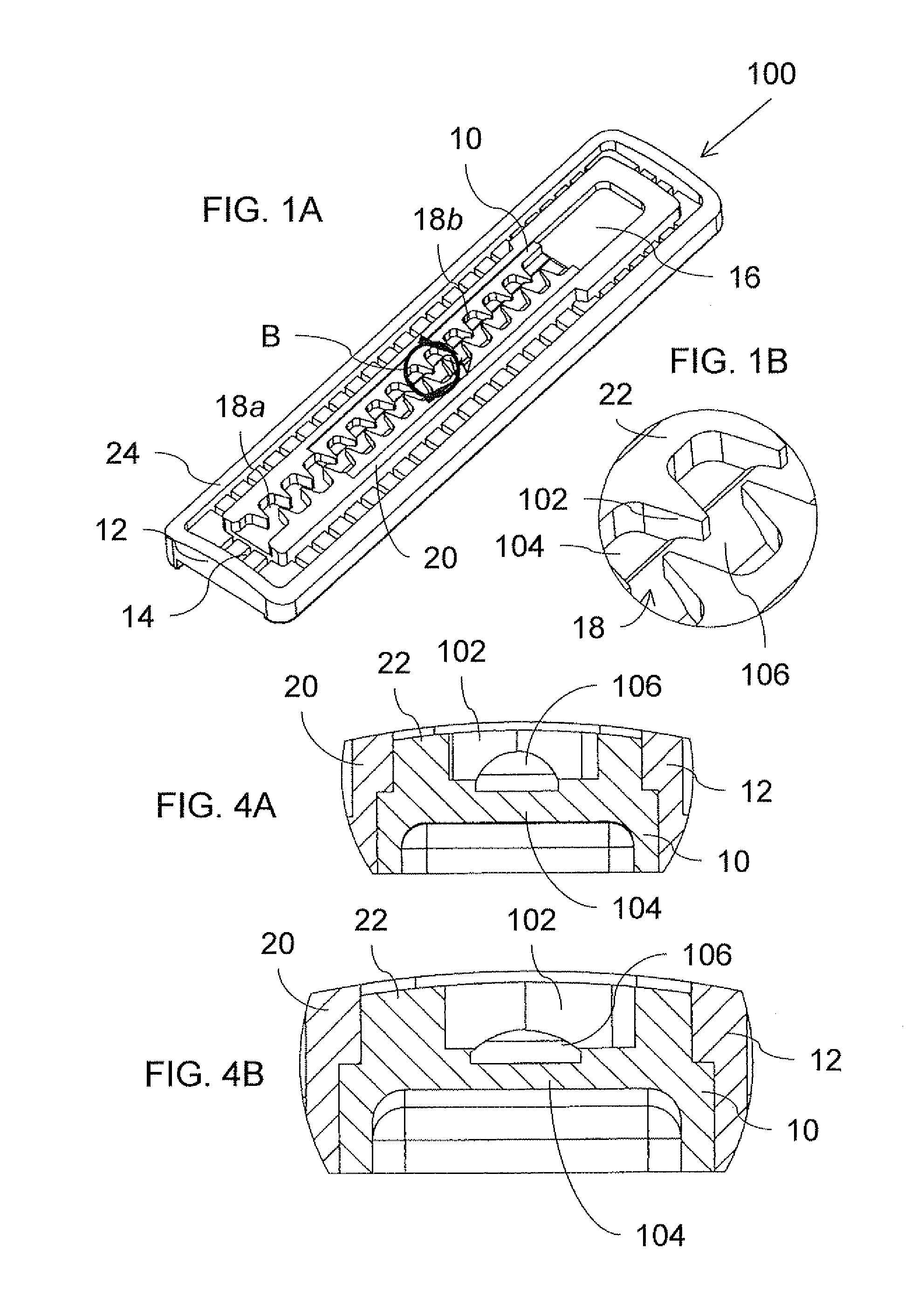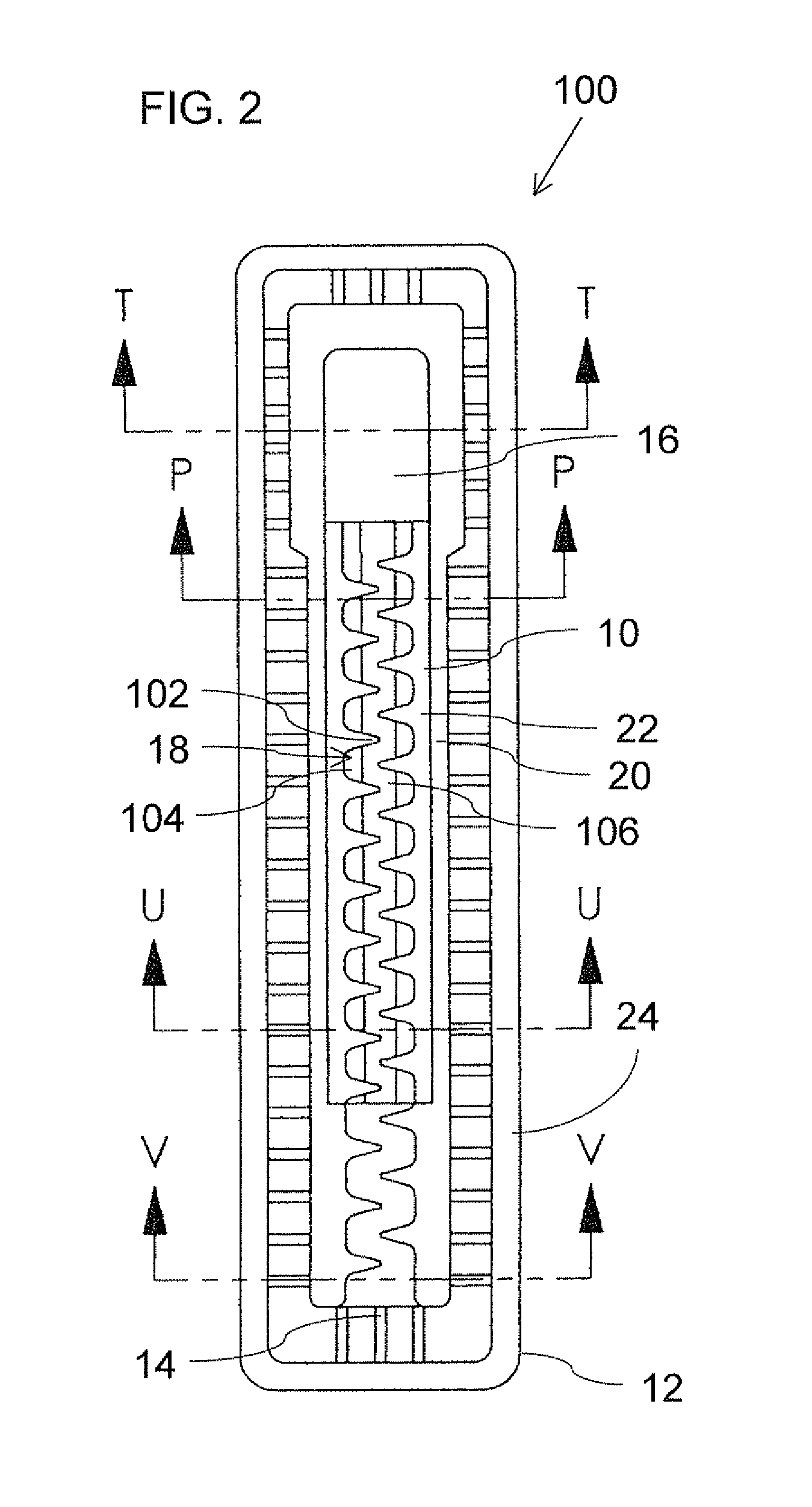Patents
Literature
Hiro is an intelligent assistant for R&D personnel, combined with Patent DNA, to facilitate innovative research.
608 results about "Variable geometry" patented technology
Efficacy Topic
Property
Owner
Technical Advancement
Application Domain
Technology Topic
Technology Field Word
Patent Country/Region
Patent Type
Patent Status
Application Year
Inventor
Variable geometry may refer to: . Wing configuration#Variable geometry ways to alter the shape of an aircraft's wings in flight in order to alter their aerodynamic properties; Multi-speed Europe, a proposed strategy for European integration
Variable geometry rim surface acetabular shell liner
InactiveUS7074241B2Extended range of motionMinimize interferenceJoint implantsFemoral headsEdge surfaceCoxal joint
An acetabular shell liner having a variable rim surface geometry, which improves range of motion of the femoral component within the liner and decreases the incidence of dislocation and subluxation, and methods of making and using the acetabular shell liner. Prosthetic devices, more particularly hip joint prostheses, containing the acetabular shell liner having a variable rim surface geometry are also provided.
Owner:SMITH & NEPHEW INC
Variable geometry rim surface acetabular shell liner
InactiveUS7682398B2Minimize interferenceExtended range of motionJoint implantsFemoral headsEdge surfaceRange of motion
There is provided an acetabular shell liner, and particularly a constrained liner, having a variable rim surface geometry to improve the range of motion of a femoral component within the liner and decrease the incidence of dislocation and subluxation. There are also provided methods of making and using the acetabular shell liner. Prosthetic devices, and particularly hip joint prostheses, containing the acetabular shell liner having a variable rim surface geometry are also provided.
Owner:SMITH & NEPHEW INC
Variable geometry guide vane for a gas turbine engine
InactiveUS7632064B2Improve load balancingImprove performancePropellersGas turbine plantsTurbineInlet flow
A variable geometry inlet guide vane for a gas turbine aircraft engine includes an aerodynamic shell for turning inlet flow to a turbine or compressor and an internal spar spaced from the airfoil shell by an air gap. A number of actuation mechanisms grounded to the spar and connected to the inner surface of the aerodynamic shell adjust the shape of the shell in response to varying operating conditions of the engine, imbalanced aerodynamic loading of the shell or vibration or other transient loads on the shell.
Owner:RAYTHEON TECH CORP
Osmotic delivery device having a two-way valve and a dynamically self-adjusting flow channel
ActiveUS7014636B2Prevent backdiffusionAvoid communicationOsmotic deliveryBandagesHigh pressureVariable geometry
An implantable osmotically driven delivery system having a dynamic, two-way valve and a self-adjusting, variable geometry fluid flow channel. As pressure within the agent delivery system increases, the fluid channel narrows, thereby restricting flow. At exceptionally high pressures, the valve can be designed to close altogether at the orifice or delivery end, or it can provide a minimal leak path so that a maximum fluid flow is never exceeded. At zero or very low pressures, the valve will close completely at the beneficial agent reservoir end, isolating the beneficial agent formulation from external fluid infiltration and thereby eliminating diffusion of external fluid into the beneficial agent formulation.
Owner:INTARCIA THERAPEUTICS INC
Gas turbine engine with variable geometry fan exit guide vane system
ActiveUS20090097967A1Reduce bypass flowMinimize thrust reverser requirementWind motor controlPump componentsTurbofanVariable geometry
A turbofan engine includes a variable geometry fan exit guide vane (FEGV) system having a multiple of circumferentially spaced radially extending fan exit guide vanes. Rotation of the fan exit guide vanes between a nominal position and a rotated position selectively changes a fan bypass flow path to permit efficient operation at various flight conditions.
Owner:RAYTHEON TECH CORP
Variable geometry retractor and disposable retractor stay clips and method of use
An improved surgical retractor stay system has a variable geometry retractor frame and disposable retractor stay clips. The retractor stay clips are adapted to snap onto the variable geometry retractor frame and are slidably movable thereon. The retractor frames are custom made having variable geometry and are prepared from extruded metals. The surgical retractor stay system uses the snap-on retractor stay clips in conjunction with the variable geometry retractor frame.
Owner:COOPERSURGICAL INC
Controllable winglets
InactiveUS20080308683A1Wing bending loadMaximizing airborne wingspanInfluencers by generating vorticesWingsShape-memory alloyVariable geometry
Systems and methods for providing variable geometry winglets to an aircraft are disclosed. In one embodiment, a winglet includes a base portion configured to attach to a wing. The winglet further includes a body portion. In turn, the body portion includes at least one of a deflectable control surface, a shape memory alloy (SMA) bending plate, and a SMA torque tube. The base portion is configured to attach to the wing such that the body portion projects at an upward angle from the wing.
Owner:THE BOEING CO
Multi-stage turbocharging system utilizing VTG turbine stage(s)
InactiveUS20060070381A1Improve fuel economyEmission reductionInternal combustion piston enginesNon-fuel substance addition to fuelWastegateInternal combustion engine
Multi-stage turbocharging, and more particularly, an advanced multi-stage turbocharging system using the variable turbine power of one or more variable turbine geometry (VTG) turbochargers to adjust compressor boost and exhaust back pressure to engine operating demands. The invention further relates to a turbocharged internal combustion engine, in particular a turbocharged internal combustion engine with at least one high-pressure turbine stage and one downstream low-pressure turbine stage, wherein the high-pressure turbine may be a single-flow or double-flow type, wherein the high pressure or low pressure compressor may be variable geometry, wherein the high pressure or low pressure compressor may be variably bypassed, and wherein the high pressure or low pressure turbine may be provided with an active control variable bypass or wastegate.
Owner:BORGWARNER INC
Medical image synthesis method based on double generative adversarial networks
The invention provides a medical image synthesis method based on double generative adversarial networks. The method comprises the main content of performing data management, generating the generativeadversarial networks, training a U-NET, establishing assessment indexes and obtaining processed pictures, wherein first, a DRIVE database is used to manage a first-stage GAN, then the first-stage GANgenerates a partitioning mask representing variable geometry of a dataset, a second-stage GAN converts the mask produced at the first stage into an image with a sense of reality, an generator minimizes a loss function of the true data in classification through a descriminator, then the U-NET is trained to assess the reliability of synthetic data, and finally the assessment indexes are establishedto measure a generated model. According to the method, by use of a pair of generative adversarial networks to create a new image generation path, the problem that the synthetic image contains a fake shadow and noise is solved, the stability and the sense of reality of the image are improved, and meanwhile image details are clearer.
Owner:SHENZHEN WEITESHI TECH
Split shroud exhaust nozzle
A variable geometry convergent-divergent nozzle for a gas turbine engine includes a centerbody extending rearward along a longitudinal axis of the engine which has a throat section of increased diameter. An inner shroud surrounds the centerbody and cooperates with the centerbody to define the throat of the nozzle. An outer shroud surrounds the inner shroud and cooperates with the centerbody to define the exit area of the nozzle. Both shrouds are independently translatable to provide independent control of the nozzle throat area and the nozzle expansion ratio.
Owner:GENERAL ELECTRIC CO
Counter-quad tilt-wing aircraft design
InactiveUS20050230519A1Halved in cross-sectionReduced wake turbulence hazardVertical landing/take-off aircraftsRotocraftAviationLevel flight
The invention consists of a specific, matched arrangement of aeronautical elements which (1) eliminates aerodynamic interference of, and (2) adds variable-cycle propulsion to, the level flight mode of a four-propulsor tilt-wing VTOL (vertical takeoff & landing) aircraft, without an additional element of variable geometry. This is achieved by configuring the components such that the rotor planes on either side pass through each other in the transition maneuver to form adjacent, close-coupled, counter-rotating pairs in level flight.
Owner:HURLEY FRANCIS X
Integrated bypass and variable geometry configuration for an exhaust gas turbocharger
ActiveUS20050086936A1Suitable for operationSimple and durableInternal combustion piston enginesWind motor controlImpellerTurbine wheel
An exhaust gas turbocharger comprising: a twin scroll turbine housing; a turbine wheel positioned in the twin scroll housing; an exhaust gas inlet, operatively connected to port exhaust gas through each side of the twin scroll turbine housing and onto the turbine wheel; a bypass, operatively connected to the exhaust gas inlet to port exhaust gas around the twin scroll turbine housing to bypass the turbine wheel; and a valve, operatively positioned to control exhaust gas flow to each side of the twin scroll turbine housing and the bypass.
Owner:FCA US
System and method for generating a visualized data representation preserving independent variable geometric relationships
A system and method for generating a visualized data representation preserving independent variable geometric relationships is described. A pair of convex clusters are selected. Each convex cluster is rendered on a display. Each convex cluster has a center of mass located at an original fixed distance from a common origin, and is oriented along a vector formed at a fixed angle from a common polar axis. A span is measured between the centers of mass of each convex cluster. For each convex cluster, a segment is measured from the center of mass of each convex shape to a point closest to the other convex shape along the span. A new fixed distance from the common origin for the center of mass for one of the convex clusters located along the vector for that convex cluster is evaluated if the span is less than the sum of the segments of the convex clusters. The pair of convex clusters are displayed rendered using at least the new fixed distance for the center of mass of the one convex cluster.
Owner:NUIX NORTH AMERICA
Low sonic boom inlet for supersonic aircraft
InactiveUS7048229B2Improve performanceLarge operability marginCombustion enginesEfficient propulsion technologiesThroatNacelle
All-internal compression inlets for supersonic aircraft, with variable geometry systems and shock stability bleed systems provide high performance, large operability margins, i.e. terminal shock stability that reduces the probability of inlet unstart, and contribute little or nothing to the overall sonic boom signature of the aircraft. These inlets have very high internal area contraction or compression and very low external surface angles. All shocks from the internal inlet surfaces are captured and reflected inside the inlet duct, and all of the external nacelle surfaces are substantially aligned with the external airflow. The inlet shock stability system consists of bleed regions that duct bleed airflows to variable area exits with passive or active exit area controls. This reduces the risk of inlet unstarts by removing airflow through a large open throat bleed region to compensate for reductions in diffuser (engine) corrected airflow demand. Because the stability bleed is not removed until the inlet terminal shock moves upstream over the bleed region, the necessary normal shock operability margin is provided without compromising inlet performance (total pressure recovery, and distortion).
Owner:TECHLAND RES
Multi-stage turbocharging system with efficient bypass
InactiveUS20060042247A1Improve efficiencyLoss of useful energyNon-fuel substance addition to fuelInternal combustion piston enginesImpellerTurbine wheel
A more efficient multi-stage turbocharging system and method for internal combustion engine systems is set forth. The present invention recovers the loss of a portion of exhaust energy that conventionally occurs in bypassing exhaust flow from one stage to another in a multi-stage turbocharging system. The preferred method of preserving such exhaust energy is through converting a portion of the exhaust energy of the bypassed flow from pressure to kinetic energy (velocity) by passing the bypassed flow through a VGT vane outlet or other variable geometry valve / nozzle, and then not allowing the accelerated flow to dissipate energy before reaching the subsequent stage's turbine wheel, where the accelerated flow may then be converted to a mechanical rotational force by the lower pressure turbine's wheel. Preferred hardware for achieving the object of the invention is also set forth, including a preferred two-volute low pressure turbocharging system with a VGT mechanism in one turbine volute only, or an alternative low pressure turbocharger with two low pressure turbines on a common shaft (again, preferably, with a VGT mechanism in one turbine only).
Owner:ENVIRONMENTAL PROTECTION AGENCY US
Controllable winglets
InactiveUS7744038B2Reduce the total wingspan of an aircraftFuel efficiencyInfluencers by generating vorticesWingsShape-memory alloyVariable geometry
Owner:THE BOEING CO
Electrical block positioning devices and methods of use therefor
InactiveUS7097643B2Precise deliveryAccurately interventionUltrasound therapySurgical needlesVariable geometryBiomedical engineering
The present invention provides positioning mechanisms for devices that cause conduction blocks or ablation in desired areas of tissue. The positioning mechanisms allow for variable geometry of the target sites and enable more accurate therapy at the tissue site.
Owner:SYNTACH AG
Control of exhaust temperature for after-treatment process in an e-turbo system
ActiveUS20060236692A1Electrical controlInternal combustion piston enginesAfter treatmentControl system
A method for operating a turbocharged internal combustion engine having an after-treatment device for treating exhaust gas discharged from the turbocharger, wherein exhaust gas from the engine is passed through a variable-geometry mechanism for regulating power produced by the turbine. The method comprises the steps of measuring a boost pressure of the air delivered to the intake of the engine, measuring a temperature of the exhaust gas delivered to the after-treatment device, causing the temperature of the exhaust gas delivered to the after-treatment device to substantially match a predetermined target temperature by controlling the variable-geometry mechanism of the turbine to control the amount of power extracted by the turbine, and causing the boost pressure to substantially match a predetermined target boost pressure by either inputting mechanical power into or extracting mechanical power from the turbocharger, as required, using a power addition / extraction device, such as a motor / generator, coupled to the turbocharger.
Owner:GARRETT TRANSPORATION I INC
Gas turbine engine
InactiveUS7886520B2Facilitate static pressure reductionAircraft navigation controlPower plant arrangements/mountingNacelleEngineering
Within a turbine engine a heat exchanger may be provided to cool compressor air flows to be utilized for cabin ventilation or other functions. A fluid flow acting as a coolant for the heat exchanger is generally drawn from the by-pass duct of the engine and a dedicated outlet duct is provided such that the exhausted fluid flow from the heat exchanger is delivered along the conduit duct to a low pressure region. In such circumstances, an appropriate pressure differential across the heat exchanger is maintained for operational efficiency when required, whilst the exhausted fluid flow is isolated and does not compromise the usual engine ventilation vent exit area sizing. Over-sized ventilation vents would create an aerodynamic step and therefore drag upon the thrust of the engine. Typically, the outlet end of the outlet duct has a variable geometry to enable adjustment in the pressure differential across the heat exchanger such that an air fan valve used to control flow rate through the heat exchanger may not be required.
Owner:ROLLS ROYCE PLC
Reaming device
InactiveUS20080294168A1Minimized dimensionAvoid collisionSurgical needlesSurgical instrument detailsReamerActuator
A bone reamer has an ablation device for forming cavities in body tissue, the ablation device is movable with respect to a head of the reamer, and is capable of protruding at least partially beyond a surface of the head. The amount of protrusion the ablation device protrudes beyond the surface of the head has a variable geometry and the geometry is remotely modifiable. More particularly, the amount the ablation device extends beyond the outer surface of a reamer head body can be varied by an actuator located on the reamer outside the body.
Owner:STRYKER EURO OPERATIONS HLDG LLC
Variable geometry meter roller
An agricultural metering device with a variable geometry meter roller is provided. The agricultural metering device includes a meter roller having a plurality of flutes. An aggregate cross sectional area of the flutes increases along a longitudinal axis of the meter roller.
Owner:CNH IND CANADA
Integrated variable geometry flow restrictor and heat exchanger
ActiveUS20120128467A1Low and reduced performance conflictPump componentsWind motor controlEngineeringAnnular duct
One or more heat exchangers mounted in a duct have heat transfer cooling passages therein and a variable geometry flow restrictor is integral with each of the heat exchangers. An annular slide valve axially translatable within the duct is operable to open and close or vary a variable area between the heat exchangers and one of inner and outer casings bounding the duct. The heat exchangers may be being circumferentially distributed around an annular duct and include radial or circumferentially curved heat transfer tubes or vanes.
Owner:GENERAL ELECTRIC CO
Integrated bypass and variable geometry configuration for an exhaust gas turbocharger
InactiveUS6941755B2Suitable for operationSimple and durableInternal combustion piston enginesWind motor controlImpellerTurbine wheel
Owner:FCA US
Turbocharged engine system and method of operation
ActiveUS20070119171A1Reduce pollutant emissionsNon-fuel substance addition to fuelInternal combustion piston enginesTurbochargerEngineering
A system is provided. The system includes an internal combustion engine having an intake manifold and an exhaust manifold. The system also includes a high pressure turbocharger having a variable geometry high pressure turbine drivingly coupled to a high pressure compressor, wherein the variable geometry high pressure turbine is driven by a first portion of exhaust gases from the exhaust manifold, wherein the high pressure compressor is configured to compress an intake air and to provide the compressed intake air to the intake manifold. The system also includes a low pressure turbocharger having a variable geometry low pressure turbine drivingly coupled to a low pressure compressor, wherein the variable geometry low pressure turbine is driven by a second portion of the exhaust gases from the exhaust manifold, wherein the low pressure compressor is configured to compress a third portion of the exhaust gases from the exhaust manifold and to provide the compressed third portion to the intake manifold, wherein the first and second portions of the exhaust gases are different from one another.
Owner:GE GLOBAL SOURCING LLC
Oscillating mechanism with an elastic pivot and mobile element for transmitting energy
An oscillating mechanism for a timepiece movement, including a first rigid element and a second rigid element, each one fixed on a different element of the movement and at least one of which is mobile relative to the other and pivots about an axis. The mechanism is monobloc and flexible with a variable geometry, and includes a first elastic restoring mechanism producing an elastic connection between the first rigid element and an intermediate rigid element, and a second elastic restoring mechanism producing an elastic connection between the intermediate element and the second rigid element, which all are coplanar according to one plane and configured to be deformed according to the plane.
Owner:NIVAROX FAR
Variable geometry rim surface acetabular shell liner
InactiveUS20070106389A1Extended range of motionMinimize interferenceJoint implantsFemoral headsEdge surfaceRange of motion
There is provided an acetabular shell liner, and particularly a constrained liner, having a variable rim surface geometry to improve the range of motion of a femoral component within the liner and decrease the incidence of dislocation and subluxation. There are also provided methods of making and using the acetabular shell liner. Prosthetic devices, and particularly hip joint prostheses, containing the acetabular shell liner having a variable rim surface geometry are also provided.
Owner:SMITH & NEPHEW INC
Thermo-kinetic compressor
InactiveUS6935096B2Reduce pressureIncrease speedUsing liquid separation agentMixing methodsThermal energyPower station
A device for compressing gas using thermal energy. In a subsonic embodiment the heat gas passes through a convergent pipe C1 where it is provided with operating velocity, a convergent pipe C2 where it is simultaneously maintained at high speed and cooled by evaporation of liquid sprayed by nozzles R with adjustable position distributed in C2. In a supersonic embodiment, the gas reaches sonic velocity at the throat of C2 and supersonic velocity in a divergent DG, then compressed in a convergent CG1 and simultaneously cooled by evaporation of sprayed liquid. In both embodiments, the gas is finally compressed in a subsonic divergent DG1. Pipes with variable geometry enable to modify the cross-sections of the throats of the device. The device is essentially designed for thermoelectric power stations.
Owner:HAIUN JOSEPH
Variable geometry flexible support systems and methods for use thereof
ActiveUS20070219061A1Change in geometric relationshipFrictional force resistorsMovement coordination devicesSupporting systemCoupling
An exercise apparatus comprises: a frame having a base portion and having first and second right support elements and first and second left support elements; a crank system comprising first and second crank coupling locations, the crank system being supported by the frame; a right foot support member; a left foot support member; a right guide element coupled to the right foot support member and; a left guide element coupled to the left foot support member; a first flexible support system comprising a first flexible element, the first flexible element coupled to the first and second right support elements and the right guide element and coupled to the first crank coupling location; and a second flexible support system comprising a second flexible element, the second flexible element coupled to the first and second left support elements and the left guide element and coupled to the second crank coupling location, wherein alternating motion of the right and left foot support members causes the first and second crank coupling locations to rotate.
Owner:RODGERS JR ROBERT E
Nozzle for the discharge of a flowable substance
ActiveUS7708211B2Preferable shapeProfile of becomes deepLiquid surface applicatorsClosuresEngineeringVariable geometry
A nozzle for the discharge of a flowable substances, for example adhesive or sealing compositions, having a discharge orifice with a variable geometry. The adjustable nozzle permits the user to select the optimal discharge profile suited to a particular application of the composition being discharged.
Owner:HENKEL KGAA
Bi-component drip emitter
Owner:AMIRIM PRODS DEV & PATENTS
Features
- R&D
- Intellectual Property
- Life Sciences
- Materials
- Tech Scout
Why Patsnap Eureka
- Unparalleled Data Quality
- Higher Quality Content
- 60% Fewer Hallucinations
Social media
Patsnap Eureka Blog
Learn More Browse by: Latest US Patents, China's latest patents, Technical Efficacy Thesaurus, Application Domain, Technology Topic, Popular Technical Reports.
© 2025 PatSnap. All rights reserved.Legal|Privacy policy|Modern Slavery Act Transparency Statement|Sitemap|About US| Contact US: help@patsnap.com
